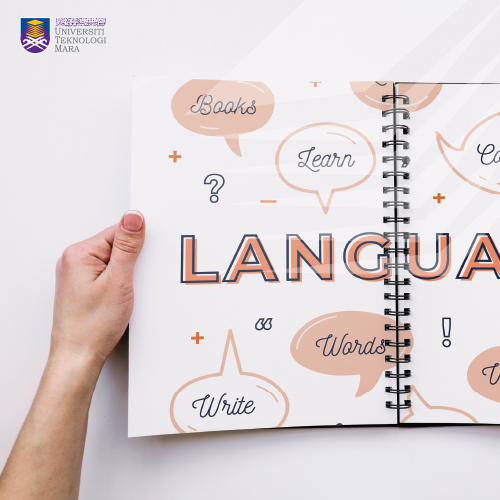 |
Objective: Highlight the main goal or learning outcomes. The objectives of MOOCs in construction technology focusing on concrete for degree-related students in the construction industry encompass several key areas. Firstly, these MOOCs aim to provide students with a comprehensive understanding of the fundamental principles and applications of concrete in construction. This includes topics such as mix design, material properties, construction techniques, and sustainability considerations specific to concrete. Secondly, online MOOCs in this field aim to equip students with practical skills relevant to the construction industry, such as hands-on experience with concrete testing methods, quality control procedures, and safety protocols related to working with concrete materials. Thirdly, these MOOCs strive to instil a strong foundation of knowledge and professionalism in students, emphasizing ethical considerations, adherence to industry standards and regulations, and the importance of maintaining high-quality standards in concrete construction projects. The goal of an online MOOC in construction technology focusing on concrete for degree-related students in the construction industry is to provide comprehensive theoretical knowledge, practical skills, and ethical understanding necessary for successful careers in concrete construction. Demonstrate a thorough understanding of the fundamental principles of concrete technology, including mix design, material properties, and construction techniques (A3). |
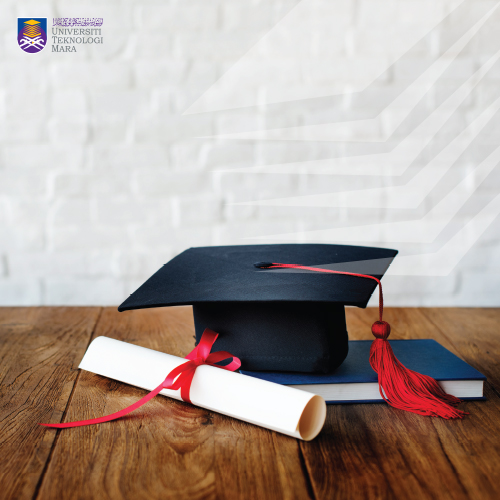 |
Basic concepts and principles of economics. Application of these concepts and principles to simple economics issues in the actual economic situation nationally and internationally. Understanding of current economics trend in relation to Building / Construction Industry. |
 |
This course is designed to provide an understanding of soil management that focuses on horticultural crops. Students will be exposed to the theoretical and practical hands-on that cover soils and plants macro and micronutrients, nutrients management for the horticultural crops, evaluation of horticultural crops nutritional needs, soilless medium management for horticultural crops and organic amendments. This course will expand the existing knowledge of the students toward soil science and the students will be assisted to understand specific soil management for the horticultural crops including vegetable crops cultivated using soilless media. Upon completion of this course, students should be able to understand the principles in managing soil for horticultural crop production based on different soils and plants nutrient status and able to provide proper corrective measures, and able to conduct scientific laboratory analysis to aid in proper nutrient management of horticultural crops. The outcome of this course will be assessed through scientific skills in the laboratory, written laboratory report, written assignment, and project report. |
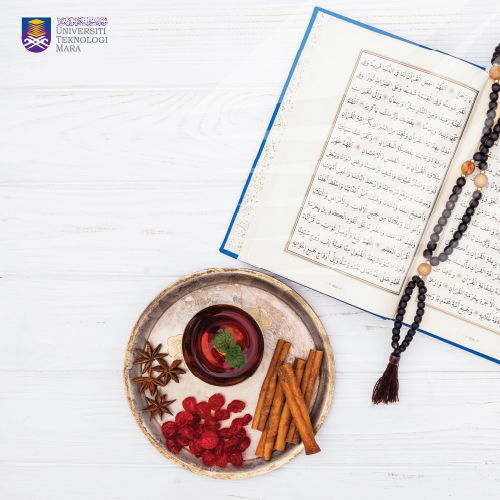 |
This course covers a brief history of the development of agriculture, discusses the successive agricultural policies, and analyzes the past, present and future challenges faced by the agricultural sector in Malaysia. The topics covered will give an insight into the complexities of agriculture, and explore common terms and phrases in agriculture such as agri-science and agro-technology, agro-industry, sustainable agriculture, agribusiness, agropeneurship, renewable natural resources, biomass utilization, agro-biotechnology, Good Agriculture Practices (GAP), within the context of Malaysia. |
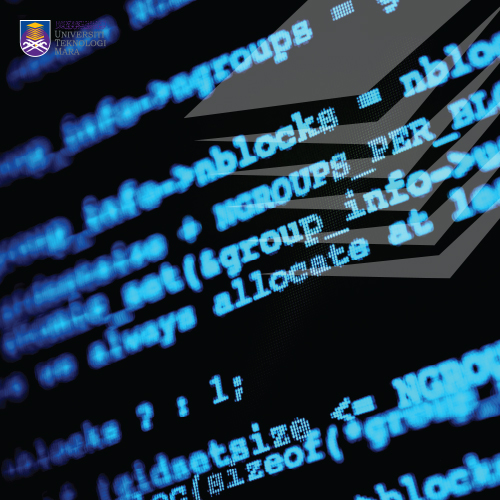 |
Introduction of agropreneurship is emphasizing on the basic economic, business principles, sustainable farm, and agribusiness operations. Information management and lifelong learning, managerial and entrepreneurial skills and leadership skills will be achieved in this course. It consists of forecasting demand, staff management, capital management and marketing mix (product, price, place, promotion). Teaching methodology via interactive lecture, blended learning and field trip to relevant agency. The outcomes shall be assessed through a variety of tools such as final examination, test, written report and presentation. |
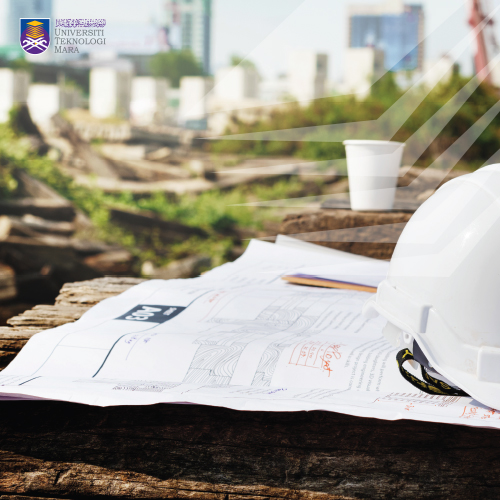 |
This course provides students with the necessary skills to effectively promote or pitching the agricultural-based food products. In this course, students will acquire the skills to construct business models by employing the Business Model Canvas framework. The primary emphasis will be placed on essential components, including client segments, value propositions, and revenue streams. The analysis of successful agricultural food operations will be conducted through the use of case studies. This study aims to investigate market data, customer insights, and product development techniques that are tailored to the agricultural food industry. Students will enhance their proficiency in pitch presentations, with a focus on highlighting the distinctive value proposition and potential for growth of their products. The emphasis will also be placed on ethical and sustainable methods in the realm of food production. Upon completion of the course, students will have a thorough comprehension of the dynamics of the agricultural food business, practical expertise in developing business models, and the capacity to effectively present agricultural-based food products to investors and stakeholders. |
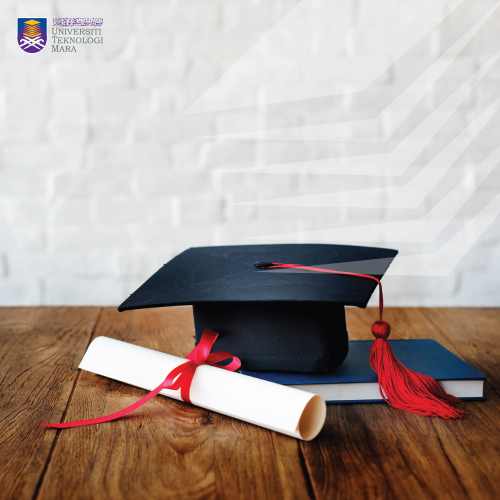 |
The course will interactively engage students with basic agricultural food handling and processing concepts. The post-harvest handling procedures, various food processing and preservation techniques and product packaging will be covered in this course. Overall, the flows of food handling and processing to packaging and marketing of products to the consumers will be discussed. The outcomes shall be assessed through various tools, including tests, student projects and presentations and written reports. |
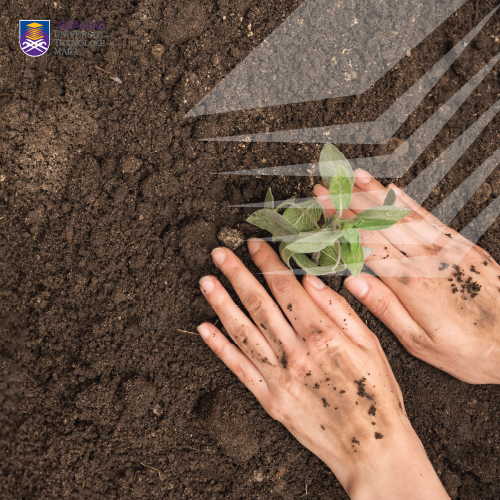 |
This course provides an understanding on basic plant science. This course deals with
introduction of plant and provide a basic life process. The fundamental concepts and processes
that underlies their forms and functions will enhance understanding of a great diversity of plant
and role of plants in the environment. |
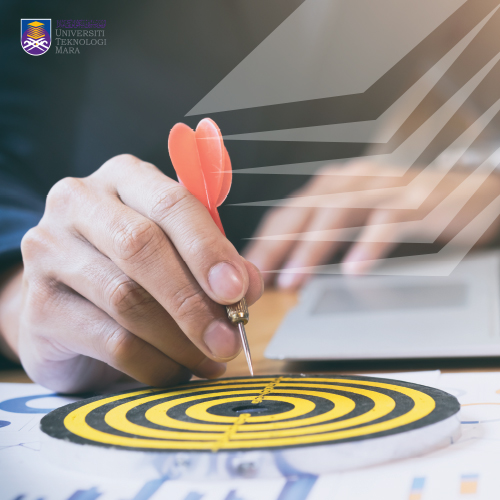 |
The course is an introduction to the agriculture industry in Malaysia, discussing its challenges, current and future direction. Emphasis is given on crop cultivation practices, livestock production and current technology in modern farming such as precision agriculture and big data application. Exposure to agropreneurship and agri e-commerce business are also covered in this course. |
 |
This course will introduce students to basic plant classification, morphology, anatomy and physiology. Students also learn how plant adapt to the environment and functions of cell, tissue and organ structures in the plants. |
 |
This course will interactively engage students cognitively on major industrial crops such as oil palm and rubber. Students
will identify, discuss and explain economic importance of the above crop as well as the agronomic practices. Topics such
as crop protection and harvesting activities including primary processing of the above crops will also be part of the
interactive learning process. Lecture sessions employ a mixture of lectures and active learning (self peer discussions).
The outcomes shall be assessed through a variety of tools which include test, group
presentation and assignment. |
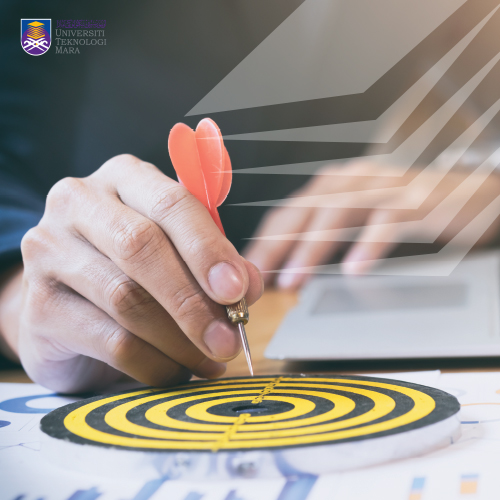 |
This course will cover the important aspect of the propagation of plants, by both sexual and asexual methods. Theories of propagation, practical techniques and propagation equipment and facilities used to increase plant numbers will be discussed. These will include common techniques used for plantation crops such as propagation by seeds, propagation by cuttings, grafting, layering, buddings, modified stems, roots and leaves. Tissue culture techniques will also be explored. The outcomes shall be assessed through a variety of tools which include final examination, test, assignment and project. |
 |
This course will provide students an overview of the basic concepts and practices of budgeting, accounting and other parts of financial management and management control. Students develop the analytical and operational skills to analyze different kinds of budgets and to understand a plantation sector organization from a budgetary perspective. The course covers the entire budgetary process, including budget formulation and execution, program development, cost and revenue estimation, budget tactics, and budget evaluation. Students also gain some basic understanding of plantation sector accounting concepts, particularly by learning and practicing the main content and structure of the income statement, the balance sheet and the cash flow statement, including their interrelationships. Examples from a range of plantation sector experiences are woven into the course to illustrate the issues involved and to examine the connections between financial control systems and the purposes of an organization. |
 |
This course will discusses about the theoretical and practical of pest management including crop insects pest , crop
diseases as well as their impact to the agricultural activities . Students will be taught about pest-damage symptoms, plant
disease symptoms in tropical plants, their causes, and their control measures. This course also involve
practical field studies . |
 |
The course is intended to provide an introduction to the alternative solutions and value-added benefits offered by biotechnology to the plantation sector. The students are not expected to be technically competent in the various areas discussed, but should be aware of the potential use of biotechnology in providing alternative, environmental-friendly, cost-effective and sustainable solutions to various issues faced by plantation sector. The course will also introduce students to the use of plant biotechnology to genetically manipulated crop-plants and their potential applications. Among the topics discussed will be the use of genetic manipulation to improve crops, to create value-added crop products, use of tissue culture in somatic breeding programs, biological control agent as an alternative to pesticides, the use bio-fertilizers and application of biotechnology in solving energy crisis and degradation of agricultural wastes and residuals. |
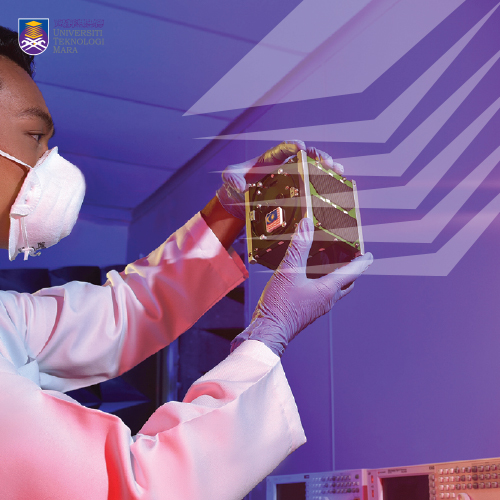 |
This course will provide students with plant pathology principles and procedures to understand about diseases in plantation crops, characteristics of organisms that cause diseases, how diseases interact with hosts and the environment and also available methods for controlling or managing diseases in plantation crop such as oil palm, rubber and paddy. Students also will have opportunity to conduct experiments in the laboratory to improve practical skills and understanding about the Koch’s postulate procedures, disease diagnosis on fresh infected plant samples, antagonistic activity of pathogens and antagonists and other relevant practices that related to the disease management in plantation crops. |
 |
This course is designed to provide an overview of the fundamental concepts of soil fertility and plant nutrition. Different areas of soil science that play important role in influencing the soil properties which will directly or indirectly affect soil fertility will be examined. This course will complement the students existing knowledge of soil science and help the student understand soil conditions affecting the availability of different plant nutrients; function and movement of different nutrients in plants and methods of determining nutrient levels in plants and in soils. Upon completion, students should understand and know the principles of managing plant nutrient for crop production, fertilizer materials, techniques of crop fertilization, soil fertility maintenance and management practices for optimizing fertilizer use and understand the process of carrying out soil and plant tissue testing as diagnostic tools in nutrient management. The knowledge gained will provide students with the basic knowledge of soil fertility management and fertilizer requirement for plantation and agricultural crops. |
 |
This course is about the post harvest chain of agricultural produce after harvest for its protection, conservation, processing, packaging, distribution, marketing, and utilization to meet the food and nutritional requirements of the people in relation to their needs. This course also focus on how to extend the shelf life and the good quality of the agricultural produce and product. |
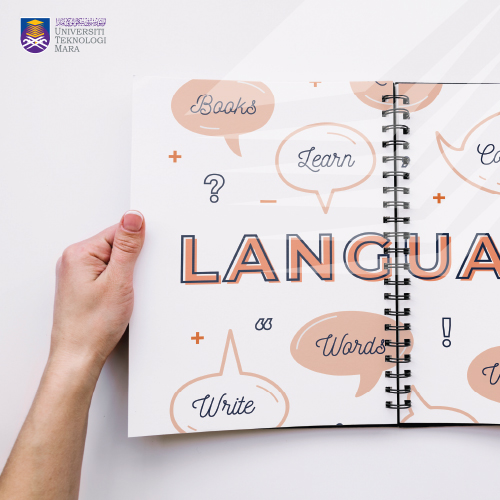 |
This course is designed to develop and understanding of how crops are handed from post of harvesting to the point of
sales or consumption. this included harvesting methods. packaging, storage and primary processing. upon completion of
the course, student should be able to evaluate losses in quantity during post harvest handling, storage and marketing. this
course also aimed to develop and apply appropriates innovative technologies to solve specific problems in post harvest
operation. |
 |
Introduction to computers and communication technology for assisted in agriculture.
Topics include basic operations of a computer, information handling, computer graphics,
CAD technology and computational processes. |
 |
The "Aquaculture Feed and Nutrition" course delves into the principles and practices of formulating nutritionally balanced and cost-effective feeds for various aquaculture species. Students will explore the nutritional requirements of fish and shellfish, including essential proteins, lipids, carbohydrates, vitamins, and minerals. The course covers ingredient selection, diet formulation techniques, and the technological processes involved in feed production. Emphasis is placed on the relationship between nutrition and fish health, growth, and disease resistance. Practical sessions will provide hands-on experience in creating and analyzing feed compositions. Additionally, the course addresses current challenges in sustainable aquaculture, such as the use of alternative protein sources and reducing the environmental impact of feed production. This comprehensive program equips students with the knowledge and skills needed to advance in the field of aquaculture nutrition and contribute to the development of sustainable feeding practices. |
 |
This course introduces the students to all aspects of aquaculture including occupational health and safety issues, building materials, tanks and pipe construction, fibreglassing, glass aquaria, water quality testing, filters, small engines and pumps. Theoretical of site selection, farm economics and production management are also introduced. |
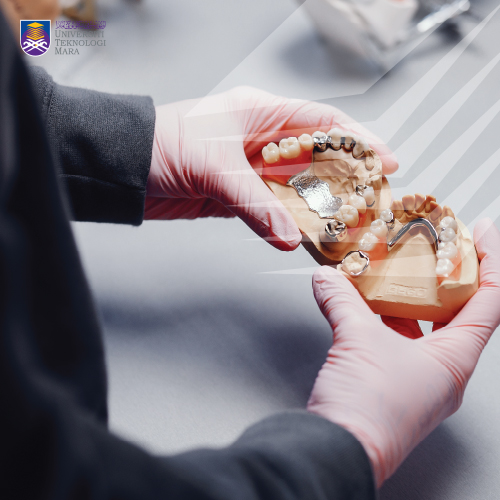 |
Aspects of the diseases and health will be dealt with by discussing several important infections and non-infections.
Attention will be given to the relationship between health, environment, and husbandry. During the practical, students have to diagnose some common diseases. Students will be trained in fish autopsy and in bacterial, haemotological, parasite, and histological research. |
 |
This course offers basic knowledge of ornamental fish for both marine and freshwater ornamental fish species. It covers all aspects needed to culture ornamental fish from choosing the compatible fish, fish profile, aquarium setup and maintenance, reproduction strategies, choosing and conditioning the parents for breeding, feeding strategies, and feeding types. |
 |
This course will define, describe and analyze important concepts in basic risk and insurance principles. Life and general insurance, as well as Takaful principles will be discussed. |
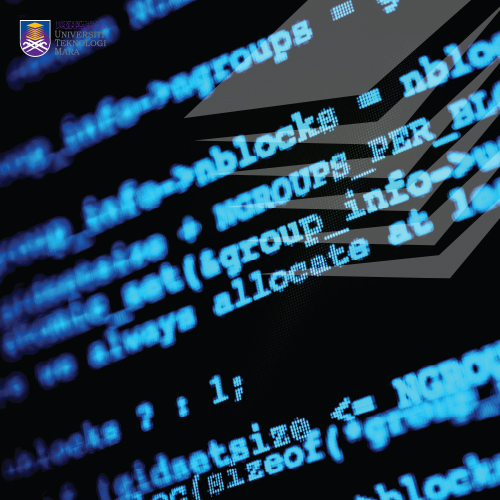 |
This course will define, describe and analyze important concepts in basic risk and insurance principles. Life and general insurance, as well as Takaful principles will be discussed. |
 |
By the end of the course you should be able to:
Explain the tasks of an actuary
Describe the areas involving actuarial knowledge
Apply basic actuarial knowledge
This module will be divided into 5 sub topics in the range of 14 WEEKS. |
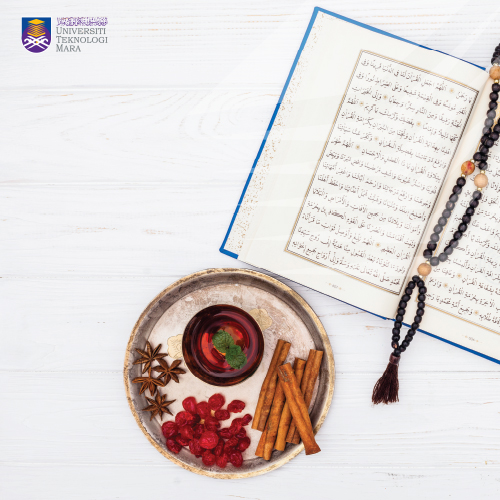 |
This course will describe, explain and discuss the basic concepts, calculations and simple applications of the mathematics used in the financial world. Its goal is to provide first exposure to actuarial students as basic knowledge before proceeding further to Advance Financial Mathematics course in the latter semesters of the Actuarial Science Program. |
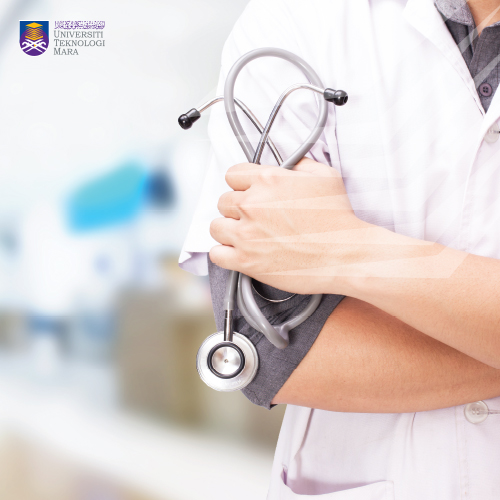 |
This course introduces the students to the real actuarial working environment. The syllabus for this course provides a basic understanding of actuarial mathematics including understanding basic knowledge and applying that knowledge purposely for life insurance premiums calculations. |
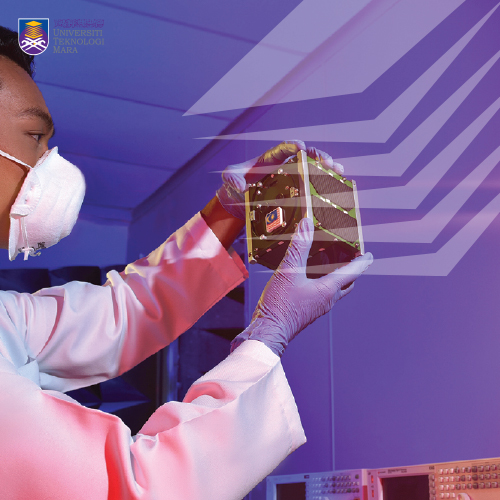 |
This course introduces the students to the personal financial planning. The syllabus for this course provide with the basic understanding of financial planning concept and how to become financial planner that exist in the financial market provided by Malaysian’s Financial Planner Association. |
 |
Data mining involves the process of selecting, exploring and modelling large databases to discover hidden patterns, rules and relationships which can be useful information for insurance companies. This course will cover the fundamentals of data mining with a balance of theory and practice by focusing on insurance databases. Students will learn to apply data mining techniques using software for data mining and data analytics. |
 |
This course introduces the fundamental concepts in risk management and insurance, operations of insurance company, legal principles in insurance contracts, life insurance and annuities, general insurance and also Takaful. |
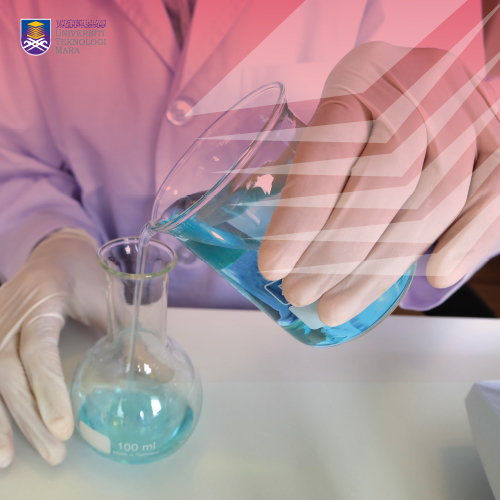 |
This course introduces the fundamental of using the spreadsheet tools (Microsoft Excel) and programming (Visual Basic Application) specifically to solve actuarial problems. It emphasizes the importance of understanding the root of the problems and solving problems in a structured manner by using Microsoft Excel and VBA. The actuarial problems mentioned include the problems and calculation in Actuarial Mathematics, Financial Mathematics, Statistics and others. |
 |
This course introduces the students with various of financial product, financial reporting long term and short term financial management, mergers and aquisitions of firms.
By the end of this course, students should be able to understand basic understanding of corporate finance, including a knowledge of the instruments used by companies to raise finance and manage financial risk.
Part of this course follows the syllabus of Business Finance (CB1) from the Institute and Faculty of Actuaries (IFOA) |
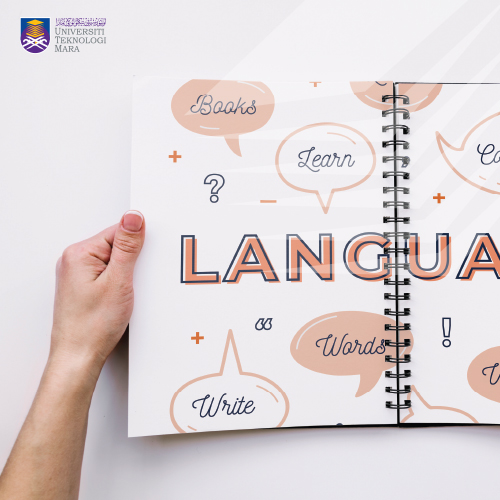 |
This course aims to develops an awareness of the paramount importance of health, safety and protection of environment in construction. It covers the understanding of development of construction health and safety policy, plans and procedures. The course includes identifying the health hazards and understanding the risk assessment and control. |
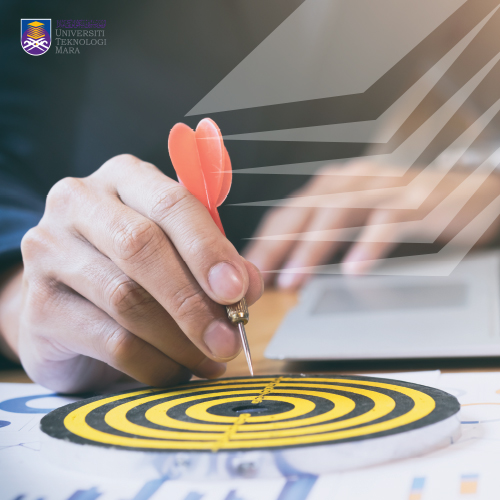 |
This course introduces students to the field of production management, and it represents a mixed concept of scientific and quantitative methods. Production and operation activities start from forecasting, planning for facilities and equipment, designing the best work system, procuring materials and equipment, measuring productivity levels and operational research. |
 |
Law has become an increasingly important subject in any professional course. Builders need to have a sound knowledge of law related to construction which covers Law of Contract and Tort, Land law, environmental law, law relating to highway and street, property law and employment law. The objective of this course is to introduce to students the construction law in general that forms a background knowledge of these works in construction. |
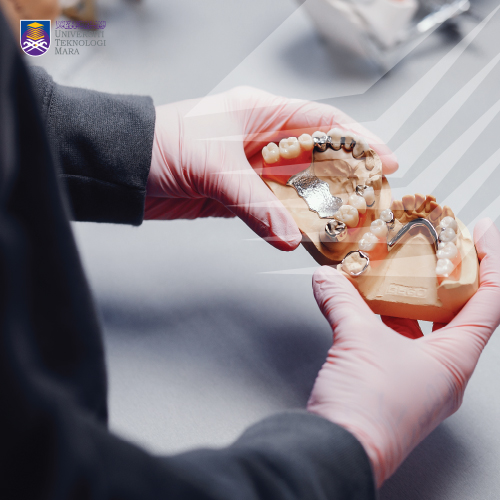 |
The course introduces approaches and design to fulfil the requirements in achieving a sustainability development of green building in this green world by learning to use the building performance assessment tools such as green building index. It provides the student understanding and study of the interrelationship between environmental issues, policies, laws, regulations and ecological building envelope design. |
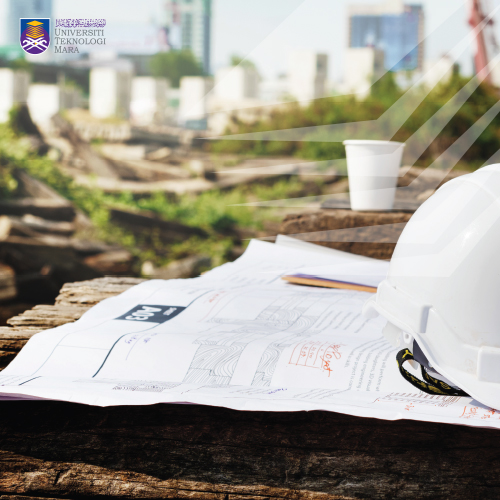 |
The general aims of the course is to provide sufficient knowledge and understanding of the manufacturing technology in term of production planning and control, machining process and manufacturing tools and also quality control including dealing with parties involved in manufacturing of IBS components. The students will be exposed to the principle followed by the method of manufacturing technology and IBS standards. |
 |
Zoology is a broad division of biology. This course covers structures, functions, and diversity of animals. It includes the study of biological concepts and processes, such as evolution, cellular metabolism, reproduction, heredity, development, and homeostasis. This course discovers more on the non-chordates animals, i.e. the invertebrates from various phyla, such as Phlyum Porifera, Coelenterata, Cnidaria, Ctenophora, Platyhelminthes, Annelida, Mollusca, Arthropoda, and Echinodermata. This subject is expected to present many interesting facts on various invertebrates that live abundantly on this earth in various habitats ranging from marine environment to freshwater and terrestrial environments. Zoology also explains on the invertebrate parasites related diseases which infect other animals and humans. Learners are expected to learn and discover many interesting knowledge that are applicable in their daily life!
MOOC Zoology Promotional Video: https://youtu.be/-I6oWZTofLk |
 |
Embark on a journey to understand and address global climate change with our
MOOC!
This course is your comprehensive guide to global climate change's critical challenges and opportunities. Through an engaging and accessible format, you'll explore the source of greenhouse gases, policies, and impacts shaping the future of our planet. Delve into the core topics that define this pressing issue, including climate mitigation and adaptation strategies, policy, politics, and economics intersection, and the profound effects on human health and ecosystems. We'll also spotlight Malaysia's unique challenges and responses to climate change, providing a global-to-local perspective. Through this MOOC, you'll understand global climate dynamics holistically, empowering you to engage in informed decision-making and contribute to sustainable solutions. With eight (8) comprehensive topics, you'll deepen your knowledge and enhance your ability to address one of humanity's greatest challenges. Take the first step toward becoming a climate-conscious leader. Enrol now and make a difference in building a sustainable future! |
 |
The course develops an awareness of the paramount importance of health, safety, and protection of environment in construction. It covers the understanding of development of construction health and safety policy, plans, and procedures. The course includes identifying the health hazards and understanding the risk assessment and control. |
 |
The course is an introduction to the contract administration currently applied in the MCI as stated in construction contract. Builders are required to have the knowledge in this course as contract matter could be complex and unique for each project. |
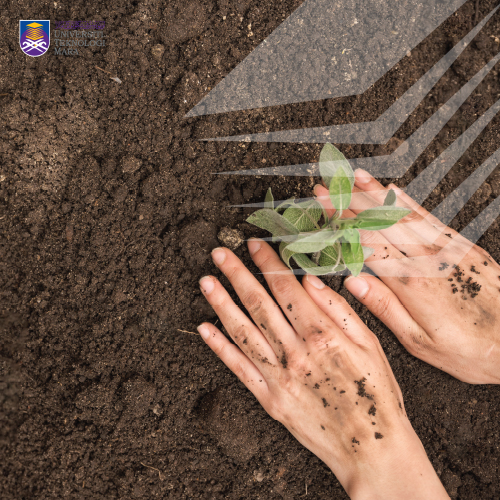 |
This course is designed to provide a comprehensive introduction to the field of health psychology. The focus is on the application of psychological theories and principles to all areas of health and well-being. It aims to examine the theoretical and empirical contributions of psychology to the promotion and maintenance of health and the prevention and treatment of illness. This course also explores the importance of an interdisciplinary approach and biopsychosocial aspect in conceptualizing health and disease. |
 |
This course provides students with the necessary knowledge of the anatomical and physiological aspects of the human body, which they can apply within their respective fields of study. This is the first part of two courses on anatomy and physiology. Within this course, students explore various systems, gaining insight into their normal functions throughout each system. Particular emphasis is placed on how these systems contribute to maintaining homeostasis. |
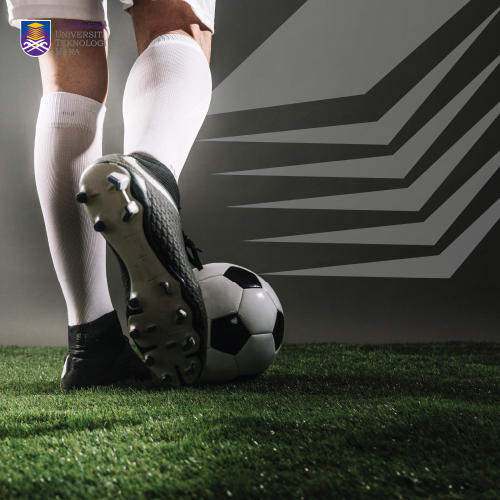 |
The aim of this course is to provide the student with general knowledge of the anatomical and physiological aspects of the human body, including the mechanisms of homeostasis. The course covers basic cellular and tissue structures, their properties and functions; the integumentary, musculoskeletal, respiratory and lymphatic system. |
 |
The aim of this course is to provide the student with general knowledge of the anatomical and physiological aspects of the human body, including the mechanisms of homeostasis. The course covers basic cellular and tissue structures, their properties and functions; integumentary, musculoskeletal, nervous, endocrine, circulatory, lymphatic and immune, respiratory, urinary, digestive and reproductive system. |
 |
Biostatistics has become a crucial subject in any health, medical, and biological programs. This MOOC aims to interactively engage learners cognitively and scientifically in areas of biostatistics. This designated course is intended to introduce the common biostatistics techniques related to the existing principles or theories in health sciences research. Learners will define concepts, state and explain theories, perform statistical analyses using statistical software, and discuss the statistical findings with peers and facilitators. |
 |
Foundation Biology I is a basic biology course for students at foundation, matriculation and A-level of any institution. This course is focuses on the structure of life and some of the fundamental processes that characterize living things. It includes macromolecules, cells, plasma membrane transport, enzymes, cellular respiration, photosynthesis, biodiversity and ecology. This course is designed with a logical progression of topics arranged for students, who are entering tertiary education with different learning styles and varied stages of preparedness to further their studies at higher level. Students are presented with short video with the hope that students can grasp the key points of the topic in a short time. All the materials are presented in a fun and interactive way. We hope this provides a fun platform in biology online learning. Happy Learning! |
 |
This is a general biology course emphasizing the principles of cell and molecular biology, classical genetics, organismal biology, and biodiversity and ecology. |
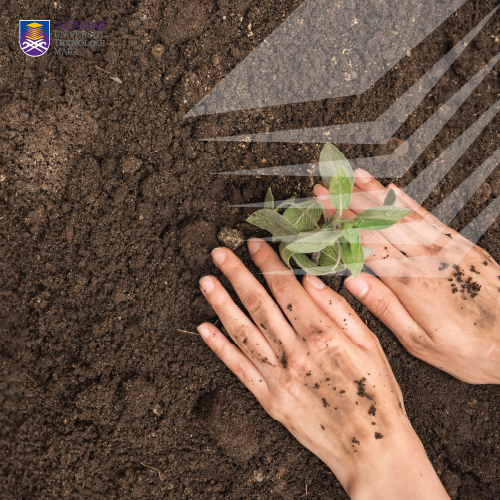 |
Microbiology is the study of microbes (very small organisms that usually require a microscope to be seen) and is a wide-ranging subject closely linked with a surprising variety of other sciences and human activities. This course emphasizes the relationship between microbes and human beings which involves not only the familiar harmful effects of certain microorganisms, such as in disease and food spoilage, but also their many beneficial effects. Students will be introduced to the fascinating world of the microbes and in the process will come to realize that of all the groups of organisms studied by biologists, microbes rank as the most important in terms of their impact on our daily lives. |
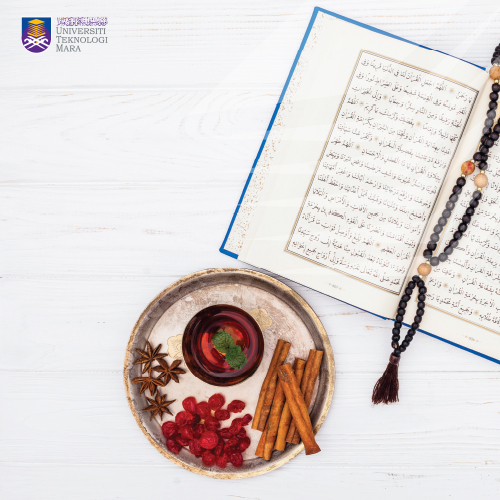 |
This is an introductory course of biochemistry with the emphasis given to various structures and functions of biological molecules and the biochemical reactions involved. This course covers topics on the structures and functions of biomolecules such as nucleic acids, carbohydrates, lipids, proteins and enzymes. The course will also provide an introduction to metabolic pathways including glycolysis, glycogenesis, gluconeogenesis, fermentation and respiration, lipid metabolism, amino acid metabolism as well as the process of DNA transcription and translation. |
 |
This course is designed to give a broad overview of general human and animal parasitology, with respect to the types of parasites, nature of parasitism, advantages and disadvantages of parasitism. It will cover the biology, parasitism and pathogenesis of the parasitic protozoans, helminths and arthropod parasites that cause significant human and animal disease. This subject covers on how each parasite establishes infection in their hosts, how it spreads between hosts, and the pathogenesis of disease. Current approaches to control and to treat parasitic disease will be addressed. Parasitology is a subject that requires a good deal of memorization and specialized terminologies. |
 |
This course introduces students to the basic concepts of cell biology. The syllabus includes topics on cell structures and unctions in both prokaryotic and eukaryotic cells. The DNA and cellular reproduction, cell membrane, cell transport and ethical issues in science and technology are also dealt with. |
 |
This course introduces students to the basic molecular features in a prokaryotic system. It illustrates how these molecular features underlie DNA replication, transcription, gene recombination and translation of proteins. How genes are being expressed and manipulated will also be discussed.
After this course you will gain a better understanding on the fascinating world of microbial genetics.
With this course, you will build a strong foundation upon which the rest of your study and future career will be well supported.
Your success will be supported by the UFuture-MOOC's online platform.
You will be provided with additional questions and material for download.
Come and join us to learn whenever and wherever you are via online platform. |
 |
The course is designed to provide an introduction to the quantity surveying profession, its development, different forms and the purpose of bills of quantities. It also provides a thorough understanding of the theory and practice in the measurement and description of construction works. This will include a reference to the Standard Method of Measurement of Building Works (SMM) and its practical applications on site clearance and simple substructure works. Students will also be introduced to the preparation of specification clauses based on measurement of construction works. This course is the first mooc series of quantities for quantity surveyors. |
 |
The course aims to gain knowledge on the technological aspects, function, system and operation of building services requirement in the development project and building regulations. |
 |
This course provides a basic learning towards computer aided design and drawing focusing on Revit software application. Learners will be taught basic Revit software commands, tools, multi-view drawing and dimensioning techniques. |
 |
Embark on a transformative odyssey through the intricate world of civil engineering construction with our comprehensive MOOC. This meticulously crafted course is designed to not only impart in-depth knowledge but to foster a profound understanding and instill advanced skills. The focus is on key facets of the discipline, specifically emphasizing the complexities of five (5) comprehensive topics including Earthworks, Soil Improvement & Stabilisation, Retaining Structures, Deep Foundations, and Basements. This MOOC aspires to not only impart knowledge but also to cultivate a mindset of excellence, innovation, and responsible engineering practices, ultimately shaping participants into adept and forward-thinking professionals in the field of civil engineering construction. |
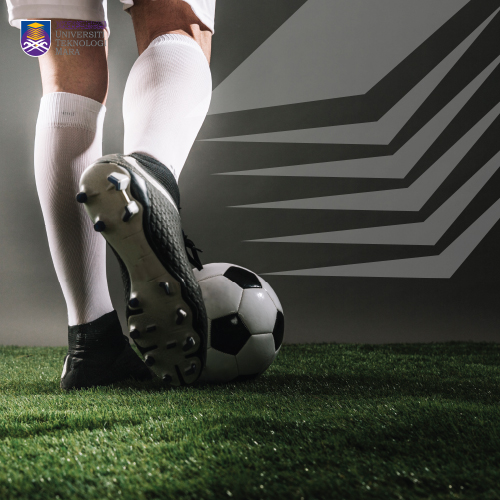 |
This course is designed to provide the students with the knowledge, understanding and skill on the various types of sustainable construction. The course covers aspects of the economics, process, management, and measurement of the various types of sustainable construction. It includes open building systems and the use of modular coordination in the development of design and construction. |
 |
The course is designed to further provide students with knowledge and understanding of the various clauses in the standard forms of contract available in the construction industry and their application to quantity surveying and building practice. |
 |
This subject explores the basic knowledge of building surveying works and profession in relation to building performance
by identification and understanding of building defects. It also emphasized on the implementation of building inspection
method for low rise building. |
 |
This course enables the student to acquire basic building surveying principles and practices associated with the functional elements of buildings. This include diagnosis of building defects and report writing. The student also needs to analyse the preparation of costing for remedial works. |
 |
This course aims to expose students with knowledge in building control. The course specifies the procedures related to the submission of development approval including planning permission, building plan approval, and issuing of the Certificate of Completion and Compliance to Local Authority. |
 |
The subject explores the importance of maintenance in relation to building performance and design implications. It also designed to develop understanding of maintenance management needs for building elements and building services by identifying functional requirements, problems and their remedies. |
 |
This course aims to expose students with advanced knowledge in building control. The course specifies the competency required to ensure the building plan approval process complies with the Uniform Building By Law 1984, relevant act and building standards. The knowledge gained will provide students to interpret and apply building control legislation in building control activities. It includes the evaluation and interpretation of building requirements according to the Uniform Building By Law criteria and strategies for compliances. |
 |
This course covers the concept of building economics from principles to the implementation of asset and space management in the building process. |
 |
The course focuses on 2 parts:
i) Building construction: site investigation, soil investigation, substructure and
foundation
ii) Building material: Bricks and timber |
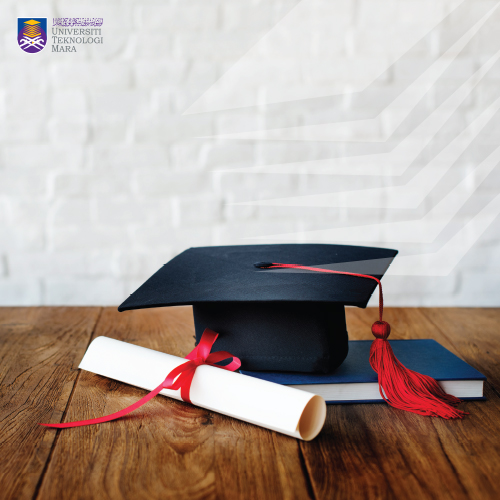 |
Prepare to dive into the "Technical drawing MOOC" and learn the fundamentals of drafting technical drawings. The goal of this course is to introduce technical drawing fundamentals and interpretation. The learners will acquire fundamental information and abilities in drafting, including lettering, sketches, perspectives, geometry, isometric, and symbols with various dimensions, scales, and plans, elevations, sections, as well as three-dimensional views.
With the help of an interesting and useful MOOC, learn about eight (8) comprehensive topics, such as an introduction to drawing instruments, a technical drawing overview, geometric constructions, dimensioning, elevation, and section views in accordance with standards and specifications based on building construction regulations. |
 |
This course aims to expose students with knowledge in building services. The course specifies
the services related to water supply system, sewerage drainage, solid waste management,
fire protection and gas distribution system in building related to building legislation |
 |
This course deals with the roles of civil engineer in analysing various geotechnical engineering parameters based on various file and laboratory tests. Furthermore, the syllabus also addresses the application of geotechnical engineering parameters in analysis and design of foundations, slopes and earth retaining structures. |
 |
Introduction to structural forms, internal forces and external reactions in determinate structures. Analysis of beams, trusses, frames, arches and cables based on static equilibrium equations. Deformation of determinate structures. Influence lines of beams and trusses. |
 |
The MOOC of Indeterminate Structures is developed for a better understanding of civil engineering studies and provides a platform to facilitate more advanced studies in structural analysis. This course deals with the analysis of force and deformations in statically indeterminate structures moment distribution, stiffness and flexibility methods. There are various learning materials including notes with problems and solutions, teaching videos, learning activities and assessments to groom the learner's skills in the structural analysis. |
 |
This course deals with the principles of prestressed and precast concrete, the application of prestressed and precast components in the context of civil engineering, the design of the prestressed concrete beams, precast concrete frame analysis, joint and connections in precast, and the general practices of precast concrete construction in accordance to the related codes of practice and manuals. This course related to the knowledge gained from the reinforced concrete and the structural analysis courses. From the principle of prestressed concrete, the formulation for design is discussed and the design of the prestressed concrete beam is demonstrated. |
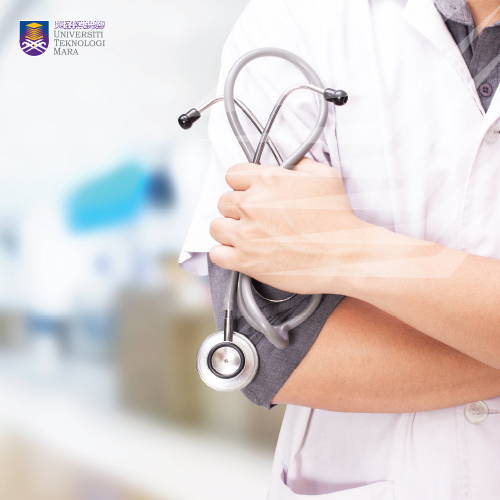 |
The course introduces topics on basic chemistry for chemical engineers. The topics covered include chemical and phase equilibrium, thermochemistry, electrochemistry, chemical kinetics and hydrocarbon. |
 |
The course introduces topics on the environmental physical and chemical processes which include science of the atmosphere, water sources and solid earth, urban environment, environmental organic chemistry and biogeochemical cycling of chemicals. |
 |
This course provides fundamental concept of solid waste management and basic principles of air pollution control and measurement systems. This course also comprises the process engineering principles especially in selecting and designing the solid waste disposal and air pollution control systems. In addition, the relevant topic such as conversion of waste to energy, treatment and disposal of industrial, hazardous and clinical wastes are also presented. |
 |
This course includes a discussion on the sources of pollution and pollutants from the various sections of the oil and gas industry and its impacts to the environment. The discussion on the pollution control and waste management is done according to major sectors in the oil and gas industry; upstream, midstream and downstream. Pollution control methodologies such as pollution prevention and waste minimisation methodology are discussed based on case study. Finally, the steps involved in waste management are included. |
 |
This course develops knowledge on the use of specific methods to determine the most cost-effective and efficient solution to a problem or design for a process. A wide variety of problems in the design, construction, operation and analysis of chemical plants can be resolved by identifying features that desirable (also undesirable) in the formulation of an optimization problem. Several detailed studies illustrating the application of various optimization techniques will be discussed. |
 |
An introductory course on chemical engineering discipline and its application conducted through lectures, group projects, presentations, and discussions. The topics include the introduction to the world of chemical engineering, the building blocks of chemical engineering, the chemical engineering profession, process equipment and utilities in chemical engineering process industries, and an overview of related chemical industries and their economic contribution and sustainable development. The course will help students to form a conceptual “skeleton” of the chemical engineering discipline, uses the knowledge to create solutions for current engineering problems, and demonstrate entrepreneurship and management skills in the chemical-related industry. |
 |
This course offers an introduction to plant safety and occupational health that covering the concepts, methods, and
application of techniques with emphasize in the control of risk and hazards. The syllabus covers main principles of
laboratory and plant safety, occupational health, relevant occupational safety and health (OSH) legislation, risk
assessment methodologies and emergency, preparedness and planning. |
 |
By the end of the course you should be able to:
1) Name and draw organic compound structures of alkane, alkene, alkyne, benzene, benzene derivatives, alcohol, carbonyl and its derivatives.
2) Interpret data from analytical methods such as gravimetric analysis, spectroscopy and chromatography analysis. |
 |
This course typically aims to comprehensively understand fluid behavior, principles, and their applications in chemical engineering. This course structure is conducted through recorded video and divided into several topics not limited to fluid properties, pressure, and head, types of flow, dimensional analysis, continuity and Bernoulli’s equations, flow meters, notches and weirs, steady incompressible flow in circular pipe, and pump. Integrating virtual labs enhances the practical aspects of fluid mechanics learning for chemical engineers.
Upon completing this course, students are expected to achieve course learning outcomes and provide flexible learning at their own pace while benefiting from structured content and instructor guidance. |
 |
This course will take a comprehensive view of project management, addressing both the technical and the social or human sides of the field. Furthermore, the course will provide intensive coverage of management in a wide range of project applications from concept to operations. Planning, scheduling, controlling, economic analysis, quality control and customer satisfaction are stressed in the course. The students will also expose to professional ethics concepts and engineering professions that can be applied in the real engineering world. |
 |
This course is an advanced course in chemistry. The topics covered include acid-base reactions, chemical equilibrium, thermochemistry, electrochemistry and kinetics. |
 |
This course is fundamental to the learning of chemical engineering. It begins by strengthening the knowledge of conversion as applied in engineering and sciences between various systems such as SI, American and British. Then the students are introduced to the principles of mass and energy balances in processes, fundamental of steady state mass balance on single and multiple unit operations, along with bypass and recycle. |
 |
This course introduces the topic of transport phenomena, which involves the development of mathematical models and physical understanding of the transfer of momentum, energy, and mass. |
 |
This course is a continuation of Chemical Process Principle I. The students are exposed to advanced material and energy balance concepts to solve problems of unit operations in chemical processing for both steady and unsteady state systems. The students are also exposed to the application of specific chemical engineering software to solve material and energy balances |
 |
This subject introduces the students to one of the fundamental knowledges that the students must acquire in separation theory with respect to mass transfer principles in various unit operation i.e. distillation, liquid-liquid extraction, leaching, membrane separation and crystallization. Students are also will be exposed to engineering tools related to IR.4.0 to solve the engineering calculations especially those related to separation processes. |
 |
This subject introduces the students to one of the fundamental knowledge that the students must acquire in mass transfer and mass transfer operations. The topics covered include the concepts of mass transfer and equipment design for gas absorption, adsorption and drying. Students are also will be exposed to engineering tools to solve the engineering calculations especially related to mass transfer problems. |
 |
This is a continuation from the previous semester course to provide students a firm foundation in basic chemistry. It covers topics such as acids and bases, chemical bonds, oxidation and reduction, electrochemistry II and organic chemistry. The course develops knowledge and builds students' understanding of chemical principles which are related to real-life applications and current technologies. The teaching and learning sessions will be conducted via lectures, tutorials and scientific investigations. The learning outcomes shall be assessed through a variety of tools which include the examination and assignments to increase students’ level of understanding and reinforce their knowledge chemistry. |
 |
Chemistry For Pre-Science (CHM083) is for Pre-Diploma Science students. This course will interactively engage students cognitively and effectively in eight areas including the structure of an atom, mole concept, chemical formulae and chemical equations, aqueous solutions, periodic table, chemical bonding, electrochemistry, and introduction to organic chemistry.
The designated lecture session discusses the existing concepts, principles, or theories of basic chemistry. Lecture sessions employ a mixture of lectures and active learning (self and peer discussions). The outcomes shall be assessed through a variety of tools which include activities and assessments (test and final exam) to cover CLO1 (C3) and the presentation of assignment to evaluate students' effective verbal communication skills. |
 |
This foundation chemistry course focuses on the basic knowledge of conservation of mass, atomic interaction & molecular
structure in the fields of inorganic and physical chemistry. This course is designed with a logical progression of topics
arranged for students, who are entering tertiary education with different learning styles and varied stages of preparedness
to further their studies at higher level. The purpose of this course is to provide students with a good mastering of chemical
concepts and problem-solving skills in order to develop long-term retention of principles and practice needed in their
future studies. By the end of this course, students are expected to acquire and apply knowledge of chemistry to respective
fields of medicine, health, environment, agriculture, industry and engineering. |
 |
This foundation chemistry course focuses on the basic knowledge of chemical rates, equilibria and organic reactions in the fields of physical and organic chemistry. This course is designed with a logical progression of topics arranged for students, who are entering tertiary education with different learning styles and varied stages of preparedness to further their studies at higher level. The purpose of this course is to provide students with a good mastering of chemical concepts and problem-solving skills in order to develop long-term retention of principles and practice needed in their future studies. The goal will be accomplished by guidance methods, in-class exercises and a systematic problem-solving approach. By the end of this course, students are expected to acquire and apply knowledge of chemistry to respective fields of medicine, health, environment, agriculture, industry and engineering. |
 |
This is a basic chemistry course aimed to provide foundation in physical, organic, and inorganic chemistry. The topics covered include introduction to safety, safety awareness, MSDS and occupational safety and health act, mole concepts, reactions of acids and bases, atomic structure, periodic table, chemical bonding and redox reactions. |
 |
This introductory course in basic chemistry includes fundamental concepts like atomic structures, general features in a
periodic table and the various types of chemical bonds. This course also gives a brief introduction on the types of crystal
structures and the general properties of the first series of transition elements. Besides the basic concepts, problem solving
skills will be taught in topics like chemical stoichiometry, thermochemistry, electrochemistry, acids and bases. |
 |
This course is an introductory course on the structure and physical properties of hydrocarbons namely alkanes, alkenes, alkynes, aromatic compounds and alkyl halides. This course also covers the nomenclature, preparations, reactions, chemical tests and uses of organic compounds. |
 |
This course is an introduction to spectroscopic and chromatographic methods on theory, application, and instrumentation. Spectroscopic techniques include Ultraviolet, Visible, Infrared and Flame Atomic Absorption. Gas Chromatography and High-Performance Liquid Chromatography are addressed in chromatographic methods. Integration of spectroscopic and chromatographic knowledge can provide solution to industrial-related problem. |
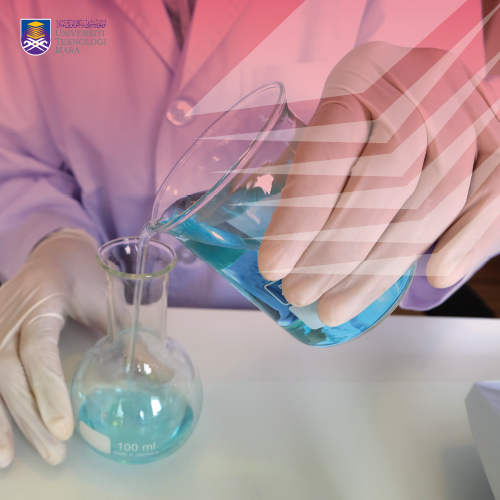 |
This course deals with selected important principles, laws, theories, and concepts in physical chemistry. The topics covered are thermodynamics, thermochemistry, ionic equilibrium, electrochemistry, chemical kinetics, phase equilibrium, as well as colloid and surface chemistry. The understanding of the concepts and theories of topics is gained via collaborative learning, interactive engagement, and lecture-discussion and further enhanced by the active participation of students in hands-on blended learning and hands-on guided instruction in practical sessions. The course learning outcomes will be assessed through written tests, observations, group tasks, and written reports. |
 |
This course will provide knowledge in valence bond theory and orbital hybridization, molecular orbital theory, crystalline
and solid state, transition metals, coordination compounds and metallurgy of iron. Students will define and explain
various terms and theories (crystal field theory and valence bond theory). They will perform investigations via laboratory
experiments, make predictions as to the possible outcomes of an experiment and subsequently discuss the results and
the findings in the form of a written report. |
 |
This course is an introduction to the structures and physical properties of hydrocarbons, aromatic compounds, alcohols, aldehydes and ketones, carboxylic acids, amines and their derivatives. It also includes nomenclature, preparations, chemical reactions, chemical tests as well as usage and importance of some organic compounds and their derivatives. |
 |
This is an introductory chemistry course providing a firm foundation in chemical concepts and principles. This course covers chemical equations and calculations, the mole concept, acids and bases, the periodic table, oxidation-reduction reactions, electronic structure of atoms, chemical bonding and gases. The duration of this course is approximately 14 weeks. |
 |
This course involves theories and techniques in Analytical Chemistry. Students will define concepts, explain principles and applications, solve qualitative and quantitative problems and perform investigations via laboratory exercises. The outcomes shall be assessed through paper examination, tests and quizzes, laboratory technique skills and written laboratory reports. |
 |
The course is an introductory course to physical chemistry which covers the areas of thermochemistry, thermodynamic,electrochemistry, chemical kinetics, phase equilibrium, colloids and surface chemistry.
The lecture session is used to discuss and relates the laws, principles and theories in physical chemistry.
The outcomes will be assessed through final examination, tests and quizzes, laboratory skills and written laboratory reports. |
 |
This course is an introduction to the structures and physical properties of carbon compounds namely hydrocarbons, aromatic compounds, alkyl halides, alcohols and ethers. Basic aspects of bonding, conformational analysis, structure and stereochemistry, nomenclature and acid-base chemistry of organic compounds are presented. Chemical reactions and mechanisms pathways of addition, electrophilic substitution, nucleophilic substitution and elimination reactions will be discussed. |
 |
This course is an introductory course to physical chemistry. It will interactively engage students in areas of thermochemistry, chemical kinetics, phase equilibrium, colloid and surface chemistry. Lecture sessions employ a mixture of lectures and problem based learning. Students will define concepts and perform investigations via laboratory exercises. Results of laboratory investigations leading to its relation to existing laws, principles or theories will also be discussed in the lecture session. |
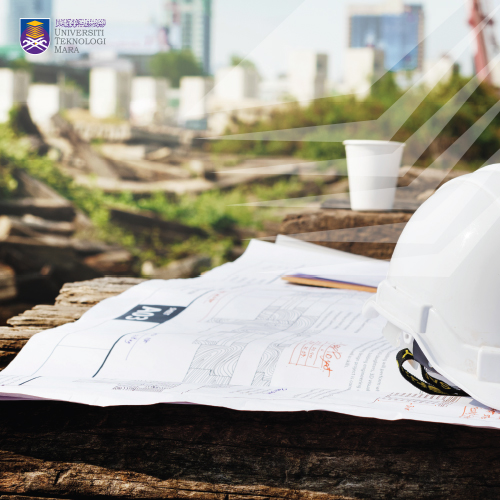 |
This course will interactively engage students cognitively and scientifically in areas of chromatography, electrophoresis, and sample preparation. Students will define concepts, state and explain chromatographic theories, make decision and justification as to the possible outcome of an analysis, perform investigations via sample problem exercise leading to its relation to the chromatographic principles or theories. The lecture session is used to discuss the instrumentation and application of each separation and sample preparation techniques. |
 |
This course will interactively engage students cognitively and scientifically in areas of sampling, method selection, procedures in establishing new analytical process, validating an analytical method, making and reporting measurements, quality assurance issues in making analytical measurement and reporting for efficient management of analytical laboratories. Quality and reliability are the two very important parameters in analytical chemistry. High-quality analytical information alone is not enough, as the information must also be reliable. Reliability is defined as the maintenance of quality through time. To obtain reliable analytical data, it is important to examine the reliability of all the steps involved in analytical process: sampling, data processing and reported results. Topics such as quality systems in chemical laboratories will facilitate the mutual recognition of analytical data between laboratories and trading partners in relation to regulations. The outcomes shall be accessed through a variety of tools which include the final examination and tests. |
 |
This course will provide students cognitively and scientifically with knowledge of the chemistry of the covalent bonds, the periodic trends of elements, the intermolecular forces in covalent compounds, the chemistry of inorganic solids, transition metals and coordination compounds. Students will define concepts, state and explain various laws and theories. They will perform investigations via laboratory exercises, make predictions as to the possible outcome of an experiment and subsequently discuss the results and the findings in the form of a written report. |
 |
Exploring an organometallic compound and its catalytic process, which is commonly used as a catalyst in the industrial sector. This course provides knowledge of the chemistry of compounds containing metal-carbon bonds in terms of the bonding of the organic group to metals via the lone pair of electrons as well as the pi-electrons (olefin complexes). The application of the 18-electron rule in such cases is discussed. The characterization of organometallics through infrared and 13C nuclear magnetic resonance spectroscopy is studied. The reactions of organometallic compounds and their usage in some organometallic complexes, namely as catalysts, are also discussed. |
 |
Structural Mechanics MOOC course forms the basic foundation knowledge for all structural and mechanic design of structural elements. This course is designed for the benefit of engineering, building or construction students desirous in excelling in their examination and professions. The contents are presented in a graded manner, 'known to unknown', 'easy to difficult' and 'simple to complex', for easier knowledge comprehended. The variety of solved and unsolved practice exercises make the course material learner-friendly, so as to facilitate independent learning. |
 |
Law has become an increasingly important subject in any professional course. Builders need to have a sound knowledge of law related to construction which covers the Law of Contract and Agency and Tort and Land Law.
The objective of this course is to introduce to students the construction law in general that forms a background knowledge of these works in construction. |
 |
An introductory course in quality control, quality assurance and safety in industry which include an overview of ISO, approach in PDPC during problem solving and seven tools involved in quality control process. Safety in industry will be covered at the end of this course including introduction of OSHA, laboratory hazard, risks and safety equipment in industry and laboratory. |
 |
This course is aimed at providing students the basic concepts of thermodynamics and applying these concepts to solve problems related to actual situation. The topic begins with an introduction to units and dimensional analysis, properties of pure substances, the three laws of thermodynamics and the free energy functions. |
 |
This course will interactively engage the students cognitively and scientifically in the areas of natural product chemistry including definition of natural products, metabolism, and their classes. The students will be exposed to natural products approach to drug discovery including sampling, vouchering, extraction and isolation of secondary metabolites from natural products. The outcomes shall be assessed through a variety of tools which include the traditional paper examination (tests and final examination), classroom engagement like student presentation and case study report. |
 |
This course will introduce students the basic principles of colloid and surface chemistry. Foundation of colloid surface chemistry will be explained and details. Essentially, physicochemical of colloids involving solid and liquid adsorption, stability, destabilization, surface tension and contact angle properties will be taught and assigned. Characterization of colloidal system is also briefly discuss. |
 |
Oleochemicals are made from vegetable oil and animal fats feedstocks. They range from fatty acids, glycerine, alcohols
and metallic soaps to fatty nitriles and their derivatives. This course is designed to provide the foundation for various
processes involve in oleochemistry. It covers the formation of basic oleochemicals such as Fatty Acids, Fatty Acid Methyl
Esters (FAME), Fatty Alcohols, Fatty Amines and glycerol via various chemical reactions. It also includes the production
of upstream chemical products derived from oleochemical feedstocks. |
 |
This course will take a comprehensive view of project management, addressing the field's technical, social, or human sides. Furthermore, the course will provide intensive management coverage in a wide range of project applications from concept through operations. Planning, scheduling, controlling, economic analysis, quality control and customer satisfaction are stressed in this course. |
 |
This course presents the principles and methodology to develop an understanding of Pinch Analysis & Design technique. The students are expected to acquire the skills to be applied for optimal heat and mass recovery for the ultimate aim in producing cost effective, clean and energy efficient designs of new and existing chemical process systems. |
 |
This course exposes students to the fundamentals of computer and deals with general computer literacy. The course also explain the current computing trend in Industry Revolution 4.0 on managing Data, Cloud Computing and Interactive Multimedia Applications. This course also emphasizes the aspect of computer security and computing ethics. |
 |
The Foundation Computing I course focuses on the basic knowledge of computer system, the Internet, communication and networking, and general purpose and engineering application software in producing Information. This course is designed with a logical progression of topics arranged for students, who are entering tertiary education with different learning styles and varied stages of preparedness to further their studies at higher level. The purpose of this course is to produce students with knowledge of computer technology and problem-solving skills in order to develop long-term retention of principles and practice needed in their future studies. The goal will be accomplished by thorough guidance methods, in-class exercises and hands on exercises. By the end of this course, students are expected to acquire and apply knowledge of computer to respective fields of engineering, medicine, health, environment, agriculture, and industry. |
 |
This course is an introduction to problem-solving using a computer programming language. It emphasizes on algorithm development and writing computer programs, as well as common good practices in writing programs. Students will be taught to solve problems involving the 5 basic algorithms of summation, average, counting, as well as determining the minimum and maximum values of a set of data. Teaching methods will involve, lectures, tutorials, and practical computer lab work. Students will be assessed through written assessments as well as programming assignments. In the end, they are expected to develop the ability to analyze simple problems, organize effective algorithmic solutions for the problems and write computer programs to solve them. |
 |
A deep understanding on the concepts of computer architecture is essential in the field of computer science. Students will be exposed to the structure and function of the computer and its components. Students will be introduced to assembly language to demonstrate the strong correspondence between the language and the computer architecture's machine code instructions. |
 |
This course will emphasize solving simple to more complex problems using a programming language that supports Object-Oriented programming. The main concepts of Object-Oriented programming are discussed. The principles and techniques taught will include objects and classes, abstraction, encapsulation, inheritance, and polymorphism. Students will also be taught on how to model the solution using UML design prior to the development process. |
 |
The operating system is an essential part of a computer system. Similarly that the need to understand and appreciate the
operating system is also indispensable to the computer science students. Operating systems should be studied for the
reason of their existence: what they do, how they did it, and how they are designed and constructed. |
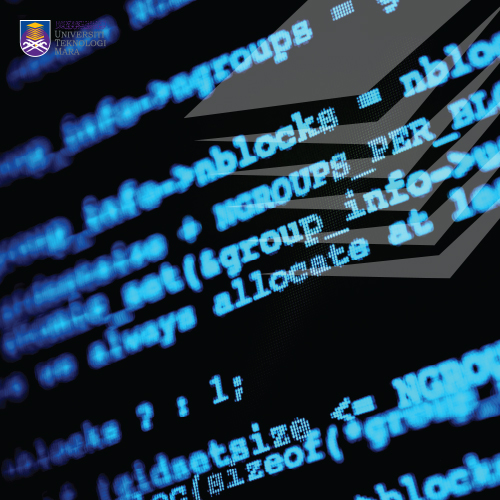 |
This course is the continuation of the Fundamental of Computer Problem Solving course. It will emphasis on solving simple to more complex problems using a programming language that supports Object-Oriented programming. The main concepts of Object-Oriented programming are discussed. Principles and techniques taught will include objects and classes, abstraction, encapsulation, inheritance and polymorphism. Students will also be taught on how to apply Object-Oriented concepts to store and retrieve data using text files. |
 |
This course will introduce the essential topics in interactive multimedia application development. It includes concepts in multimedia, basic multimedia elements such as text, graphics, audio, video, and animation also the requirements of multimedia project development using authoring tools. Besides that, the implications of data storage and retrieval methods and also the role of teamwork in multimedia project development will also be highlighted. It will also discuss on multimedia computer hardware and software, current multimedia authoring tools, file formats, media storage and memory management. Applications of multimedia for the Internet will also be emphasized. |
 |
At the end of the course, learners should be able to:
• Describe the importance of Internet technologies and exploit full potential of its capabilities.
• Design and develop web pages using Mark-up language, Client-Side scripting and Server-Side scripting for efficient user interaction.
• Establish, configure and maintain an intranet and internet website. |
 |
Prior to graduation, students need to acquire working experience in an information processing environment. Therefore, this subject will introduce them to the challenging working environment. |
 |
This course introduces the students to the techniques of programming using an imperative structured language. It covers
single and multi-dimensional arrays, records, pointers and file processing concepts. Besides covering the basic syntax
and semantics, the course emphasizes on problem solving methodology and modular programming techniques. |
 |
1. Describe the basic elements of interactive multimedia.
2. Demonstrate teamwork skills in multimedia application project.
3. Constructs multimedia project with authoring tools. |
 |
This course is designed for students to study engineering programming. Fundamental concepts and principles of the
chosen computer programming language are covered in this course. Considerable emphasis is placed on the
understanding and application of computer programming. |
 |
This course is intended to introduce students to interactive system and the user-experience-centered view of software development. Students are required to use suitable approach and technology to design and develop software with usable and interactive user interface. The components that will be covered include human and technology aspects of the HCI. In this course, students will demonstrate their HCI knowledge via assignments that require them to analyze the user interface, designing a user interface, developing an interactive system and thus evaluating it using suitable tools and techniques. |
 |
This course provides basic principles of XML that are designed to separate mark-up from related content. It also prepares the student the typical and important uses for XML-based mark-up languages.In addition, it also covers the grammatical rules in order to work with XML. |
 |
This course covers the current technical issues in game technology including a detailed discussion of new technology, principles, current research and future direction. Topics include game history and genres, game design and processes, game scripting and programming, games engines, game engines artificial intelligence and social and interface issues of game development. |
 |
This course is designed to introduce the student to fundamental knowledge of cellular morphology that encompasses normal and pathological changes. Emphasis will be given to the gynecological specimens. Stains and staining techniques
used in the laboratory to study the morphology of the cells will be also covered. The non-gynecological cytology is included as
an overview. |
 |
In this course the student will be exposed to the different types of research project and learn to propose a complete research project. The students will be guided to produce a proposal of an intended project. The guidance will include theoretical research and it can culminate in model program intended for testing out the theoretical findings. |
 |
This course is directed towards medical students who are keen on learning about chest tube thoracostomy as well as health-care professionals who are involved in its management at the hospital setting. Tube thoracostomy or chest tube drainage, is a life-saving procedure, performed using a flexible plastic tube, mainly in the Emergency Unit as well as in the Ward. This course will familiarize the students on the relevant anatomical knowledge which includes the surface anatomy of the thorax, the relationship of the neurovascular structures to the ribs as well as structures within the thoracic cavity and upper abdomen. It will review the indications and complications of the procedure, the steps undertaken as well as the instruments involved during its insertion. Most importantly, this course will focus on the safe-guards and pitfalls pertaining to the procedure to ensure a safe and proper placement for the patient. |
 |
Prosthodontics is a dental specialty pertaining to the diagnosis, treatment planning, rehabilitation, and maintenance of the oral function, comfort, appearance, and health of patients with clinical conditions associated with missing or deficiency in the number of teeth. Removable Prosthodontics is the branch that oversees the replacement of missing teeth or soft tissue with a removable prosthesis that may be a tooth, tissue or tooth-tissue supported.
The aim of the “Complete Denture Prosthodontics: A Clinical Guide” course is to ensure that students will be able to construct a quality complete denture following the principle of construction, hence producing satisfaction to the patients. It comprises theories on online learning, application of basic knowledge as guided video, assessment, and discussion for each topic.
At the end of the MOOC Courses, students are advised to fill up this form at https://forms.gle/c498Uz4EmdAADVjz5 |
 |
"Fundamentals of Dental Clinical Practice" is an extensive course meticulously crafted to provide dental students or individuals interested working in dental clinic with the vital knowledge necessary for proficient clinical performance in dental settings. Spanning nine crucial subjects, the curriculum encompasses dental ergonomics, dental assisting, utilization of dental instruments, fundamental dental radiography protocols, diagnostic techniques, and effective moisture control. By immersing themselves in these essential topics, students will acquire practical acumen, ensuring their readiness for the demands of actual dental practice. This course serves as an indispensable tool for individuals aspiring to excel within the realm of dental healthcare. |
 |
Approach To Dermatology
This is a short lecture to help prepare students for dermatology posting. It consists of guides on detailed history taking for dermatology cases as well as a guide on basic physical examination techniques. Students will also learn how to describe the presentation of skin lesions during the examination. Introduction to some investigations and tools use in the field of dermatology is also included. |
 |
This comprehensive course offers students and dental fraternity a valuable opportunity to enhance their knowledge and skills in infection prevention and control, with a particular focus on contemporary healthcare practices in a dental environment. Throughout the course, participants will be encouraged to delve into various aspects of clinical governance, explore relevant theories, and examine a range of prevention methods. Emphasis will be placed on the complete spectrum of infection prevention and control measures. This curriculum is designed to ensure that participants are well-equipped to practice safe procedures in clinical settings, aligning with the highest standards of patient care and safety. |
 |
This MOOC is recommended as a first step to learn Fixed Partial Dental Prostheses. As a fundamental course in the fixed prosthodontics, you will learn the timeless message that simple to advanced prosthodontics must begin with a thorough understanding of treatment planning, materials selection, fundamental principles of tooth preparation, prosthesis designs, adhesive dentistry, and clinical procedures. In addition, a series of demonstration regarding tooth preparation, provisional restorations, impression techniques, and cementation are incorporated into this MOOC. |
 |
This course introduces generally the overview to an interior-design world in order to develop design thinking and design appreciation among students. Students will be exposed to both technical drawing aspect and design aspect. However, focus will be more toward to student’s drawing skills and technical understanding. This fundamentals knowledge and understanding in design are essential for the students before they are going to further semester. |
 |
This course is an introduction to the principles and techniques of drawing. Students has to be able to understand the used of drawing equipments and materials. Students should be able to draw types of line and freehand drawing technique. Students should also be able to draw perspectives drawings with various rendering and colouring techniques.
Welcome to Freehand and Perspective Drawing
Requirements
This course is for absolute beginners and intermediate level artists seeking to improve their fundamental skills.No previous drawing experience is necessary!
The Freehand and Perspective Drawing Online MOOC is a remarkable program that will teach you how to sketch and rendering. The program is simple, each module you’ll watch one video lesson that will introduce an essential drawing skill, and then do the recommended practice. The Freehand and Perspective Drawing is overflowing with powerful insights into the drawing process and offers some of the clearest, most accessible drawing instruction available. |
 |
The course introduces students to the required methods and techniques to use drafting tools, understand drafting techniques and architectural symbols as well as produce technical drawings. This provides an opportunity to train and guide students to understand the process in actual drawing production. |
 |
The course is a continuation of the Theory of Basic Design. An exploration of the three dimensional designs from the basic design elements to a more complex level. This involves the understanding of how form creates space and volume with exposure towards the quality of space, lighting, space organization, perception of space and space transformation, together with the basic design principles. The course also includes the knowledge of human factors and the environment that can be related to the design topics. |
 |
This course is a continuation from year one. The student will be taught the commercial interior design knowledge, emphasizing on the understanding and skills in the design process, space planning, lighting design, display design, shop front design, communication design, corporate image, color and material selection. Student will explore and demonstrate the idea of thematic design concept through the final project. |
 |
This course will emphasize lifelong learning for interior design project implementation. Students will be exposed to the building interior components and materials in the construction industry. The introduction of the Uniform building by-law is applied as a guideline on the interior design scope of work, focusing on the technical requirements. This guideline will be associated with the local authority guideline for submission approval. All of the knowledge of materials, tools, methods of surveying, and the function of drawings are essential for the students to produce appropriate technical drawings and a project report. This course will also develop the student’s skills to work as a team, present their finding through visual and verbal communication as well as demonstrate the ethics in their carrier as Assistant Interior designers. |
 |
This MOOC is recommended as a first step to learn dental occlusion. As the fundamental course in the occlusion series, you will learn the timeless message that simple to advanced dentistry must begin with a thorough understanding of dental occlusion and the functions of the stomatognathic system. Besides, a comprehensive understanding of how the TMJ, muscles, and dentition/ periodontium are designed to function in harmony with one another. There are 6 lessons in the course:
1. The stomatognathic system
2. Basic mandibular movements
3. Fundamental concept of occlusion
4. Articulator and facebow
5. Occlusion in removable, fixed and implant prosthodontics
6. Managing common occlusal problems |
 |
If you want to learn how to treat simple to moderate cases of malocclusion using removable orthodontic appliances, you have landed in the right place. This MOOC is designed to give you the fundamental knowledge needed to treat patients using removable orthodontic appliances. You will learn their mode of action, their basic components, and the malocclusion cases suitable to be treated with removable orthodontic appliances. In this MOOC, a series of detailed demonstrations will guide you through the fabrication and issue of removable appliances to achieve the desired treatment goals. A variety of clinical cases, case summaries and appliance designs are also delivered to you in this MOOC.
Learning engagement: The goal of this course is to provide students with open access interactive courses in Orthodontic Removable Appliances (ORA) using a variety of formats where lectures, practical videos, assessments, and other learning activities are offered.
The learning activities in this course are divided into 6 modules. |
 |
This MOOC aims to introduce students the basic amenities in medium-rise buildings. These include water supply and reticulation, plumbing systems, sewerage and refuse disposal systems. This MOOC furnishes the students with knowledge and information regarding the processes, systems and components and related building regulations. |
 |
This course is intended to provide an introduction to basic ideas of economics and focus on student learning by applying the central ideas used in economic analysis. It is also aimed to provide the students with general knowledge of the factors of economic affecting the construction industry. |
 |
This course covers topics on fire safety, electrical and telecommunication systems in medium-rise buildings. The syllabus
also intends to furnish students with knowledge on mechanical handling, mechanical ventilation and air-conditioning and
gas supply systems. It is designed to give students background knowledge on the topics and encourage students to
observe the actual systems in buildings. It focuses on the installation, layout, procedures, and functions of the systems
including related building regulations. |
 |
Prosthodontics is a dental specialty pertaining to the diagnosis, treatment planning, rehabilitation and maintenance of the oral function, comfort, appearance and health of patients with clinical conditions associated with missing or deficiency in the number of teeth. Removable Prosthodontics is the branch that oversees the replacement of missing teeth or soft tissue with removable prothesis that may be tooth, tissue or tooth-tissue supported.
This Removable Partial Dentures (RPDs) course aims to take you through the fundamentals and basic techniques on how to go about delivering a functional and aesthetically satisfactory RPD to your patient. The course will begin with an introduction and classifications of RPDs, followed by the stages involved in treatment planning. Upon completing this, you will learn the basic principles of designing an RPD along with the impression materials that are frequently used in RPDs. The remaining of this course will walk you through the clinical steps of RPD fabrication and not forgetting the occlusion concepts. |
 |
This course is intended to introduce participants to steps in tobacco cessation practice.
This course will include an introduction to tobacco addiction, the risks associated with tobacco use, the steps in tobacco cessation practice, cognitive and behavioral treatment strategies including motivational interviewing, and a brief overview on tobacco cessation pharmacotherapy.
This course would be suitable for health professionals looking to incorporate tobacco cessation in their practice. |
 |
This course intends to introduce concepts and practices behind effective data representation and reporting techniques.
The course explores current data representation that is analyzed for the content, methods and design strategies. The
objective is to provide students with analytical tools that can benefit the design process of representing data and reporting
information |
 |
The course provides comprehensive knowledge and training in Special Care Dentistry based on the professional and ethical standards. The candidates will be exposed to different and current Special Care Dentistry theories and treatment modalities and will be exposed to in-depth knowledge of Special Care Dentistry diagnosis and treatment concepts. Candidates will have lectures, seminars and practical sessions from Semester 1, onwards.
Clinical Special Care Dentistry training includes treatment of patients in faculty clinics and external premises under the supervision of Special Care Dentistry specialists and consultants, as well as specialists in other relevant fields. Candidates are also required to perform supervision session in the undergraduate clinic about once a week.
Candidates are also to complete a dissertation, which is worthy of publication or a publishable manuscript. In addition, candidates undertake two assignment projects which are 1) clinical audit and 2) innovation. |
 |
This course shall provide students a basic introduction of 2-Dimensional Computer-Aided Design (CAD) software with a major focus on architectural drawing. Students also shall learn how to explore graphic edits technic and layout page. This course offer an exposure of a combination of technical and visual presentation software to enhance the visual communication in interior design. |
 |
This course introduces the students to the principles and techniques of scientific research in order to understand holistically the research process.
The focus is on developing the ability in identifying problems, formulating and writing a problem statement together with the research questions and objectives to address the research problem.
Following to that the students should be able to design the required experimental procedures and the expected results.
Finally, the students are required to write and present their research proposal. |
 |
This course provides an introduction to C programming and its applications in solving simple engineering problems |
 |
This course provides an introduction to computer programming and its applications in solving simple engineering problems. The course has 6 main sub-modules to be completed by students. The sub-modules are the initial concept of computer programming, selective statement, repetitive statement, functions, array and pointer. The course provided a basic concept of computer programming which suitable to the beginner until to the expert person. |
 |
This course is to introduce students to number systems, basic gates, combinational logic circuit, MSI devices, sequential circuits, Digital to Analog Conversion (DAC) and Analog to Digital Conversion (ADC). It includes techniques necessary for the design of simple digital circuits and the analysis of sequential circuits. |
 |
The course covers the topics on general purpose microprocessor, its architecture and system organization. Then single chip microcomputer is taught and all aspects of the chip will be covered, from internal architecture, programming up to interfacing. |
 |
This course provides students with the essential knowledge on multimedia systems and applications and understanding of the underlying hardware and software developments of multimedia technology. |
 |
This course provides students with the essential knowledge on microprocessor systems and program design. The main topics provide guidelines on the operations and programming of a microprocessor. |
 |
In this course, students are introduced to IoT and data analytics and their importance in the domain of engineering. Basic concepts and key topics of IoT and data analytics are covered ranging from introduction to IoT, basic networking, microcontrollers for IoT, sensor/actuator interfaces as well as IoT-based data analytics and data engineering.
To help you put theory into practice, our hands-on lab sessions will guide you step-by-step through designing a simple IoT system from the ground up. By the end of this course, you’ll be ready to build your own data analytics platform featuring online data collection and effective data analysis techniques. |
 |
This course deals with the fundamental principles of soil mechanics. It elaborates the application of the concept of effective stress which is the fundamental concept in soil mechanics in characterizing the process of consolidation and soil shear strength behaviour. It covers topics on physical properties and classification of soil, flow of water through soil, shear strength and soil compaction and consolidation. |
 |
This course introduces the basic aspects of physical geology, structural geology and engineering geology that related to civil engineering works. Principles of engineering geology will be emphasized in areas of applied geology. |
 |
This course will allow students to experience and carrying out standard soil laboratory tests including physical properties and classification of soils, permeability, compressibility and shear strength of soils. |
 |
This course deals with application of basic soil mechanics principles to civil engineering works. It covers topics on subsurface exploration, vertical stresses distribution in soil, lateral earth pressure, bearing capacity of shallow foundation and introduction to slope stability. |
 |
This course deals with the surveying work in civil engineering practices. Students will be introduced to surveying equipment, surveying techniques and analysis. The topic for area and volume for earthwork in civil engineering work is mapped with Industry, Innovation and Infrastructure goal (SDG 9). |
 |
This course provides an in-depth study of the properties of constituent materials for asphalt concrete mixtures. Theory and practice of asphalt concrete mix for pavements, including specifications and construction methods for hot-mixes and surface treatments. The subject also covers on maintenance and rehabilitation of flexible pavements and relationships of material engineering properties to pavement design and performance. This course also covers basic theories and procedures on related laboratory testing. |
 |
This course deals with rocks, particularly in its application in controlling rock mass instability and reinforcing rock mass by using appropriate system especially in tunneling. The term 'rock engineering' refers to any engineering activities involving rocks. Basic knowledge in geology (particularly rock types, discontinuities in rock and structural geology) is essential for this course. The syllabus consists of engineering geology, classification of rock properties, rock mass classification system, rock stresses and failure criteria, rock slope engineering and tunnel engineering. The rock excavation and support technology part include an introduction to drill and blast method, tunnel boring machine, support elements in tunneling, shotcrete and surface support systems. Construction of structures in or on rock mass (e.g. slope, tunnel & cavern) depends greatly on the rock mass properties and the interaction between the rock mass and the engineered structures. |
 |
This course deals with the principles of geotechnical analysis and design approaches related to two-dimensional flow in soil, slope risk assessment, retaining structures and ground improvement for civil engineering purposes. The slope risk assessment will include sustainable slope stabilisation methods to attain the Sustainable Development Goals (SDG 11) to reduce the risks of damage and loss of life from slope failures. Some components of the Industrial Revolution (IR 4.0) will also be adopted in designing and analysing geotechnical structures using software such as Plaxis, GEO5 and SLOPE/W. |
 |
This course introduces students to the roles and responsibilities of civil engineers in the development and advancement of human civilization and aims to stimulate students' interest in and strengthen their motivation. This introductory course provides an early start to the development of the essential skills such as team working, communication, critical and creative thinking and problem solving in engineering practices. |
 |
The course introduce the basic concept of Telecommunication Engineering Systems. It describes the basic implementation up to the application of communication system. The aim of this course is to develop a platform for new beginner to basic concept and application of Telecommunication Engineering. This platform consists of new method of teaching applied to engineering student which includes multimedia and standard approach. The topics are divided to basic knowledge of telecommunication concepts up to further understand the subtopic. Furthermore, the course is useful to everyone especially to those interested in Telecommunication Engineering |
 |
Industrial Training (IT) is a compulsory requirement for students in certain programs at all levels of higher education in Institutions of Higher Learning (IHL) aimed to strengthen the competencies required. IT course provides students with learning opportunities in a real working environment.
IT exposes students to real-life experiences of civil engineering works and get involved in Civil Engineering projects before graduation. The student MUST complete at least eighteen (18) weeks of IT within semester six (6) for the awarding of Diploma in Civil Engineering. The technical and non-technical course outcomes will be assessed and evaluated through the industrial training. |
 |
The course introduces basic electromagnetic theory through development of concepts and formulation of general laws and their application to specific problems. |
 |
The transmission of information from the sender to the recipient through some medium is called as communication. Communication enables us to know what is happening around us. It helps us to share our knowledge with others and also gain from other individual’s thoughts and ideas. Communication takes place through various routes and channels and with the help of a medium. A person can chat with his distant relative over the phone and thus the medium of communication in this case is the telephone.
Communication can also take place with the help of light. The airport officials give various signals through light to the pilots for their safe landing. In this case communication is through light and hence is termed as Optical communication. Satellites also play a vital role in communication by receiving signals from the earth station, amplifying it and then resending it back to the earth. Communication can take place with the aid of an artificial satellite between two points on the earth. In the same way signal can also be sent in a digitalized form as in case of Digital communication. |
 |
This course is intended to introduce mobile communication system, mobile radio propagation and digital mobile communication systems i.e. cellular and wireless networks. |
 |
This course will discuss the contract administration process and present the tools available to administer the contract. Students will learn how to use specifications to develop contract goals, and will be introduced to a variety of general contract types and important clauses. Students will also learn how to select a contract type and develop contract clauses to meet specific contract goals. At the end of each chapter there are exercises designed to take students through the process of developing a sample contract document. In monitoring contract performance, students will learn the roles of the members of the contract administration team. Students will be introduced and use tools required to monitor contract performance, changes, disputes, delays, closeout and payment. At the end of the course an exercise has been designed to present problems and students are required to use the tools of contract administration to propose a holistic solution. |
 |
This course provides an in-depth exposure to current breakthrough technologies and disruptive innovations that have emerged over the past few years in the field of electrical and electronic engineering. A close examination and systematic review will be conducted to understand the technology’s evolution and implementation. |
 |
The course introduces design methods for RF and microwave frequencies which is essential for communication engineering |
 |
This course introduces satellite communications system.Topics include overview satellite system, space and earth segments of satellite system, orbital mechanics and perturbations, link budgets, interference issues, satellite access and satellite services. |
 |
This course addresses wireless networking, including architectures, protocols, and standards. It describes concepts, technology and applications of mobile and satellite as used in current and next-generation wireless networks. It describes the engineering aspects of network functions and designs. |
 |
This course covers a comprehensive treatment of the theory of digital switching, traffic flows and dimensioning of loss and delay characteristics in the switching systems of Public Switch Telephone Network (PSTN). |
 |
This MOOC aims to deliver high quality engineering materials content. It focuses on materials used for construction and maintenance such as concrete, steel, brick and wood. This MOOC also discussed the concepts, techniques, and instruments used to measure engineering properties of construction materials to ensure the longevity and quality of the building. Overview on the sustainable construction materials were also focused in order to draw audience awareness towards importance of shifting the conventional construction materials towards greener innovative materials. |
 |
Static is a subdivision of mechanics and deals with bodies at rest. Course includes mechanics of particles and rigid bodies, section properties, virtual work, analysis of trusses, cables and beams. |
 |
This is a fundamental module in civil engineering structures. |
 |
Dynamics is a subdivision of mechanics of bodies and deals with bodies in motion. Topic covered includes kinematics and kinetics of particles and rigid bodies, Newton’ Second Law, force-momentum formulation for systems of particles and rigid bodies in planar motion. Work-energy concepts and vibration. |
 |
This course covers four main engineering materials i.e. cementation, metallic, organic and inorganic materials. The emphasis are on concrete, steel, timber, bricks, bitumen, green and advanced materials. They are studied with reference to their compositions, properties, application, modification of some of their properties with respect to environmental effects and their behaviour at service. Presentation for problem solving activities is also engaged to teach students to communicate effectively, comprehend and write effective reports and documentation, perform effective presentation, give and receive clear instructions |
 |
This course combines the knowledge on two prime areas; mainly structural steel design and timber design, and their relevant codes of practice and design procedures. The subject covers all the necessary components such as material specifications and elementary design of structural members for designing industrial timber and steel structures. The course provides material specifications and design considerations. The design methodology is based on the relevant code of practice. The course also comprises of analysis and design procedure of steel and timber members. |
 |
This course introduces the numerical techniques used to model engineering systems. It involves the development of mathematical models and the application of the computer to solve engineering problems. Fundamental concepts and numerical analysis techniques used for roots of nonlinear equations, linear algebraic systems, optimization, curve fitting, integration and ordinary differential equations. This course also introduces students to the fundamental theory of the finite element method in engineering problems using the Stiffness approach. |
 |
This subject deals with the use of different types of Special Concrete in constructions. It addresses their special properties, the materials selection, formulation, design, analysis, performance evaluation and limitations to meet specified needs with appropriate consideration for safety and environment. |
 |
The fundamental principles of the numerical analysis and finite element method are applied to diagnose valid explanation of engineering problem using. The numerical and finite element analysis are perform using suitable computer software to provide valid solution to engineering problem. |
 |
The MOOC Structural Analysis is developed for a better understanding of civil engineering studies and provides a platform to facilitate more advanced studies in structural analysis. The course begins with an introduction to structural systems and an understanding of the behaviour of these systems. This course deals with the analysis of force and deformations in statically determinate and indeterminate structures using where appropriate virtual work, moment distribution, stiffness and flexibility methods. There are various learning materials including notes with problems and solutions, teaching videos, learning activities and assessments to groom the learner's skills in the structural analysis. |
 |
This course covers design and evaluation of reinforced concrete structures in accordance with relevant code of practice. It focuses on the design of reinforced concrete structural members including beams, slabs, columns, foundations and shear walls. The students need to design and evaluate the reinforced concrete structural members. The course aims to provide knowledge, skills, attitudes and values necessary to address SDG 9.0 on industry, innovation and infrastructure, and SDG 11 on sustainable cities and communities including financial and technical assistance for sustainable and resilient buildings utilizing local materials. |
 |
This course introduces students to the concepts of fluid mechanics that include properties of fluid, fluid statics and hydrodynamics. Properties of fluids comprise of continuum concept, units and dimension, dimensional analysis and various fluid properties. Fluid statics cover hydrostatic concept for both fluid pressure and buoyancy. This course also discusses hydrodynamics for fluid flow that include the introduction of Continuity Equation and Bernoulli’s Principle and Momentum Equation. Apart from this, hydrodynamics for ideal and real fluids are also introduced. |
 |
This course covers the application of energy equation on incompressible pipe flow and analysis of pipe network to establish the design principles of water supply engineering. The design of open channel based on uniform flow condition will be discussed, followed by the application of specific energy concept and momentum equation for the analysis of non uniform flow. Analysis of pump operation and performance and pump design are also introduced. |
 |
This course reinforces concepts introduced in fundamental fluid mechanics, hydraulics, hydrology, and water quality. Students are required to conduct experiments, analyze and interpret data and prepare laboratory reports. |
 |
This course introduces the student to the fundamental concept in environmental engineering and the relationship between development and sustainability.
This course contains eight (8) topics:
1) Sustainability Management and Regulatory Requirement
2) Issues on Environmental Engineering
3) Source of Pollution , prevention and control
4) Water Pollution
5) Air Pollution
6) Noise Pollution
7) Soil and Groundwater Pollution/ Brownfield
8) Solid Waste Pollution
The course duration for this course is 14 weeks. |
 |
The course introduces hydrological cycle and concept of water budget. Precipitation, evaporation and infiltration processes are discussed that include measurements and analysis. Stream flow measurements, stage-discharge, rainfall-runoff relationships and hydrograph analysis are explained. Rational method, flood routing and the use of probability and statistical method in hydrologic analysis are presented. Applications of hydrology principles in urban stormwater design using procedures outlined in Manual Saliran Mesra Alam Malaysia (MSMA) are discussed. The course concludes with an introduction to hydrologic modeling and simulation. |
 |
This course presents the fundamental design to be used in the practices of water supply (i.e. water treatment and distribution systems design), sewerage/sewer design systems and sewage treatment plants. |
 |
This course deals with theoretical and geological backgrounds on groundwater existence and groundwater flow. It covers the hydrogeology of selected geological settings together with groundwater resource engineering and management. Groundwater chemistry and groundwater pollution (i.e. causes, migration and mitigation measures) are also assessed. |
 |
This subject deals with various aspect of environmental monitoring. It covers physical, chemical and biological monitoring. Parameter selection and monitoring network design is also considered in this course. |
 |
This course is designed to enhance students' knowledge using a Scientific Calculator in solving mathematics problems. Students must have some basic knowledge in using Scientific Calculator before enrol this course. |
 |
This course introduces learners to the fundamentals of electrical engineering laboratory. Students taking this course are exposed to the laboratory safety procedures and rules, software tools, electronics lab equipments and experimental setup EEE240 in a manner that is clear, interesting and easy to understand. The course aims to assist the student in beginning to see the “fun†in engineering and thus completing the final year project. |
 |
The course covers basic concepts, circuit theorems and laws in DC and AC circuits. It deals with applying the theorems and laws in solving the circuit problems. It also includes power analysis for AC circuits. |
 |
The course covers basic concepts, circuit theorems and laws in DC and AC circuits. It deals with applying the theorems and laws in solving the circuit problems. It also includes power analysis for AC circuits. |
 |
This course is a continuation course of Analog Electronics I. The main bulk of the course deals with the ac analysis of the general amplifiers, which covers the multistage amplifier, differential amplifier, Darlington amplifier, the frequency response and the application of the general amplifiers in linear integrated circuits. |
 |
This course provides introduction to electrical and electronics engineering material and basic understanding of the semiconductor physics leading to the operation of junction and field-effect devices. Device operation, physical behaviour and electrical properties of solid-state devices are covered. |
 |
This course introduces solar energy as part of renewable energy resources. It covers the solar energy engineering, photovoltaic devices as well as the photovoltaic systems and their components. Then, the design concepts and procedures of grid-connected photovoltaic systems are discussed. Later, the assessment of sizing requirement in stand-alone photovoltaic systems are explained |
 |
Welcome outdoor and first-aid enthusiasts! In this course, you will be exposed to common emergencies when in the outdoors. You will also learn how to prepare, identify and administer first- aid for outdoor emergencies. These invaluable first-aid skills might come handy one of these days! |
 |
This subject will provide the student with the basic concepts of microbiology, with specific emphasis on microbiology that are significant to students in the Environmental Health Course. Topics to be covered include the structure, physiological characteristics and pathogenesis of bacteria, viruses, fungi and protozoan parasites. Information is presented as to how to deal with the proper collection and handling of specimens and the basic microbiology of water, food microbiology and microbial destruction and control. |
 |
This subject will provide the student with an introduction to basic chemistry concepts relevant to environmental health. Topics include matter and the structure of atoms, the periodic table, compounds, chemical symbols, balancing equations, formulae, acid-base and redox reactions, together with calculations based on formulae and chemical equations. The theory of volumetric analysis, molarity and calculations based on concentration of solutions is discussed. Acid base equilibria, pH and pOH, and buffers will be considered. |
 |
This subject will provide the student with a basic understanding to organic chemistry and its relationship to environmental health. Topics covered include nomenclature, structures, uses and reactions of saturated hydrocarbons, unsaturated hydrocarbons, aromatic hydrocarbons, alkyl halides, hydroxyl compounds, carboxylic acids, carbonyl compounds, and amines. Basic knowledge on organic reactions will be introduced. A relationship from the organic chemistry topics to the formation of photochemical smog, acid rain, toxic organic chemicals - chlorinated organic compounds, PCBs, dioxin, and furans will also be explored. |
 |
This course offers a comprehensive exploration of the methods and processes essential for developing and delivering a safe and potable drinking water supply. Designed for students and professionals alike, it introduces key concepts and techniques for conducting preliminary hydrogeological assessments, which are crucial for evaluating risks to both human health and the environment. Participants will explore the intricacies of surface and groundwater systems, with a focus on rural and urban water supply and distribution networks. The course also covers the evaluation methods for community water supplies, emphasizing the interpretation of physical, chemical, and bacteriological data. Special attention is given to water treatment strategies during epidemics and disasters, alongside groundwater remediation techniques. Additionally, the course provides an in-depth understanding of the risks and health effects associated with water supply systems, equipping learners with the knowledge needed to address real-world challenges. |
 |
This course will provide the student with the knowledge and skills required to protect public health in matters relating to food hygiene and safety which include food source, processing, preparation, handling, serving, display and storage. The food establishment design requirement and layout are discussed in detail. The role of food establishment owners, occupiers and food handlers are examined. Importance of cleaning and sanitizing food premise, equipment and utensil are stressed. Emphasis is placed on food premise risk-based inspection procedures, hygiene assessment via HACCP, GMP and GHP, and related legislative controls to improve food hygiene and safety practices. |
 |
This course will provide the student with a background in the science of toxicology. Students will be exposed to the different sources of environmental pollutants in the atmosphere, soil and water, together with the effects of these environmental chemical pollutants on organs and body systems. The toxic chemicals discussed include heavy metals, elemental forms, inorganic, pesticides, organic solvents, and gases to which the public may be exposed by way of contaminated air, water, and food. |
 |
This course covers introduction of energy efficiency and renewable energy, energy audit, energy efficient equipment and
alternative sources of energy/renewable energy. |
 |
This subject is divided into two major components: foundations in power systems and an introduction to electrical energy and machines.
The power systems component provides an introductory overview of the generation, transmission, and distribution of electrical energy. This segment places significant emphasis on system representation, basic per-unit concepts, and transmission line modeling.
The electrical energy and machines component focuses on three-phase calculations, basic transformer theory, and the study of common electric machines. It particularly emphasizes DC machines while also providing an introductory course on AC machines. This thorough approach ensures a comprehensive understanding of both the theoretical and practical aspects of electrical energy and machinery. |
 |
The MOOC Power Electronics was developed for a better understanding of power engineering studies and provides a platform to facilitate more advanced studies in power electronics. The course begins with an introduction to power semiconductor devices, their characteristics, both static and switching, and their drive circuit design. This course deals with the techniques of designing power conversion circuits using power semiconductor devices in the switching mode rather than the linear mode. Topologies of power electronic circuits for applications in AC-DC rectification, DC-AC inversion, DC-DC conversion, and AC-AC conversion and their control techniques are covered. Applications of power electronic equipment are also included, with an emphasis on DC and AC motor drives. To develop the learner's skills in power electronics, a variety of learning materials including notes with problems and solutions, teaching videos, learning activities, and assessments are provided. |
 |
This course aims to provide a solid foundation for the study of power system modelling and its analysis. Fundamentals of fault analysis and system protection are also covered. |
 |
The course serves as a good introduction to computer methods for power system analysis and control. It covers, among others, load-flow analysis, economic load dispatch, frequency and voltage control and power system stability. |
 |
This course examines the operating principles, the construction and performance of AC electromechanical machinery. It covers all essential fundamentals but concentrated on the use of appropriate equivalent circuits in the study of the steady state and quasi-steady state characteristics of AC machines. |
 |
This course covers the basic of electrical machine and drives principle inclusive the starting method, braking method and speed control for DC motors and Induction motor. |
 |
To introduce students to the applications of artificial intelligence in power system operations. This subject covers the development of Artificial Intelligence applications in power system operation. |
 |
This subject introduces the economics aspects in power system in terms of its market requirement, effects of security and transmission to the electricity pricing and discusses the issues of investments in power generation and transmission equipment. |
 |
The course focuses on the methodology of setting up a sustainable energy management system, proper measurement and verification option. |
 |
This MOOC High Voltage course covers various aspects of high voltage engineering. The topics include knowledge on insulation materials and their applications in engineering fields, breakdown phenomenon in solid, liquid and gas insulating materials, generation and measurement of high DC, AC and impulse voltages and currents, testing techniques for high voltage apparatus and equipment, and the overvoltage phenomenon and insulation coordination. |
 |
This subject will discuss the concepts in control systems which cover open and closed loop systems, mathematical modelling of its transfer function and system stability in time domain and frequency domain analysis up to second order systems. |
 |
Signals and Systems provides a comprehensive coverage on the basics and fundamentals of linear signals and systems as well as applied mathematical concepts; continuous-time signals and systems, Fourier series, differential equations and Laplace transform. This course also provides specifically designed exercises and examples with clear illustrations to further assist student in achieving the best learning experience. Students will be able to classify signals and systems as well as perform signal manipulations, express periodic signal into Fourier series representation and even be able to obtain system responses using differential equations and Laplace transform with application to electrical circuits. |
 |
This subject covers measurement standard, transducers and signal conditioning. Second part of the subject will be focused on the aspect of control systems theory which includes mathematical modeling, stability and time domain analysis. |
 |
This subject deals with basic concepts of linear system. The emphasis will be on continuous-time signals and systems, Fourier series, differential equations and Laplace transform. The differential equations and Laplace Transform will be used in solving simple circuit problems. |
 |
This course introduces the principles of digital signal processing. The students will be exposed to MATLAB mathematical software to generate computer implementations of the techniques for signals and systems analysis and design. |
 |
This course emphasizes on the design and analysis of control systems in time and frequency domain techniques. An introduction to state space as well as digital control is also included. |
 |
This course introduces the principles of digital signal processing. The topics comprise of classical and z-transform methods for analysis of discrete-time linear time-invariant (LTI) systems. Discrete Fourier transform is introduced for frequency-domain analysis of discrete-time signals. Students are presented to techniques of digital filter design for signal processing applications. |
 |
This course provides students with the essential working knowledge and skills on the principles of Computer-Aided Design (CAD), Computer-Aided Engineering (CAE) simulation and Computer-Aided Manufacturing (CAM). This course will cover various engineering simulation (CAE) on eco-products performance, and manufacturing processes and technology such as CNC machining. Students will be able to explore design functions such as drafting and solid modelling that will strengthen the theoretical aspects. Students will also be able to design eco-products parts interactively using the latest CAD software and be able to incorporate this design in the Computer-Aided Manufacturing (CAM) process. Students will be able to generate tool paths for a CNC machine tool, which can be used to manufacture eco-product components. |
 |
This course provides an introduction to computer programming and its applications in solving general engineering
numerical problems. The programming language used is Python. Students will also use Google Colab as the programming tool. |
 |
The Introduction to Engineering (ETE421) course provides a comprehensive overview of the engineering profession, with a focus on digitalization and automation. It introduces students to various engineering disciplines and professional practices, emphasizing problem-solving, laboratory report writing, and technical data representation. Students will learn to use computational tools like MATLAB, Microsoft Visio, and Excel to address real-world engineering challenges. Through group projects and hands-on activities, the course also fosters teamwork, technical communication, and an understanding of engineering ethics and professionalism. |
 |
The course Contemporary Electric Circuit (ETE431) aims to actively engage students cognitively in the analysis of direct current (DC) and alternating current (AC) in electrical circuits. The DC analysis segment will focus on various theorems and will be analyzed in conjunction with industrial requirements. On the other hand, the AC analysis will cover Thevenin Theorem and power triangle exclusively. During designated lecture sessions, fundamental concepts and laws related to solving electrical circuits in DC, transient, and AC analysis will be identified and examined. These sessions will incorporate a blend of lectures and active learning methods. Evaluation of student outcomes will be carried out through a diverse set of tools, including tests, assignments and final exam. |
 |
COMPUTER AIDED DRAWING (CAD) provides knowledge and exposure on the usage of SolidWorks, AutoCAD, electronic CAD, 3D printing, and PCB fabrication software. The course focuses on the application of the software to produce drawings of graphics, electrical / electronic component symbols, circuit schematics and electrical wiring layout diagram. The skills acquired from this course will also equip students with the ability to learn and use other similar software. |
 |
This course introduces an overview of wireless communications which includes mobile radio communications and satellite communications. The course also provides a detailed treatment of antennas, which form a backbone of wireless communication system. |
 |
This course is intended to introduce and assess the fundamental concepts of environmental information system in the
context of environmental management and monitoring using GIS and remote sensing technologies. Students will be
introduced to a number of case studies regarding environmental changes and sustainability issues to explore the wide
range of GIS and remote sensing applications, but gain depth in selected areas through hands-on practical and ways to
extract meaningful geophysical information from remote sensing data to solve environmental problems. |
 |
This course will interactively engaged students cognitively and scientifically in areas of wastewater treatment technology and sludge processing techology. Students will state, write and explain the fundamentals principlea behind the various wastewater treatment methods (physical, biological and chemical) and the operation and maintenance of wastewater systems. Students will calculate a wide variety of wastewater mathematics encountered in wastewater collection and treatment. The designated lecture session is used to discuss various wastewater treatment technologies and practices. Lecture sessions employ a mixture of lecturer and active learning (self and peer discussion). The outcomes shall be assessed through a variety of tools which include the traditional examination, tests, assignments and classroom engagement. |
 |
This course will interactively engage students cognitively and scientifically in areas of occupational and industrial safety. This course introduces the student with the aspects of occupational safety at work place, which include machineries, tools and equipment and working in confined spaces. Hazards in working environments are identified and discussed in detail with the requirement of controls and prevention methods as required by the law. Students will also be introduced to Emergency Response Preparedness planning (ERP). The outcomes shall be assessed through a variety of tools which include the traditional paper examination, tests, written assignment, oral presentation, blended-learning and classroom engagement. |
 |
This course introduces the students to the aspects of industrial hygiene. Basic principles of industrial hygiene are explained and linked with the relevant standards and regulations. The importance of industrial hygiene programs in various working environment are also discussed. Issues in industrial hygiene and strategies to minimise the effects associated with the problems are described in depth to suit the current situations in Malaysia. |
 |
This course is intended to provide students the dimensions of characteristics, functions and resources of disasters on infrastructure element (bridges, tunnels, roads and railways) caused by nature beyond human control and environmental hazards induced by human activities. Integrated disaster response system with emphasis on disaster preparedness, response and recovery are covered in this course. The involvement of local, state and federal levels to the processes, outcomes, policies and systems are discussed and examined. The course provides as well disaster response before, during or after emergency occurs which require in-depth risk analysis to save lives and minimize any physical property damage. |
 |
This course emphasized the use of biological samples in providing essential information and evidence in forensic investigations, theoretical basis of analytical methods, their limitations and applications to specific problems and also the advances in technology that enhanced the application of the biological samples. Students will gain an understanding of the basic concepts relevant to technology in serology, bloodstain pattern analysis, DNA, entomology and anthropology relevance to forensic cases. They will also receive basic training in laboratory which is perfect for skill development in the necessary laboratory procedures. Graduates will acquire the skills to perform laboratory procedures in forensic biology techniques. They will also understand the theoretical basis of forensic technology to enable them to keep abreast of new techniques as they become part of forensic practice. |
 |
Safety Scavenger Hunts:
This is the first of a three parts on Occupational Safety and Health. This part introduces the students to the historical development of occupational safety until the development of the modern occupational safety and health management system. Theories on accidents, accident prevention and investigation and HIRARC are briefly explained. All Malaysian laws and regulations related to the occupational safety and health are described in detail. Several Factories and Machineries Act 1967 Regulations related to the management of safety will also be highlighted. The outcomes shall be assessed through a variety of tools which include examination, tests, assignments, presentation and classroom engagement. |
 |
Engaging people with the background of land titles system in Malaysia, this course provides the knowledge about Malaysian land administration, types of land titles, types of boundary marks, document of land title as a conclusive evidence for land ownership and the survey plan (Certified Plan). It also covers the practical knowledge on how the surveying practices are applied for the land, strata and stratum schemes, plus extra information in the concept of spatium title. |
 |
This course covers the scientific principles of human nutrition. Topics include food sources of nutrients, digestion and absorption of nutrients, relationship between nutrition and other factors in maintaining optimal health, use of food guide and diet planning principles, hazards of excess and deficiency conditions of nutrients. |
 |
This course covers the concepts of quality, differences between quality control and quality assurance, quality control sampling and techniques, tools used in quality assurance and different quality management systems practiced in the food industries. |
 |
The course aims to introduce the technology of food packaging. The functions of packaging, levels of packaging and food-environment-package interactions of the packaging materials will be explained. The manufacturing of packaging materials, their characteristics and properties as well as their advantages and disadvantages will be included. Selected topics for food packaging applications of fresh and processed food products will be covered. The course will also cover some of the new trends/innovations in food packaging technology and packaging systems. |
 |
Unlock the secrets of bonding excellence: dive into the world of wood adhesive and adhesion! Embark on a transformative learning journey with our comprehensive Massive Open Online Course (MOOC) dedicated to Wood Adhesive and Adhesion. Discover the science behind creating unbreakable bonds in the realm of woodworking, as we unravel the mysteries of adhesives that stand the test of time. Whether you're a woodworking enthusiast, a professional craftsman, or someone curious about the magic that binds wood together, this MOOC is your gateway to mastering the craft of Wood Adhesive and Adhesion.
Explore 5 comprehensive topics, include (1) Introduction of adhesive and adhesion, (2) Mechanism of adhesion, (3) Types of adhesive, (4) Types of substrate, and (5) Testing and evaluation of adhesive and bonding. Join us in this adhesive odyssey, where knowledge sticks and bonds last a lifetime! Enroll now and elevate your woodworking skills to new heights. |
 |
This course focuses on the materials and their usage accordingly to the specific uses and capability to suit the products and environment. |
 |
This course exposes students to transfer and sketch the idea on paper by orthographic and isometric drawings. Students
also can apply selected CAD software for 2D drawings. |
 |
The subject will introduce students to foundation in the theory and application of spatial statistics and its application in
relevant fields. |
 |
This course focus on the fundamental concepts of Geographical Information Systems (GIS) and Remote Sensing and relate it to environmental and current issues. Topics are divided into two (2) main components; GIS and remote sensing. In the GIS part, students will learn on the overview of GIS, geospatial data, GIS database and basic GIS operations. While, in remote sensing part, the students will learn on the overview of remote sensing, principles electromagnetic radiation and energy interactions with the atmosphere and earth surface features, platforms and sensors, and ideal remote systems. This course also introduces a concept of data processing such as data acquisition, pre-processing, data management, manipulation analysis and presentation. At the end of this course, the student will be exposed to the applications and issues related to GIS and remote sensing. |
 |
Once, only GIS experts and cartographers made maps. Nowadays, anyone can. GIS experts with cartographic skill can enable people makes a better map, just as you learn how to cook fine dinner through youtube. Getting to know GIS will make you become a smarter mapmaker, ready to go beyond the defaults and make better maps. |
 |
The course covers research methodology within the field of green architecture. It is designed to equip students with fundamental skills and knowledge required to conduct a systematic research and write a solid thesis proposal. The course is conducted in phases where it begins with overview of research methodology, formulation of research problem, construction of theoretical framework. It then proceeds with identification of the most relevant research method and finally students are guided to produce a concrete research proposal report (approximately 1500 words) ready for defence. Upon completion of this course, students continue with their research under supervision in a topic of their interest. |
 |
This course is divided into two parts, the theoretical concept of building performance and its application through simulation. Building performance covers investigating the passive and solar systems, energy system, rainwater harvesting, Indoor Environmental Quality - IEQ (thermal comfort, indoor air quality (IAQ), lighting, the acoustics of buildings based on Good Practice of Sustainable Building Standards like GBI- Green Building Index and MyCREST.
A building performance simulation software will be utilized for assessing the design and other performance factors in buildings. Students with a design background and well versed in using CAD software (e.g. AutoCAD. Revit. SketchUp) shall have an advantage using the simulation software. Novice users will be able to use the simulation software as the UI was developed for the major public. This course will use IESVE (Integrated Environmental Solutions Virtual Environment) as its simulation software. IESVE has been chosen for this course considering its capability to cover the majority of the Course Learning Outcome for GRE719. Further information pertaining the software is available at their official website. |
 |
This course includes theodolite, EDM/Total stations, levelling and simple surveying calculation. |
 |
This course covers topics such as cadastral surveying application including survey for township including building and
industrial land, conceptual and practical of strata title survey, basic elementary for stratum title survey and current issues
related to cadastral surveying in Peninsular Malaysia environment. |
 |
Get ready to dive into the geomatics world with the 'Principles of Surveying MOOC.' This course is your gateway to mastering the fundamentals within geomatics fields. You will navigate the entire spectrum of geomatics and land surveying activities through a dynamic blend of scientific disciplines and techniques for the study of the Earth’s surface and its environments. This MOOC covers everything from geomatics fields of engineering, hydrography, photogrammetry, cartography, remote sensing, geographic information systems etc.; including their history, data acquisition procedures; and integration of the geomatics fields. Instrumentation that are frequently encountered are shown briefly. |
 |
Kursus ini diadakan adalah bagi memberi panduan kepada para peserta mempelajari dan mengaplikasi asas rakaman dan suntingan audio menggunakan perisian adobe audition untuk pembangunan bahan pengajaran dan pembelajaran atau pun untuk kerja-kerja harian. |
 |
Overview :
In this IC333 MOOC Course, participants will be exposed to beginner level visual analytics using Tableau. Tableau is one of the most fast-growing data visualization tools which is currently being used in the BI industry. It is the best way to change or transform the raw set of data into an easily understandable format with zero technical skills and coding knowledge. Participants will be exposed to best practices and analytical techniques using Tableau.
Objective :
1. Understand the main Tableau interface.
2. Build visualizations and dashboards.
3. Show trends or change over time.
4. Use maps and spatial analysis.
5. Learn best practices and analytical techniques using Tableau.
Expected Skill of Participants :
Basic Programming : NO
Basic Statistic: YES
Software Required :
Tableau Desktop
https://www.tableau.com/academic/students#form |
 |
In the information age today, enormous amount of data is kept in files and databases. The knowledge to manipulate and manage these files is beyond doubt. By using a database package, the students will be able to appreciate the needs for database systems rather than the traditional file systems. |
 |
This course focuses on developing the critical and creative thinking skills necessary to define, analyze and solve problems related to IT issues. In this course, students will learn how to solve an IT problem and propose a creative IT solution using appropriate critical and creative thinking tools and methods. They will also learn to communicate their solutions effectively and persuasively. |
 |
This course teaches about the relational model and languages used in creating databases. It highlights the significance of designing databases for business applications and staying updated with new technologies. The course covers understanding how database management systems work and explores concepts like transaction management, distributed databases, and data warehouses. |
 |
This course provide students with a sound understanding of HCI discipline in both theoretical and practical perspectives centred within interactive technology system which include software, hardware, mobile devices, robotic and other interfaces with which the system defines and/or responds to the users’ behavior. The goal of this course is to help students able to design a usable artefact and evaluate for its usability. |
 |
Welcome, everyone!
In this course, you will learn about :
-The essential technologies that support e-commerce such as networks, electronic data interchange, electronic payment systems, electronic catalogs, recommender systems
- How we do e-commerce across borders and
-New trends of doing commerce are mobile commerce (m-commerce) and social commerce.
Students must have technical skills such as using the Internet, and computers and essential exposure to e-commerce platforms and social media. |
 |
This course introduces the student to the basic concepts and components of Information Architecture (IA) within the
context of end-user and organizational needs. The aim is to equip students with knowledge and skills as information
architects in the design and documentation of IA. Several techniques to design IA for the website are discussed in
different case situations. Students will also be introduced to several theories, principles about user information behavior
and relevant areas such as user experience and interaction design. |
 |
The department of Microbiology and Parasitology of Faculty of Medicine, Universiti Teknologi MARA (UiTM), Sg. Buloh, Selangor Malaysia offers online courses for students and public who are seeking extra knowledge in the field of infectious diseases. |
 |
This course will interactively engage students cognitively and practically in areas of industrial safety. This course introduces the student with the aspects of industrial safety at workplace, which include machine, equipment and tools handling, building cons and working in confined spaces as well as at height. Hazards that may arise in working environments are identified and discussed in detail with the requirement of controls and prevention methods as required by the law and integrate with Emergency Resp Preparedness planning (ERP). The outcomes shall be assessed through a variety of tools which include the tests,quiz, oral presentation of case study and laboratory practical. |
 |
Protecting workers from the adverse effects of chemicals is one of the primary duties of an employer under the Occupational Safety and Health Act 1994. Under the USECHH Regulations, employers are not permitted to carry out work which uses any CHTH unless the CHRA has been conducted.Chemical health risk assessment (CHRA) is a process used to evaluate the potential health hazards associated with exposure to chemicals in various settings, such as workplaces, the environment, or consumer products. The primary goal of chemical health risk assessment is to safeguard human health. By identifying and quantifying the risks associated with chemical exposures, we can develop strategies to minimize or eliminate those risks and prevent adverse health effects, such as acute poisoning, chronic diseases, or developmental issues. |
 |
This course will prepare you to enter IMMB laboratory as Research Assistance or Postgraduate Students. In this course, you will learn about basic concepts of laboratory safety, contamination awareness, chemical registry, basic handling of imaging equipment, spill, waste and sample handling.
The course will also introduce about the institution and its people, SOP & services available in IMMB. The students are expected to be technically aware in the various areas discussed including pipetting, safety equipment and using fire extinguisher after completing this course.
The outcomes shall be accessed through a quiz & lab engagement. Students will only perform experiments in IMMB lab after passed this course and gained entry access into the lab from the Admirative Office of IMMB. |
 |
This course provides an understanding about norms in digital citizenship and how to plan and integrate social media ethically and responsibly in daily activities and workplace. Various discussions on the use of social media tools, platforms, and also the digital citizenship framework, policy and standard in the perspective of Malaysia will be emphasized. The main objective is to develop student capability to understand structure of social media and develop ethical and responsible behaviour to engage in the digital age. |
 |
This course covers the basic understanding of the functions of metadata in organizations. These include explaining a basic understanding of metadata definitions, histories, theories, principles, and their types. The importance of metadata schema applied in organizations is also highlighted in this course. Lastly, this course provides guidelines in developing structured metadata modeling which can be applied in any organization required. |
 |
This course provides students with the knowledge and technical skills in carrying out an oral history project as a method to document cultural heritage. This includes the planning for oral history projects, conducting interviews, transcription, dissemination, and preservation of oral history collection. |
 |
The course focuses on the study of human behavior with regard to the environment. Basic understanding on the components of the human behavior such as perception, cognition and attitude is being introduced. Factors that affect the human behavior such as ambient, personal apace, territoriality, stress and etc. Is being discussed and in the later part specific type of spaces are being studied with regard to human behavior. |
 |
The attendance for this seminar is compulsory to all new registered postgraduate research students. Certificate of attendance will be given to those who successfully completed all the modules. Only students who successfully obtained the certificate will be allowed to proceed to the Defence of Research Proposal stage. |
 |
Information Systems Engineering focuses on customers' needs and required functionalities in the development cycle with
the goal of providing quality systems. Besides, it also enforces on modeling and documenting requirements, validation
and deployment processes of the system. |
 |
This course introduces the concepts and methods of data mining and shows its relationship with data science. All the steps involved in knowledge data discovery will be discussed. Topics include Introduction to Data Mining, Data Understanding, Data Preprocessing, Classification Methods, Model Evaluation, Association Rule Mining, and Clustering Methods. The course is hosted using accessible technology known as WEKA (Waikato Environment for Knowledge Analysis) that is web-based on an easy-to-use learning platform. In addition, some simple assessments and activities, such as quizzes and lab exercises, have been included in each topic. |
 |
Welcome to the ISP610 Business Data Analytics Course! As a participant in this course, you will have the opportunity to gain a solid understanding of the fundamentals of data analytics, focusing on using these skills to solve real-world business problems. Throughout the course, we will explore various methods, including web scraping, NoSQL modeling and manipulation, sentiment analysis, and natural language processing, all of which will help you develop a well-rounded skillset in the field of data analytics. |
 |
This course provides a comprehensive understanding of computing project management. Students will be introduced to concepts, approach and use of methodology as a structure for understanding how computing projects are carried out. The methodology takes the students through different phases of computing project lifecycle, the need for processes and supporting tools and techniques. The course also explains the need to understand and to incorporate the ten areas of Project Management Body of Knowledge (PMBOK). The course also emphasizes on supporting areas such as organisational change, resistance and conflict that takes place in implementing any computing project. |
 |
In the information age today, the need to advance knowledge in developing a database management system is crucial. This course emphasized on the database concepts, principles, design, development and managing database systems. By acquiring the knowledge, the students will be able to appreciate the need for implementing database systems. |
 |
Knowledge of digital electronic is very important for student to understand the basic components of computers. This course emphasizes on the basic information of digital electronics: basis logic circuits, logic combinational circuit designs, and analysis of basic logics circuits. |
 |
This course provides a foundation and fundamentals of data communications and computer networking technologies such as the concepts, models, protocols and standards, data conversion, transmission medium and error detection during data transmission. Students will also be exposed to the essentials of Local Area Networks (LAN). |
 |
We hope you will have a wonderful time and learn a lot about the network security threats and methods for defending the network, combining information on the threats to networks, the devices and technologies used to ensure security, as well as concepts like encryption provided with a solid, broad-based approach to network defense. |
 |
Knowledge of digital electronic is very important for student to understand the basic components of computers. This course emphasizes on the basic information of digital electronics: basis logic circuits, logic combinational circuit designs, and analysis of basic logic circuits. |
 |
This course describes the architecture, components, and operations of routers and switches in a small and medium network. The goal is to develop an understanding of how a router and switch communicates with each other in a small and medium-sized business network to implement basic and advanced route and switch functionality. By the end of this course the students will be able to configure advanced functionality in routers and switches, and be able to perform basic troubleshooting of these components. Using security best practices, the students will troubleshoot and resolve common protocol issues in both IPv4 and IPv6 networks.
These course materials will assist you in developing the skills necessary to do the following:
- Configure devices using security best practices.
- Explain how Layer 2 switches forward data.
- Implement VLANs and trunking in a switched network.
- Troubleshoot inter-VLAN routing on Layer 3 devices.
- Explain how STP enables redundancy in a layer 2 network.
- Troubleshoot EtherChannel on switched networks.
- Implement DHCPv4 to operate across multiple LANs.
- Configure dynamic address allocation in IPv6 networks.
- Explain how FHRPs provide default gateway services in a redundant network.
- Explain how vulnerabilities compromise LAN security.
- Configure switch security to mitigate LAN attacks.
- Explain how WLANs enable network connectivity.
- Implement a WLAN using a wireless router and a WLC.
- Explain how routers use information in packets to make forwarding decisions.
- Configure IPv4 and IPv6 static routes. |
 |
This MOOC introduces advanced skills required to implement and support enterprise-class IP routing networks. The scalable networks covering infrastructure technologies, addressing scheme, multicast routing, and routing protocol authentication with other routing protocol updates. This course includes a more in-depth look at EIGRP and Single Area OSPF, along with Multi-Area OSPF, BGP, route summarization, route authentication, redistribution between routing protocols and VRF-lite. Structure and lookup process of the IP routing table is also discussed to provide efficient and reliable services. |
 |
This mooc will provide an opportunity for learners to establish or advance their understanding of research through critical exploration of research design, ethics, and approaches. The course introduces the language of research, ethical principles and challenges, and the elements of the research process within quantitative, qualitative, and mixed methods approaches. Learners will use these theoretical underpinnings to begin to critically review literature relevant to their field or interests and determine how research findings are useful in forming their work, social, local and global environment |
 |
This course demonstrates students to analyze business context and involves business issues such as customer satisfaction, resource utilization, deadlines, costs, and profits. Students will learn to use a methodology called the systems development cycle (SDC). The SDC serves as a general framework for discussing the principles and practices of project management and illustrating commonalities and differences among a wide variety of projects. Students also will have opportunities to learn how to sustain a good communication, trust, and teamwork, as well as the costs of poor leadership, emotional stress, and group conflict. |
 |
The course aims to introduce the student to analysing new threats or vulnerabilities, performing security assessments, providing a technology audit function, and building an information security program. Students will learn to use tips and techniques to better interface with internal and external auditors and to improve the presentation of risks to senior management. This course teaches students how to qualify risk to the organization and make educated decisions about how to handle risk exposures. |
 |
This MOOC is a basic guideline for anyone who are interested to learn how to use Microsoft Office 365: Word, PowerPoint and Excel in order to create text documents, presentation slides and basic calculations. |
 |
This MOOC is a guideline for the civil engineering design particularly for reinforced concrete structures. The program is dedicated for civil engineering students as well as practitioners to get a good overview on the overall design process starting from the structural key plans, loading analysis and distribution up to the design process and reinforcement details. This course will provide guide to students on the design of basic reinforced concrete structures in accordance to the Eurocode2 (BS EN 1992). Tips and tricks on designing the structures will also be provided as a guide to design the structures in the real design working environment. |
 |
Did you know that landscape is actually everything around us? Landscape exceeds beyond our gardens and parks...it is more than that..The lectures and discussions focus on human-environment relationship with deliberations on the transformation of the natural environment, the social organization of space, and the interactions between landscape patterns and human (tangible and intangible) culture. Want to know more about landscape? Let's start! |
 |
The course is combination of land survey theory and landform manipulation. Remodeling and earthwork calculation is based on lectures, supervisions, and blended learning. The field study will be organized to observe and learn from the realities of landscape construction specification. The assessment for this course is through assignments and project. |
 |
This course is an expansion of Plant Materials I with emphasis on especial plants identification
through lectures and field study. |
 |
Welcome to Green Community!
We hope you will have a wonderful time and learn a lot about the important of green to us and to our world. In GREEN COMMUNITY DESIGN, you will have to introduce with:
The introduction of green community design.
The important of green community design towards our environment, economic, social and cultural.
The aspect/criteria of green community design.
The example Design of green community. |
 |
This course is conducted through a series of lectures and online learning. The intention of this course is to recognise how human development evolves through time-space as reflected in exterior spatial organization and built form design. Central in the course is an analysis of the physical landscape characteristics, spatial layout, and built form design in a time-space. The course will also highlight that the built environments are expressions of human perceptions, attitudes, and ideas. Since landscapes architecture covers a broad area of social and cultural phenomena, the course will embrace the significance of other disciplines such as philosophy, religion, art and architectural history, anthropology, geography and sociology to explain the “design on land”. |
 |
Urban Design Theory MOOC explore the dynamic world of urban planning through a curated journey across spatial, imagery, ecological, and socio-cultural dimensions. Inspired by key texts, our MOOC transforms theory into a captivating learning experience. Develop a holistic understanding of urban spatial structure and master the art of perceiving urban spaces from every angle. Uncover the secrets behind the cityscape as we delve into the elements shaping urban structures, dissecting built forms, and decoding the language of open spaces. The MOOC is rigorously designed to expose learners to a thought-provoking exploration of environmental perception, unravelling the fascinating ideas that shape our urban landscapes. |
 |
The course has a flexible approach to teaching and learning using a combination of lectures, seminars, case studies and group work. This course consists of three parts. The first part exposes the terminology and meaning of landscape in the urban context as perceived by the various professionals in the built environment practice; the second looks into the evolution and transformation of the urban form and the underpinning urban planning models based on social and environmental agenda; and the third looks into urban planning concepts and models implemented in Malaysia. This course is designed to complement the urban landscape planning studio. |
 |
This course focuses on the examination of the purpose, principles and practical application of the EIA. The course will explores the development of Environmental Impact Assessment as a tool for preventing environmental problems in a proposed development.
It also investigates the development of EIA guidelines and policies as well as its connections to ecologically sustainable development.
In addition, the course takes a look at impact evaluation in terms of environmental and social-economic criteria; EIA implementation and the attendant issues; common practice problems; future directions; and the critical role of public throughout the due processes.
This course is designed for students who wants to learn more about the assessment of environmental impact due to proposed development. It is recommended to take the course for 4 weeks. |
 |
This is an introductory course in law meant to prepare students intending to pursue a law degree. This course aims to introduce students to the concept of legal system and to look at the features of the system of justice. Emphasis, however, will be placed on the Malaysian Legal System. Lectures will be in the form of collaborative learning as well as blended learning. To strengthen the understanding, this course will allow students to engage in classroom discussions and various teaching and learning activities. The course will also enhance students’ soft skills such as critical thinking skills and problem solving through various forms of assessments. |
 |
This course is aimed to introduce students to the basic concept of law of contract, torts, and crimes. It explains the fundamental principles of these three branches of law. Students are expected to be able to briefly explain the elements of a valid contract, liability in tort, elements of crime, as well as general defences in criminal law. This is carried out by conducting interactive and collaborative teaching and students’ participation in problem-based learning. The course is not merely emphasized on the acquisition of knowledge but the application of basic legal knowledge in solving simple legal problems. In addition, the course also requires the students to demonstrate collaborative skills in completing given tasks. |
 |
Students will have an opportunity to learn the legal concept of government as well as certain main features of the Federal Constitution. The course focuses on enhancing the students’ analytical thinking by applying legal concepts and principles concerning the system of government to various scenarios. In line with higher education 4.0, this course provides flexibility to learn through Massive Open Online Courses (MOOC). Students will also be able to participate in collaborative learning and demonstrate their knowledge and skill through oral and written submission, as well as examination. |
 |
Discusses selected contemporary global and legal issues on various topics such as human rights, terrorism, environmental degradation, economic and various other social issues. Students will conduct social project on selected issues that need awareness. This project will be able to expand students’ knowledge and provide opportunities to develop myriad of essential skills such as communication and leadership. The collaborative learning style adopted provides a platform to enhance self-esteem, responsibility and managing relationship between students. |
 |
This course is composed of a studio-based learning environment designed as an introduction to computer-aided applications for landscape architecture students. The syllabus content in this course is written to guide students in developing core knowledge and skills of computer-aided design and drafting software in landscape architecture. |
 |
LLL001 Health & Wellness @ Uni is one of the online courses offered for students at Universiti Teknologi MARA (UiTM). This module aims to introduce students to the comprehensive concept of health and wellness which encompasses biological (or physical), psychological (or mental), social and spiritual aspects of life. The module aims to equip students with knowledge of healthy lifestyles; performing routine exercise and physical activities, using healthy psychological skills in managing stress, choosing proper ways of seeking help, having healthy social relationships and embracing healthy spiritual practice in order to be a healthy student with good quality of life. As a student of this open learning module, you are expected to be acquainted with learning independently, optimise the resources offered by the university and use other resources available to you.
Disclaimer: This MOOC content is provided for informational purposes only and is not attended as a medical therapy, or counselling session, or as a substitute for the medical advice of a physician, psychiatrist, counsellor or spiritual healer. For proper therapy sessions, links to various facilities and services are provided in this MOOC to assist the students. These links are valid during the publication of this MOOC. Please be aware of updates and future amendments whenever necessary. For emergencies, please call UiTM Emergency Hotline: 2999 (UiTM Primary Health Clinic) or 3999 (UiTM Auxiliary Police) |
 |
This course consists of basic topics covered in KSSM level. The topics are number system, straight lines, solving
equations (linear and quadratic), and introductions to differentiation. This course will prepare the students for the diploma program. |
 |
The massive open online course for MAT014 is an online course that offered knowledges in basic Mathematics aimed at unlimited participation and open access through the Web.
This project provide interactive course with interesting content development that encourage better learning experiences, community interactions among students and lecturers, as well as immediate feedback to course activities and assessments.
This project will allow learners to learn at their own pace and can freely log on whenever they wish to. Its available for everybody who can’t attend regular courses either due to time or financial constraints.
This course consists of basic topics covered in the KSSM level. The topics are the application of differentiation, integration, and trigonometry. This course will prepare the students for a diploma program. |
 |
This course consists of basic topics covered in KSSM level. The topics are Functions, Index and Logarithm, Inequality,
Circular Measure and Solution of triangle. This course will prepare them for a diploma program. |
 |
This course consists of basic topics covered in KSSM level. The topics are statistics, set, simple probability, progression, and matrices. This course will prepare them for a diploma program. |
 |
The course is prepared to enhance the comprehension of mathematics concepts at SPM level in order to gear up students to follow the courses at diploma level. |
 |
This course covers wide range of topics in calculus including differentiation, application of differentiation, application of differentiation, series, integration, application of integration, numerical methods, differential equations and conic section. Applications in engineering related problem will also be discussed in certain topics. By the end of this course, students are expected to acquire and apply knowledge of mathematics in various field of engineering. |
 |
This is the first course in the calculus series. It starts with topics on functions and graphs, limits and continuity, techniques of differentiation and integration and its applications. |
 |
This subject is a foundation course for students majoring in mathematics at undergraduate level. Students will learn set theory, truth and falsity of statements, construction of truth tables, laws of logic and various methods of proving. Even though the subject is tailored toward the usage of logic in mathematics by using symbolic logic, students will find it useful in everyday life usage. |
 |
This course consists of two topics in differential equations, namely the first order differential equations and the higher order differential equations. Students will learn about the existence and uniqueness of solutions to differential equations. They will also study the various methods of solving differential equations of several types. Some applications for first order and second order differential equations are also included. Student will also be exposed to the use of mathematical software to solve problems. |
 |
The course is primarily designed to develop the mathematical knowledge needed by the students who are from business programs. The course is also provide an introductory knowledge of the most basic concepts that frequently occurring in business and financial situations. |
 |
Foundation Mathematics is a main component in learning mathematics. This subject covers the additional algebraic and trigonometric skills needed by the students before they venture into the world of Calculus. It consists of eight major parts: number system, indices and logarithmic, functions, system of equations and inequalities, coordinate geometry, trigonometry, matrices, and vectors. |
 |
The course is a foundation mathematics course for students at the undergraduate level. This course covers basic topics in discrete mathematics such as counting, logic, set theory, mathematical induction, relations, functions, directed graphs and trees. |
 |
This course consists of calculus and ordinary differential equation. Students will learn calculus dealing mainly with differentiation and integration involving inverse trigonometric functions, hyperbolic and inverse hyperbolic functions. It also covers the topics on the first and second order differential equations. |
 |
This course consists of four topics. The first topic is to find the series solutions of second-order ordinary differential equations. Then, it is followed by Legendre polynomials and solving Legendre equations. The third topic is to express periodic functions in the form of Fourier series. Lastly, the last topic is to solve the boundary value problems which include one-dimensional heat equation, one-dimensional wave equation and two-dimensional Laplace equation by using separable variables method and half range Fourier series. |
 |
Intermediate mathematical modeling bridges theory and application, delving deeper into system complexities. It constructs mathematical representations of real-world phenomena, capturing intricate dynamics and uncertainties. Through variables, parameters, equations, and assumptions, these models illuminate hidden patterns and mechanisms. Challenges like abstraction, uncertainty, and interdisciplinary collaboration shape the modeling process. Applications span diverse fields, from epidemiology to economics, engineering, and ecology. Intermediate modeling empowers us to understand, predict, and optimize complex systems, driving innovation and informed decision-making in a rapidly evolving world. |
 |
The content and material in this Massive Open Online Course "MAT538: Applied Mathematics" is designed to provide mathematical methods and solution techniques in the most apparent way for applications in science disciplines, geared towards beginning and advanced undergraduate students in applied sciences. The topics to be covered in this course include matrices and system of linear equations, vectors, partial differentiation, double integral and its applications, numerical methods, and Fourier series. The teaching task is formulated according to the syllabus and course learning outcomes, which include solving related mathematical problems using algebraic operations on matrices and vectors, partial derivative, and double integral. The students should be able to apply appropriate numerical methods in approximating integral and solution of initial value problems. To this end, students should start by making sure their ability to perform algebraic operations on matrices and vectors, as well as progress in identify numerical methods and the calculus of multivariate functions. To attract the interest of the student and facilitate reference to them, this course provides sufficient interesting activities and interactive quiz. Numerous current content such notes, videos, images, and examples are also provided to fulfil the students' needs. Throughout this course, students may ask any question in comment platform and the instructors will address the questions directly. |
 |
This course consists of two main topics which are vector-valued functions and vector calculus. It provides students with the basic knowledge of vector-valued functions such as domain, limit and continuity, derivatives and integrals and some applications in the study of motion. In vector calculus, this course include subtopics on conservative vector field, line integrals, independent of path, work done, circulation and flux. In addition to that the three fundamental of vector calculus, namely Green's Theorem, divergence theorem and Stokes' Theorem will also be discussed. |
 |
This subject is aimed to provide students with the basic knowledge in complex variables. The course will provide students with the basic knowledge on properties and operations of complex numbers. Continue with the basic function of complex variables, differentiation, integration and lastly series of representation of complex functions. Students will also be introduced to computational aspect using mathematical software to solve problems on complex functions.
Guided by experience senior lecturers, end of the course students will be able to apply basic concepts underlying complex analysis to evaluate complex analysis problems involving elementary function, differentiation, integration and series either manually or using computer algebra system. |
 |
Final Year Project is the most important course which must be taken by under graduate student to expose them to fundamental of doing research. MCSP600 has been developed through MOOC platform to teach students how to do a research proposal specifically in the computer science area starting from exploration, formulation and finally completion for a project proposal. In this course, the area of the project are divided into two categories area, 1) Back end computing research and 2) front - end computing research. The back end computing research cover four area of research which are image processing, data analytic, text analytic and recommendation system. 2) The front-end computing cover five area which are 1) Game based learning 2) Virtual Reality 3) Gamification 4) E-learning and 5) Artificial Intelligence in Education.
This course is suitable for students, professionals, and anyone passionate about exploring the intersection of computer science research area. No prior research experience is required; just bring your curiosity and enthusiasm for the world of algorithms and computational problem-solving. |
 |
This introductory course is designed to familiarize UiTM Medical Student with the basics of doctorpreneurship concept and innovative culture in healthcare. The students will also learn the advantage of entrepreneurship and innovation in healthcare. They will be introduced to various available platform in UiTM for them to participate in entrepreneurship and innovation programmes. |
 |
This course covers the introduction of fundamental fluid mechanics theory including properties of fluid, hydrostatics and control volume analysis. Applied topics covering dimensional analysis and similarity, incompressible flow in pressure conduit and flow measurement are also taught. |
 |
This course is design for Mechanical Engineering students which only covered the macroscopic parts in Thermodynamics study. However since the concern of this course is about energy; its source, its form and its conversion, thus this course is also useful for every learner who are keens about anything relates to energy. We hope this will gives excitement in understanding the existence of energy and its role in this world that we live in. |
 |
This course covers some fundamentals of materials science, which are necessary for the understanding of materials
properties for their appropriate applications. The major families of materials such as metals, ceramics, polymers and
composite are discussed for their structures, properties and applications. |
 |
The course consists of practical works involving the investigations and analysis in the area of mechanics and material
science. |
 |
The course consists of two parts, i.e., laboratory experimental work in thermodynamics and fluid mechanics. It provides the students with the opportunity to operate various experimental equipment under supervision. Students shall complete a minimum of four (4) thermodynamics laboratory experiments and four (4) fluid mechanics laboratory experiments, and relate them to theoretical understandings of thermodynamics and fluid mechanics’ course. |
 |
This course introduces the important machine elements encountered in machine design. It covers mechanical joints such as power screws, fasteners, riveted and power transmission units such as bearings, shaft, and its associated parts, belt, clutches, and brakes as well as given elementary exposure to design analysis of some of these machine elements. |
 |
This course is the application of the fundamentals studied in thermodynamics. Considerable emphasis is placed on the understanding and application of the first and second laws of thermodynamics in refrigeration and air-conditioning systems. The topics include refrigeration, fundamentals of air-conditioning, air conditioning equipment and systems, air-conditioning design considerations, air transmission and distribution, and related case studies. |
 |
HELLO AND WELCOME TO OUR MOOC FOR DYNAMICS, LET'S SEE THE COURSE OVERVIEW;
Course Name : DYNAMICS
Course Level : Bachelors Degree
SLT : 140 Hours (Equivalent to 3 Credits)
- Face to Face : 44 Hours
- Non Face to Face : 76 Hours
Student Preparation Time : 20 Hours
Pre Requisite : Good in Statics, Physics and Mathematics.
: Need also some analytical skills to analyse and understand the questions.
The course covers both kinematics and kinetics of particles and rigid bodies in planar and spatial motion. The course emphasizes the use of both scalar and vector approaches for solving particles and rigid bodies dynamics in 2-D and 3-D, respectively.
BASIC CONCEPTS IN DYNAMICS
Dynamics is a branch of mechanics which deals with the motion of bodies under the action of forces.
Divided into two parts;
- Kinematics: Study of motion without refers to the forces which cause the motion.
- Kinetics : Study of motion by relating the action of forces which cause the motion or Vice Versa.
IMPORTANCE OF DYNAMICS
- Basic to the analysis and design of moving mechanisms or fixed structures subjected to shock loads.
- To design robotic devices and manipulators.
- To study movement of rockets, missiles, spacecraft and other transport.
- To design machinery elements such as turbines, pumps, engines, gears, machine tools, hoists, lifts etc.
- Help in failure and accident analysis.
- Used in sport engineering study to increase the athletes performance
- To enhanced comfort and quality of life. |
 |
This course introduces the various spheres of manufacturing activities with the differences between the conventional and computer based manufacturing systems. It also introduce various computer based application such as Computer Aided Design (CAD), Computer Aided Engineering (CAE) and Computer Aided Manufacturing (CAM) and its peripherals leading to design process and the role of CAD. The topics including the Constructive Geometric Modeling, Engineering Drawing, Mechanical Assembly Design, Application of CAE and also Mesh convergence studies. The application of CAD tools and techniques in developing CAD models is described in design process along the completion of this course. |
 |
The course covers introduction to mathematical modeling and control engineering,
models of industrial control devices and systems, basic concepts and principles of
feedback controls, system stability and its criteria, performance specifications, frequency
response analysis, control system design via state-space formulation, and control design
applications. |
 |
The course begins with the introduction of thermodynamics and heat transfer and the relations with energy utilization and environment. The fundamentals of heat transfer mechanisms of conduction, convection, and radiation are introduced as analytical tools to solve various energy problems. Engineering systems with major heat transfer applications is analyzed. The principle of combustion, gas mixtures and stoichiometry are exposed to the students. Refrigeration and air conditioning principles are introduced with respect to major energy transfer applications. |
 |
The course area covers from the historical event on the evolution of Industrial Revolutions. It also covers on the various successful World-Class Japanese manufacturing techniques such as Lean Manufacturing, TQC, Kaizen, QCCs, Kanban, JIT-Zero Inventory, Single Minute Exchange Die, Karakuri to name a few for this subject. The famous Toyota Production System will be highlighted and be the core reference in explaining the theory behind World-Class Manufacturing concept. |
 |
This course provides the essential knowledge and skills in embarking research and applying research methods, focusing on scientific research area of studies and aimed primarily at the postgraduate level. In general, it covers a variety of aspects relevant to the planning, execution and reporting a research project systematically and ethically, from initial conceptual phases; to data collection and analysis; and write-up (thesis/ article). Finally, project commercialisation is introduced. |
 |
In this course students will study and analyze rocket, piston, gas turbine, and ramjet and
scramjet propulsion systems. They will perform mathematical engineering analysis of different
types of propulsion elements and calculate their effect on the overall system performance. This
will involve a small project of propulsion systems that they will optimize to meet specified
requirements. |
 |
This MOOC provides a comprehensive introduction to the engineering design process, specifically structured to support the activities involved in a Final Year Project (FYP). The course follows the typical FYP framework, covering key sections such as Introduction, Literature Review, Methodology, Results and Discussion, and Conclusion and Recommendations. Each section is designed to guide learners through the engineering design process, emphasizing the essential steps and tools needed for each chapter.
The course includes an exploration of essential engineering design tools and techniques relevant to each chapter's content. These tools help in developing a systematic approach to the FYP, ensuring that the design process is well-documented and effectively communicated. By the end of the course, learners will have produced detailed engineering drawings of a product design, which can be used in later stages of the FYP, including simulations, fabrications, or analysis.
This MOOC has received recognition for its innovative approach to teaching and learning, emphasizing its contribution to delivering high-quality online education. |
 |
This module is design to help you obtained a better and correct understanding about colorectal cancer and its treatment. There are five main topics included in this module: carcinogenesis, risk factor and screening, diagnosing colorectal cancer, surgical technique involved, chemotherapy and radiotherapy in colorectal cancer. For each topic, there will be several teaching videos followed by quizzes at the end of each topic to ensure you understand the fundamentals. Information in this module is the minimum that is expected of you in order to answer exam questions related to colorectal cancer.
This module has been prepared by Dr Harissa Husainy Hasbullah, UiTM Clinical Oncologist, Dr Nora Julianna, UiTM Consultant Surgeon and Dr Marlina Tanty Ramli Hamid, UiTM Consultant Radiologist.
In year five surgical posting, your understanding on this topic will be assessed formally during your tutorial with Dr Harissa during surgical posting. Meantime, you are encouraged to ask questions to any of us on this platform and we will try our best to answer them in time. Failing that, you may approach us in person with the questions.
All the best! |
 |
Anaemia is common clinical manifestation and is encounter on a daily basis. Between the year 1993-2005, anaemia has affected 1.62 billion people and affects a wide range of ages. This module will provide an overview of anaemia occurring in adults. The aim is to help you to have a better understanding of anaemia. The module consists of 6 subtopics which encompasses the definition and physiology, clinical approach, classification, investigations, management as well as anaemia occurring in special populations.
This course is open to all students with a medical/scientific background as well as those interested to know about anaemia. Throughout the course, feel free to ask any question in this platform and we will try our best to address your questions. Hope you will enjoy this course. |
 |
This course is designed to educate all students who are planning to start their journey in cell culture study. The content of the course will guide beginners on basic aseptic technique that is required in cell culture laboratory practice, the materials, consumables and instruments that are required for cell culture works and the basic steps in growing the cells for experimental use. The course will guide new student on how to start a cell culture experiment, media preparation, cell maintenance, cryopreservation, and common techniques that are being used in cell culture studies. In this course, common mistakes made by students and issues related to failure of experiments such as contamination will be highlighted and the steps to minimise the contamination will be addressed adequately. By joining the course, students will have a general overview on the correct steps in cell culture and should be confident in conducting their cell culture experiment independently. |
 |
This course is designed for preclinical medical students, to enhance the students' applied ability using virtual teaching tools and to improve their learning experience in the practical laboratory. It provides all materials for Biochemistry and Molecular Medicine practical under one official platform with self-assessment activities to assess the understanding of the online content. This is the first Biochemistry and Molecular Medicine MOOC practical that has been created under the Bachelor of Medicine-Bachelor of Surgery (MBBS) program. It is constructed according to MBBS current curriculum to provide effective learning experiences by including various activities such as quizzes, problem sets, and various engagements via peer and self-assessment, as well as online forums for discussion purposes. |
 |
This Massive Open Online Course (MOOC) aims to assist working healthcare professionals who are interested in learning medical ethics and law but are unable to do so due to work commitments. This MOOC adopts self-paced learning which allows maximum flexibility for our students. Throughout the MOOC, students will learn about ethical issues specific to dealing with human lives, moral concepts in medicine, tools that can be useful in addressing practical ethical problems and liabilities that may arise while caring for patients. Students will also be guided on the practical steps on consent taking process and discover contemporary issues regarding abortion in the Malaysian setting. |
 |
This course covers the fundamental topics for understanding the principle, design and operation of fluid power system. Topics are classified into hydraulic and pneumatic. Practical sessions give students better views on working principle of individual components as well as analysis on relationship between pressures, forces, flow and velocity. |
 |
This course is basically designed for Mechanical Engineering students. Mechanical engineering has a large scope of industries, ranging from aerospace, manufacturing, construction, oil and gas, automotive industry and many more. Generally, all of these industries have their own different plants. In each plant, we need to cover everything about the maintenance management, air-conditioning system, ventilation system, compressed air system, boiler system, fire-fighting system and the most important thing is occupational safety and health and all of these topics will be covered in PLANT ENGINEERING! |
 |
This course provides an understanding of the different types of manufacturing processes usually employed in industries. It includes the processing of metal casting, metal forming and shaping processes, sheet-metal working, powder metallurgy, ceramics, glasses, polymers, rubber, polymer matrix composite and integrated circuits. This course also includes the competitive aspects of manufacturing processes. |
 |
This course covers the different types of manufacturing processes and technology usually employed in industries. It includes the study of metal forming and shaping processes, metal casting, sheet-metal working, joining, traditional and non-traditional machining, jig and fixture, metrology and manufacturing of semiconductor devices. The course also emphasises the competitiveness aspects of manufacturing processes. |
 |
This course discusses the factors necessary for the successful project management. The course covers project management life cycle and Project Management Body of Knowledge (PMBoK). Summary of topics include project management concepts, needs identification, the project manager and team, project initiation, planning and scheduling, execution phase, monitoring and control, closing phase, associated costs and project performance. In addition, the course highlights overall project integration, maintaining project quality (scope, cost and time management), risk management, human resource, communications, procurement and stakeholder management. Project management software tools will be an integral part of the course. The case studies based on industrial project will be exemplified throughout the course. |
 |
In today's competitive, complex, fast-paced global economy, organizations cannot standstill. Organizations find that they need to change to succeed and survive. This course is geared towards deepening the students’ understanding of the challenges, the techniques, and the problems associated with initiating and implementing changes within organizations. An organized but eclectic and phased approach is adopted in dealing with the issues and methodologies of change management. The approach to managing change travels from the individual to the groups and to the organization. Change management requires changes in individual mindsets and mind sights (self-change), the ability to energise change changes in teams (group change) and leading change (organizational change). This course also involves and engages the students in the application of change management by examining their organizations and reflecting the challenges together through presentations and discussion. This course also emphasizes professional ethics in making ethical decisions. |
 |
This course provides the understanding of a project sales and marketing which is a developing knowledge area in many industries that increase their project orientation in customer deliveries. Project sales and marketing is a very important term related to business world and it is one of the least understood disciplines in the development business. Its disciplines are essential for success within business where knowledge intensive, tailored customer-specific technical or other systems/services are sold and produced. This course will examine the concepts, strategies, and applications involved in direct marketing. This course also emphasize on the professional ethics and help to develop a process for making ethical decision. |
 |
The course emphasizes the application of concept of innovation theory to the real-life problems. The message of linkages between new ideas and profit will be discussed through different innovation processes that include proper technology strategy, right organizational structure, product-market positioning and management of new knowledge |
 |
This course covers four major areas: financial accounting (financial reporting), cost accounting, managerial accounting and capital budgeting. The understanding and applications of financial reporting concepts and principles enable the students to prepare, interpret and analyze basic financial statements such as income statement, balance sheet and the cash flow statement. Costing principles deal with basic cost components such as materials, labour, overhead and other indirect costs that make up the total costs for manufacturing, distributing and selling of products. Through the principles of managerial accounting, students learn about profitability planning and analysis in the forms of budgetary control, working capital management, investment analysis, sources of finance, profit planning & control and Just-in-Time (JIT) Philosophy. Lastly, the principles of capital budgeting focus on specific analysis such as investment analysis, financing options, time value of money and other decision-making tools. |
 |
This course presents an integrated approach to value chain management. It analyzes the key challenges, practices and trends concerning the primary business functions (i.e., marketing, production and purchasing) and processes (i.e., cycle time compression, quality management, supply chain integration, global network configuration and coordination, and virtualization). It also examines the strategic ramifications of an emerging digital economy on these functions and processes. The students will also be exposed to ethical aspect relevant to the topics. |
 |
Professional Project Management certification is becoming a highly sort after industry recognition. As a profession, project management is also experiencing phenomenal growth. A consequence of this growth is increased reliance upon project management and the need to professionally recognized project management ability. As more companies adopt project management into their businesses, the demand for knowledgeable practitioners increases globally. The syllabus of this course followed exactly the requirement for the preparation to sit for the above examination. |
 |
This course prepares students to be able to write a research proposal, research reports and publications. This course also provides statistical decision-making tools for engineering and technical managers who are often confronted with problems and issues involving uncertainty. Students learn to read and interpret literature and to apply basic statistical methods in evaluating data. Methods of action research will be dealing and leading towards ability to do consultation jobs related to
engineering management. The student may select either solving an industrial research project or proposing a new technology-based venture project. The study must deal with research problems appropriate to Master’s level. The student will conduct a literature survey, project planning, and preliminary experiment. At the end of the semester, each student will present their project/research findings to the faculty examination panels and submit a report/dissertation/project proposal. |
 |
The student may select either solve real industrial problem or propose a new technology based venture. The study must deal with research problems appropriate to Masters level. The student must carry out the study and analyze their data with statistical analysis and/or appropriate tools. The ethical aspects of conducting project are emphasized. At the end of semester, each student will present their project/research findings to the faculty examination panels and a report/dissertation must be submitted. |
 |
The course covers basic maintenance and servicing of various components and systems of an automobile. Topics include practice fundamentals, diagnosis and service of engine systems, engine service, and drive trains. |
 |
This subject covers an introductory concept of basic biochemistry in the following topics: amino acids, proteins, enzymes, carbohydrate, fatty acids, and nucleic acids. |
 |
This is an introductory course on mycology. The basic properties of fungi, such as the structure of their physiological and reproductive systems, are explored, as well as their classification. Special qualities, such as its significance and fungal interactions with humans and other organisms, are also discussed. This subject includes its contributions to emerging biotechnology technologies in the food, waste, and energy industries, as well as agricultural improvement and medical industries. |
 |
This course is designed to give students the basic understanding of the concept of viruses and how they violate the cellular
theory. The basic structures of viruses and their functions will be highlighted. The viral classification system and the life
cycles of animal, plant, and bacterial viruses will be emphasized. The isolation, cultivation, and detection of viruses will be
determined and taught practically in the laboratory. The general route of transmission and the development of viral diseases with
their treatments will be discussed. Novel infectious agents such as prions, viroids, and virusoids will be introduced. |
 |
This is an introduction to the general microbiology of microorganisms and the fundamentals of microbiological techniques with emphasis on bacteria. Topics covered include the history of microbiology, general biology of bacteria, cultivation of bacteria, pure culture techniques, enumeration of bacterial population, basic bacterial metabolism and genetics, media used in bacteriological work and control of bacterial. Certain aspects of applied microbiology are also discussed. |
 |
This is an introduction to the general microbiology of microorganisms and the fundamentals of
microbiological techniques with emphasis on bacteria. Topics covered include the history of microbiology,
general biology and cultivation of bacteria, fungi, protists and viruses, pure culture techniques, and
enumeration of bacterial population, media used in microbiological work and control of microorganisms. |
 |
To fully benefit from this course, if will be great if you have some microbiology background. Even better if you are currently working in a laboratory. Nevertheless, the course is designed for fresh undergraduates, and anybody with basic biology knowledge and a zeal to learn can join in. |
 |
This course will prepare you to enter microbiology laboratory practicals for undergraduates.
In this course, you will learn basic concepts of laboratory safety, proper hand-washing techniques, and what to do if there was a spill or contamination during your practical sessions. |
 |
MOOC MIC 906 : Basic Laboratory Techniques in Fungal Identification
Course Description
The entire course comprises 5 topics/modules including introduction, direct microscopy examination, culture of fungi, serological test in fungal infections & conclusion. Lectures are delivered by qualified lecturers, embedded with related videos & providing a self assessment package.
There are FOUR (4) lecturers and ONE (1) science officer involve in this MIC 906 course. You may refer to them for any queries or clarification.
Main objective: to promote understanding of basic laboratory techniques in diagnosis of fungal infection.
Learning Outcomes:
Introduces the fields of medical mycology, focusing on medically important fungi.
It covers the principle and indication of laboratory techniques used in diagnosis of fungal infection.
It involves performing basic laboratory techniques used in the processing of specimens, cultivation and identification of fungi.
It emphasises on identification of fungi with relevant clinical findings
It promotes student centred- learning by having a self-assessment package.
An e-certificate will be awarded upon completion of all modules from introduction to conclusion.
Have fun learning!!! |
 |
Parasitology is the study of parasites and their relationship to their hosts. While Entomology is the study of insects and their relationship to humans. Let us not forget that Malaysia lies in a tropical zone, and thus we are often invaded by various vectorborne diseases such as houseflies and mosquitoes. Vector-borne diseases like dengue and malaria are still occurring at many places in Malaysia, leading to a high incidence of morbidity and mortality.
The study of parasitology and entomology is linked to various clinical diseases and infections. WHO has reported various tropical diseases and most of them are caused by parasites such as malaria, leprosy, Chagas disease, human African trypanosomiasis (sleeping sickness), leishmaniasis and many more!
By taking this course, students will have a better understanding of the biology of the vectors like mosquitoes, flies and others as well as their relationship with the transmitted parasites or pathogens |
 |
MOOC MIC910: This course comprises of 3 topics including (1)general concepts on specimen collection and handling, (2) types of common specimen transport and preservation and (3) specimen requisition and rejection. Each topic is delivered by qualified lecturers, embedded with related videos and a self-assessment. The main objective of this MOOC is to provide a platform for students and clinicians to learn about the proper process of sending samples to the lab which include samples request, proper techniques of collection, transport and preservation of specimens to the laboratory and samples rejection. This course is relevant in daily clinical practice for nurses and clinicians the guide on how to reduce the preanalytical error. This is crucial to obtain a reliable result in managing patients. It is also essential for medical students as an exposure and to gain exposure and knowledge on specimens collection and transportation to the laboratory. |
 |
This course introduces the major classes of biochemical compounds such as carbohydrates, lipids, fatty acids, and proteins. For each biological class, basic structure(s) function(s) and metabolic processes are discussed. |
 |
Enroll in this comprehensive online course to gain a deep understanding of medically significant bacteria and fungi and their interactions with human hosts. Explore infections across different body systems, and learn essential techniques for sample collection, storage, and diagnostic procedures for clinically relevant pathogens in the laboratory. This course also offers practical knowledge in clinical microbiology, enhancing your ability to review and interpret current microbiology literature. Join us to advance your expertise in this critical field. |
 |
This module aims to provide students with an understanding of the principles and applications of molecular diagnostics encompassing genomics and proteomics applicable in laboratory-based research projects and clinical diagnoses. It also covers the cytogenetics of humans by explaining the normal chromosomal structure and chromosome abnormalities. The methodology and techniques for the visualisation of chromosome aberrations used in clinical genetics and research are also taught. |
 |
This course intends to equip the student with the necessary knowledge and skill to determine the diagnostic acceptability of radiographic images. It provides a systematic approach to the evaluation of radiographic images to allow careful consideration of criteria that should be included in the images. Furthermore, it will focus on the technical factors affecting the quality of radiographic images. Emphasis will be given to the quality criteria of radiographic images of chest & bony thorax, abdomen, pelvis, upper extremities and lower extremities. Corrective measures applying the knowledge of technical factors will also be highlighted. |
 |
This course provides an understanding of the chemistry and physics of polymers, the relation between structural features, and their general and specific properties which include mechanical, physical, thermal, and chemical properties of polymers. Polymerization techniques available will be explored with an understanding of the advantages and disadvantages of each technique. Emphasis will be given to common types of polymers under the category of thermoplastic, thermosets, and elastomers. Some industrial manufacturing of resin will be explored. Applications of each polymeric material in packaging, engineering, composites, and other specialized applications for each polymeric material will be covered. |
 |
This online course is designed for learners specializing in Material Technology. It offers an interactive and engaging experience, focusing on key areas such as mechanical testing, material behavior, and the strength of materials. Throughout the course, you'll explore concepts like stress and strain, deformation, and mechanical testing, with a special emphasis on how materials respond to mechanical loads.
You'll learn how microstructure affects the mechanical properties of materials, and develop a deep understanding of deformation, stress-strain relationships, and the elastic and plastic behavior of materials. The course also covers important topics like strengthening mechanisms and fracture mechanics.
Interactive elements such as case studies, self-guided discussions, and peer collaboration will be integrated into the learning process. Your understanding will be assessed through a range of activities, including quizzes, and active participation in discussions. Whether you're new to the subject or expanding your knowledge, this course is designed to support and challenge you in mastering the mechanical behavior of materials. |
 |
The course focus on food supply, consumption patterns, source and metabolism of nutrients, their functions and requirements, tools in nutrition education and the health outcomes from excesses and lack of food/nutrients. |
 |
This is an introductory course in food science and technology. It covers an introduction to the food processing industry, food constituents, composition and processing of different food commodities, sensory and nutritional aspects, food safety and legislation. Students will perform experiments to determine sensory attributes of food using instrumental methods. |
 |
This course focuses on the care of persons of various age groups with psychiatric mental health disorders, chemical dependence and older clients. Psychopathology of mental disorders is reviewed. Application of the nursing process within a multidisciplinary team approach is highlighted. Communication skills, mental health assessment, and various therapeutic interventions are utilized by students in clinical placements. |
 |
This MOOC aims to introduce learners to the importance of research in nursing practice and the
relationship between evidence-based practice (EBP) and patient quality/safety and professional
growth as a developing Registered Nurse. Learners will be introduced to a systematic review process,
EBP and develop an understanding of its relationship to research for understanding nursing
phenomena. Learners will also have the opportunity to understand about the ethical conduct of
healthcare research and how to write a winning research proposal. |
 |
This course provides the students with knowledge, skills and attitude required to manage the nursing problems related to
reproductive system and sexual health conditions. Application of learned theory takes place in the class and skill labs after
which this knowledge will be transferred to the real life situations in the hospital where student is required to nurse clients
with reproductive and sexual health conditions. |
 |
The developmental psychology course provide occupational therapy student information about theories and concept of growth, changes and adaptation in human development. Occupational therapist meet client from newborn to elderly, hence it is a foundation course to practice in occupational therapy holistically. The course will include themes of development or life stages of psychological development and theories. Life stages of psychology include prenatal development, infancy, toddler, childhood, adolescence, young adult until elderly will be discuss. Theories will be included such as attachment theory (secure, anxious-avoidant, anxious-resistant, and disorganized),constructivism, ecological systems theory (Urie Bronfenbrenner), social learning theory(Albert Bandura), psychodynamic theory (Sigmund Freud & Erik Erikson), moral development (Piaget & Lawrence Kohlberg), Cognitive development (Piaget),across lifespan from newborn to elderly. |
 |
This course offers an exciting exploration into the fascinating world of the brain's basic functions, from the perspective of the latest clinical neuropsychological research. As an occupational therapist, you'll gain valuable insights into the cognitive and perceptual assessment procedures used frequently in your field, laying a strong foundation for your practice. With a focus on evidence-based practice, this course will equip you with the most up-to-date knowledge and techniques to help your clients achieve their goals. Get ready to dive deep into the inner workings of the brain and discover how they impact our daily lives. |
 |
This subject introduces students to Occupational Therapy practice in psychosocial rehabilitation, mental health and developmental disability in adolescence and adulthood. The subject coincides with concurrent lecture in psychiatry in this semester. The aim is to develop skills, knowledge and attitude in selected treatment principles, technique and activities to address the deficits or delay in occupational performance. Occupational therapy intervention in the treatment of client with psychosocial dysfunction associated with psychiatric disorder of childhood, adolescence, adulthood and old age. Topics deal with specific approaches that drawn from a range of models, including preventive approaches; the role of occupational therapy in traditional and non- traditional mental health setting – current and future. This unit is focused around problems based learning method of inquiry. Case study will include the common diagnostic categories treated by Occupational Therapist; this includes psychosis, neurosis, personality disorder and organic brain syndrome. Intervention media and strategies will include specific cognitive, psychosocial techniques such as relaxation, physical methods, mental approaches, stress management, social skill training, group therapy, reality orientation, reminiscence therapy, behaviour modification etc. |
 |
One-Minute Ophthalmology (previously known as 'Opththalmology for Undergraduates') is designed to promote online learning in ophthalmology. This basic ophthalmology course is targeted to beginners studying ophthalmology particularly medical and optometry students. Basic eye conditions are presented in short videography or infographic of one-minute duration with the hope that students can grasp the key points of the topic in a short time. All the materials are presented in a fun and interactive way.
We hope this One-minute Ophthalmology provides a fun platform in ophthalmology online learning.
Happy Learning!
- One-Minute Ophthalmology team. |
 |
Vision problem is one of the common ocular complaints seen in primary healthcare setting. As front liners, doctors and nurses should have adequate knowledge on common ocular diseases and should be able to perform vision test correctly. It is important to learn the correct technique to avoid faulty VA result that eventually mislead diagnosis.
Basic vision assessment that will be covered in this course including Snellen visual acuity test and Ishihara Test. There will be also an introduction to other types of vision test. For a more detail topics on common ocular diseases, kindly visit our One-Minute Ophthalmology Course (code: OPH 091) at https://ufuture.uitm.edu.my/home/course_detail.php?course=OPH901.
Don't forget to introduce yourself in the 'ice-breaking' section. We are delighted to know you. Please do not hesitate to ask any question in the Q&A section, or we can just chat in the forum if you are having difficulty with the course materials. |
 |
A picture is worth a thousand words. The eye is symbolic of that picture as it enables us to investigate the condition of our body. The eye is among the smallest organ which easily affected. Therefore, various systemic diseases can be diagnosed early through examination of the eye. Fundus photography is used to document those clinical signs of diagnoses. Correct techniques in operating the machine and knowledge of fundus abnormalities are of paramount importance for meaningful interpretations.
This MOOC consists of four modules; the first two modules will guide you to perform a direct funduscopy and capture good quality fundus images and the other two modules will help you to interpret the fundus images. Have fun learning from our interactive slides, videos and case discussion!
Last but not least, don't forget to challenge yourself with our online quizzes. These help to test your understanding of the subject matter. |
 |
This course provides basic knowledge about ophthalmic lenses that are useful for anyone working in the ophthalmic industry. Students will learn about the physical and optical properties of different types of lenses and frames with some basic calculations involving ophthalmic lenses that are useful in spectacle dispensing. Topics covered include single vision, bifocal and multifocal lenses. Additionally, other properties of the lens such as absorptive and impact properties will also be covered which are useful for lenses and frames selection. |
 |
This MOOC aims to introduce learners to the basic concept of ophthalmic lens power and decentration prior to lens edging. Learners will also have the opportunity to understand about the fundamental concept of spectacle dispensing procedures for single vision lenses and the adjustment methods of the spectacle frame. |
 |
This course is intended to introduce to the advanced knowledge and understanding of the appropriate clinical tests and procedures in assessing the low vision patient. It will describe the epidemiology, history and symptom inventory of visual impairment and blindness. Treatment strategies and management of low vision patient also will be provided in this course. |
 |
Common Pathological Disease (PAT 401) is a course regarding the most common pathological cases which can be observed in general population. This course will include a total of 6 topics, divided into general and systemic pathology topics. For general pathology, there will be three topics included which are: (1) Inflammation (2) Cellular Adaptation- Hypertrophy and (3) Disturbance in Hemodynamics. Besides that, there will also be three topics under systemic pathology which includes (1) Hypertension, (2) Ischemic Heart Disease and (3) Diabetes Mellitus. |
 |
This course provides basic knowledge on the changes in normal structure and function which occur in a disease. The course focuses on concepts, which may be applicable when learning about pathology in specific organ systems. |
 |
This course is designed to assist you along your journey in learning the correct and safe techniques of phlebotomy.
This course is for everyone interested in learning phlebotomy especially the medical students, newly trained phlebotomists, medical assistants, nursing students, nurses, and others.
Upon completing the modules in this course, you will gain new or refresh your knowledge on phlebotomy, which can be applied in your daily practice. |
 |
MOOC Genetics and You: AN INTRODUCTION consists of 4 topics which are,Topic (1) Cell and Chromosomes, Topic (2) DNA and RNA, and Topic(3) and (4) are about Genetic Testing.
You will learn about basic cell biology, the structure and function of the cell as the basic unit of life followed by the unraveling of DNA and RNA in our genome. You will be able to relate the prior knowledge obtained at the earlier part of this course to the next topic, the basic of genetic testing.
Assessments are given at the end of every topic and we would be delighted to assist you at every step of your journey with us. |
 |
This course provides an overview of the common types of leukaemia including plasma cell myeloma. Here, students will be introduced to the pathogenesis and classification used in the recently revised 2016 WHO Classification of Tumours of Haemopoietic and Lymphoid Tissues as well as the French-American-British (FAB) classification. The subtopics on laboratory investigations will explore the latest diagnostic tools for these diseases. More information on aetiology, clinical presentation, prognostic factors and treatment will also be explained in this course.
This course is designed for students with a medical or science background or anyone with an interest in haematology-oncology. This course uses many medical terms which might be difficult for someone without basic medical knowledge.
Although there is no time limit to complete the course, it should ideally be completed within 10 weeks. |
 |
This course outlines the basic principles of anatomic laboratory practice.
The topics are divided into the individual major services provided by the laboratory, as well as the quality and safety aspects to be adhered to in the laboratory.
The course will benefit current and future lab workers, researchers and also lab service users such as medical personnel. |
 |
Welcome to MOOC Series Genetics &You: Genetic Abnormalities in Acute Leukemia and Myeloproliferative Neoplasms!
In this course you will learn about acute leukemia;(1) Acute Myeloid Leukemia and (2) Acute Lymphoid Leukemia, and also Myeloproliferative Neoplasms (MPN) ;(1) Chronic Myeloid Leukemia, (2) Polycythaemia Rubra Vera, (3) Essential Thrombocytopenia and (4) Primary Myelofibrosis and their associated genetic abnormalities.
By the end of this course you would be able to discuss the diseases and explain the common genetic abnormalities in both acute leukaemia and MPN.
This module would take about 8-10 weeks. |
 |
This course is designed to help students to develop the understanding of the key concepts and pathogenesis of trisomy, clinical manifestations and the management of the three most common trisomy cases among the paediatric patients.
These will be delivered in 4 core topics which are:
(1) Introduction and Key concepts
(2) Down syndrome
(3) Edwards syndrome
(4) Patau syndrome.
Approximately 1 to 2 weeks should be spent for each core topic, thus the course would take in total about 4 to 8 weeks. It is self-paced so that you can manage your own learning time. By the end of this course you would be able to discuss the pathogenesis of trisomy, explain the common trisomy syndromes with their respective genetic abnormalities, clinical features and management.
It is good to have basic knowledge in human genetics, biology and computational skills prior to embarking the course.
We greatly appreciate that all learners can give their full commitment during the course, even though it is online. We welcome interactions of learners by encouraging and congratulating each others' achievements through out the course. |
 |
This course is designed to provide students with the basic concepts, principle and other clinical knowledge pertaining to diabetes mellitus.
This course is for everyone interested in understanding diabetes mellitus, especially undergraduate medical students. It will also be beneficial to nursing students, nurses, and medical assistants.
Upon completing the modules in this course, you will be able to integrate knowledge related to diabetes and apply them accordingly. |
 |
Hi everyone!! It is such a great pleasure to welcome you to this MOOC Series Genetics & You: Dystrophinopathies (Code PAT914)!
In this course, you will learn about Duchene muscular dystrophy and Becker muscular dystrophy. There are fun activities and assessments at the end of every topic to help you understand the subject better. This module would take about 6-8 weeks. By the end of this course, you would be able to discuss the diseases and explain the common genetic abnormalities that caused the disorder and the holistic approaches to managing these genetic disorders. Target learners are from medical students, nursing students, allied science students. |
 |
Hello, welcome to our MOOC, Genetics & You: Turner syndrome and Klinefelter syndrome. This course is designed to help students to develop the understanding of the key concepts and pathogenesis of aneuploidy, clinical manifestations and the management of the Turner and Klinefelter syndrome. These are among the chromosomal numerical disorders that are able to survive well into adulthood.
These will be delivered in 4 topics which are:
(1) Aneuploidy : Introduction and Key concepts
(2) Turner syndrome: Pathogenesis, Types, Clinical Features and Management
(3) Klinefelter syndrome: Pathogenesis, Types, Clinical Features and Management
(4) Key-points.
Approximately 1 to 2 weeks should be spent for each core topic, thus the course would take in total about 4 to 8 weeks. It is self-paced so that you can manage your own learning time. By the end of this course you would be able to discuss the pathogenesis of aneuploidy, explain on Turner and Klinefelter syndromes in regards to their respective pathogenesis of genetic abnormalities, clinical features and management.
It is good to have basic knowledge in human genetics, biology and computational skills prior to embarking the course.
We greatly appreciate that all learners can give their full commitment during the course, even though it is online. We welcome interactions of learners by encouraging and congratulating each others' achievements through out the course. |
 |
This course is designed to help students to develop the understanding of the key concepts of carcinogenesis, carcinogenic agents and clinical effects of neoplasia. These will be delivered in 3 topics which are: (1) Carcinogenesis : Introduction and Key concepts (2) Carcinogenic Agents (3) Clinical Effects of Neoplasia. The topics will be presented in lectures, followed by fun activities for the students to enhance their understanding. Each topic will be supplemented with quizzes and lastly, there is a final assessment to strengthen the students’ understanding of all topics. It is self-paced so that students can manage their own learning time. |
 |
Course description
Welcome to MOOC Series Genetics &You: Genes and Genetic Lesions in Cancer.
In this course, you will learn about cancer and the genetic changes that can lead to cancer. The topics that we will discuss here in this MOOC include
(1) Major functional classes of cancer genes,
(2) Genetic lesions in cancers and
(3) The genetics of common cancers in Malaysia.
We will discuss the topics with you through video presentations. There are fun activities for the students to help them understand the topics better. At the end of every topic, students are required to sit for an assessment. This course will take only 2-3 hours per week and will be completed within 8-10 weeks duration. |
 |
Welcome to a MOOC on approach to lumps and bumps in primary clinical settings for medical students ! In this module , you will learn about the most common cause of skin and subcutaneous lesions seen in primary care setting. This module provides foundational theoretical knowledge including basic anatomy of the skin ; practical knowledge on history taking and skills to examine skin and subcutaneous lesions in patients. You will learn the option of treatment available at primary clinical setting in the modules provided. Word puzzles and activities are there for you to browse through and at the end of each modules there are quizzes for you to answer. Hope you will have a beneficial and enjoyable learning experience! |
 |
This course is dedicated to everyone with interest in improving their knowledge in paediatrics especially among the undergraduate medical students.
LEARNING OUTCOMES:
On completion of the course the participants will be able to:
1. Have a good understanding on important topics in paediatrics.
2. Test their knowledge by correctly answering the quizzes included at the end of each chapters.
COURSE OBJECTIVE:
The objective of this course is to generate understanding on important topics in paediatrics.
This course covers the important topics in paediatrics. The topics covered are illustrated in the course synopsis below. |
 |
This course gives an overview of common paediatric respiratory problems and basic principle of the managements. |
 |
This course is dedicated to undergraduate medical students especially those in paediatric clinical rotation.
The aim of this course is to teach basic paediatric clinical examination for major systems.
LEARNING OUTCOMES:
On completion of the course the participants will be able to:
1. Have a good understanding of basic clinical examination for paediatric patients.
2. Have a good idea on how to perform clinical examination in clinical settings.
COURSE OBJECTIVE:
The objective of this course is to generate an understanding of the importance of proper techniques for clinical examination in paediatric patients. This course covers the basic clinical examination of major systems in paediatrics.
The topics covered are illustrated in the course synopsis below. |
 |
This course is aimed to equip students with fundamental knowledge in biostatistics and basic data analytic skills necessary in the pharmaceutical area and to solve Big Data problems. The topics covered are related to basic concepts of statistics, epidemiology statistics and analysing data using data analytics software. |
 |
Massive Open online course (MOOC) is the new additional dimension of education in the field of Pharmaceutical Chemistry. This course will allow to study online contents related to basic pharmaceutical chemistry and its applications in pharmacy. The development process of this MOOC involved four stages: Knowledge of basic parameters, Data handling, synthesis & mechanisms of reactions finally application of organic molecules in drug development. The novelty of this course is it Includes examples of drugs molecules to explain different functional groups and reaction mechanisms. This course will help learners to understand atomic theory, chemical kinetics, ionic equilibrium, and chemical thermodynamics with relevance to pharmaceutical applications. This course also includes IUPAC nomenclature, stereochemistry, and types of chemical reactions. This knowledge forms the basis for the students to comprehend higher knowledge in drug chemistry, formulation, and drug action. |
 |
Explore the world of pharmaceutical compounding in a professional and safer environment. This course serves as a foundational platform in learning the updated and state-of-the-art of modern pharmacy compounding and dispensing practice. You will learn the most innovative way of pharmaceutical manipulation in producing medications with highest quality, acceptable appearance and more importantly a safe and stable one!
This MOOC covers everything from history of pharmacy in Malaysia to various aspects of pharmaceutical compounding. Explore fifteen (15) comprehensive topics, including pharmacy profession development and introduction of pharmacy practice, roles and responsibilities of pharmacist, legal aspects and requirements in pharmacy, pharmacy calculations , different pharmaceutical dosage forms and more. Leverage yourself with the required professional competencies and essential skills for contemporary pharmacy compounding and dispensing. Finally, improve your comprehension in pharmacy to the next level and challenge yourself with this exciting and innovative MOOC. |
 |
Modern pharmacy practice involves the dispensing of drugs and advice concerning their use. As experts in the therapeutic use of medications and pharmaceutical care, pharmacists routinely provide therapeutic evaluations, recommendations, and patient counseling on the safe, appropriate, and cost-effective use of medications. Thus, a comprehensive understanding of the chemical basis of drug action is required to arm pharmacy students with the necessary knowledge and position them as chemical experts at the interface with biology and medicine in a health care team. This course provides students with knowledge of chemistry that are relevant to the study of pharmaceutical drugs e.g. stereochemistry, physicochemical properties, drug-target interaction. Additionally, processes of drug discovery and rational drug design will be covered. |
 |
This course deals with the principles of chemotherapy, covering anticancer agents. Knowledge of the pathophysiology of cancers will also be imparted prior to the introduction of these agents. The pharmacology of these agents are discussed including the mechanism of action, pharmacokinetics, pharmacochemistry, therapeutic uses and side effects. Mechanisms of resistance to the various anticancer agents are also discussed. |
 |
This course will introduce students the fundamental aspects, legislations, and development of nutraceutical products in Malaysia and other countries. This course discusses classification of nutraceutical products, quality testing, and stability evaluation. In addition, the principle of packaging, factors related to selection of a suitable packaging material, regulation of marketing, and consumer issues will also be covered. |
 |
Pharmacognosy massive open online course (MOOC) is the new additional dimension of education in the field of herbal medicines or crude drugs produced from natural sources such as plants, microbes, and animals. It includes analysis of their biological, chemical, biochemical, and physical properties. This course will allow to study online contents related to natural drugs and their knowledge around the world. The development process of this MOOC involved four stages: preproduction, production, postproduction and maintenance. Technology/tools used for development of this MOOC are YouTube, Canva, PowerPoint, Genially, Padlet for communication, uFuture and ScienceDirect for research articles.
The novelty of this course is it Includes examples of drugs originated form Malaysian natural resources. Include common herbs used in Malaysian for communicable and noncommunicable disease (NCD). Include Malaysian herbal monograph development and challenges.
The first part reviews the quality and safety aspects of plant crude drugs as well as the registration aspects of traditional medicines. The second part reviews the main classes of phytochemicals, namely carbohydrates, lipids, phenolics, terpenes and alkaloids. Learning process includes: Video lectures and reading research articles and contents from text books.
This course will help them to understand herbs, and their science, classification of medicinal plants, phytochemistry, carbohydrates, lipids, terpenes, polyphenols, alkaloids, pharmacology, toxicity, formulations and preparations of herbal medicines. How herbs influence our physiology and can be helpful against several disorders. Relations between phytotherapy and the elderly, phytotherapy and children, understanding herbal Action, and understanding the Materia medica. The recognition of medicinal plants, identification of adulteration and contamination. Ethnobotany & Ethnopharmacology in drug discovery process |
 |
This course introduces students to a general concept and principle of toxicology and its context in human health problems.
Also, students will be introduced to the concept of risk assessment and toxicity evaluation. They will be informed about
various toxic agents including drugs, their effects on target organs, and their mechanisms of toxicity. Students will also be
introduced to clinical management of poisoning by top five substances that lead to hospitalization and death in Malaysia. |
 |
Have you always been interested in animal medicine, yet you are not a student from a veterinary school. If so, this course is for you! Enroll in this course to learn more about types of veterinary medicine and presentation of veterinary drugs! You will also be learning about animal welfare, as well as legal requirements for sales and supply of veterinary drugs.
This course takes 6- 7 weeks to complete. The students will be assessed with quizzes and a written assignment (a simple business proposal) sent to Dr. John Shia at [email protected].
Enjoy the course! |
 |
This course exposes students to the practice of radiopharmacy in hospital setting. It covers the basic understanding of radioactive materials and its medicinal purposes, the safety issues and laws relating to the practice of radiopharmacy, and the setup of radiopharmacy in hospital. Students also will be exposed to commonly used radiopharmaceuticals in clinical setting as well as in research. |
 |
This course introduces the students to the veterinary pharmacy and its related fields. It equips students with the knowledge
of common veterinary drugs and their presentations, veterinary vaccines, and factors affecting the efficacy of veterinary
drugs. Legal requirements for sales and supply of veterinary drugs will also be discussed. In addition, the students will be
introduced with some of the complementary therapies in animals. These include acupuncture, aromatherapy, chiropractic
and other commonly used techniques. Animal Welfare Act 2015 will be discussed in the effort of preventing cruelty in
animals. Moreover, current issues on the abuse of antibiotics in livestock will be discussed, with the emphasis on the
alternative approach using probiotics. Lastly, students will learn the basic considerations in setting up a veterinary
pharmacy related business. |
 |
The purpose of this course is to integrate pharmaceutical care into community pharmacy settings. The student will be given an opportunity to refine their skills in patient care, health and wellness promotion, communication skills and knowledge needed to serve professionally in a competitive health care system. |
 |
This course introduces the students to two human systems, the central nervous and gastrointestinal systems, of which the emphasis is placed on the basic pathophysiology of common diseases of these systems and the pharmacological aspects of appropriate classes of drugs used in the treatment of these diseases. |
 |
This course introduces the students to muscle, joints and the endocrine system. The emphasis of this course is placed on the understanding of basic pathophysiology and the rationale use of pharmacotherapeutics involved in treating conditions and diseases related to muscle, joints and endocrine system. |
 |
This course is designed to enhance the understanding of antimalarial drugs among undergraduate students or postgraduate students/researchers specialized in malaria research.
There are 5 main learning activities in this course. Each learning activities consist of notes, slide presentations, videos and quizzes.
By the end of the course, you should be able to; 1)Understand the importance of malaria life cycle in pharmacological perspective, 2) Classify antimalarial drugs, 3) Describe the pharmacological properties of antimalarial drugs, 4) Rationalize the use of antimalarial drugs in uncomplicated and severe malaria, as well as in multidrug resistant malaria and malaria affecting special group of patient. |
 |
We safeguard our safety, we safeguard our health at the workplace! Knowledge in Occupational Safety and Health (OSH) is essential for every worker in any workplace in order to comply with Occupational Safety and Health Act 1994 (OSHA 1994) and Factory and Machinery Act (FMA 1967). This can help ensure that the employees' well-being, ensure productive workers, and create good safety and health culture. This OSH knowledge and culture change will reduce the number of occupational injuries and accidents at work, occupational diseases and poisoning, disease transmissions, and other aspects of safety and health at work. Topics covered in this free online course includes general OSH regulations and laws, prevention of occupational accidents and assessment, occupational diseases, workstation ergonomics, epidemiology and prevention of disease transmission, Emergency Response Plan, Maintaining Drug-free Workplace, Occupational wellness of workers, prevention of smoking at the workplace and mental health issues at work.
Kami menjaga keselamatan dan kesihatan anda di tempat kerja! Pengetahuan mengenai Keselamatan dan Kesihatan Pekerjaan (OSH) sangat penting bagi setiap pekerja di mana-mana tempat kerja. Perkara adalahmematuhi Akta Keselamatan dan Kesihatan Pekerjaan 1994 (OSHA 1994) dan Akta Kilang dan Jentera (FMA 1967). Ini dapat membantu memastikan kesejahteraan pekerja, memastikan pekerja produktif, dan mewujudkan budaya kerja yang baik. Perubahan pengetahuan dan budaya OSH ini akan mengurangkan jumlah kecederaan dan kemalangan di tempat kerja, penyakit dan keracunan pekerjaan, penularan penyakit berjangkit, dan aspek keselamatan dan kesihatan lain di tempat kerja. Topik yang dibahas dalam kursus dalam talian percuma ini merangkumi peraturan dan undang-undang OSH umum, pencegahan kemalangan dan penilaian pekerjaan, penyakit pekerjaan, aspek ergonomik di tempat kerja , epidemiologi dan pencegahan penularan penyakit, Pelan Tindakan Kecemasan dan prevensi bebas rokok. |
 |
Kursus ringkas ini sesuai bagi warga UiTM dań luar yang berminat mengetahui secara mendalam mengenai bahaya penggunaan tembakau dan kaedah kawalannya. Ia juga sesuai bagi perokok aktif, pasif dan perokok ketiga. Di sini, turut digariskan kaedah-kaedah berhenti merokok bagi perokok aktif, dan kaedah menasihati perokok bagi mereka yang mempunyai rakan-rakan atau saudara mara yang merokok di tempêta kerja atau di rumah. |
 |
Welcome to this MOOC on "Ethics in Healthcare Research"! . We are very happy that you have chosen to enrol in this course.
Research ethics is an extremely important element that will accompany a researcher for the whole duration of their research career. It provides a moral compass for researchers, and you will not go far wrong if you, as a researcher, follow the code of ethical conduct when conducting your research activities- right from the time you begin to write your research proposal, until the findings have been finally published.
In this course, you will go through 5 subtopics, each with specific learning objectives. Guided by content curated by experienced researchers and ethicists, this course aims to provide information, foster understanding and encourage reflection by everyone involved (or planning to get involved) in healthcare research. |
 |
This course will facilitate students with appropriate knowledge on health and medical research methods in managing, analysing, and decision-making. Students trained will be able to critically analyse, develop and transform research question into research objectives, and construct a quality medical and health related research proposal. |
 |
This course provides students with general knowledge of the neuroanatomy and physiology of the central and peripheral nervous system. It will also help to enhance students understanding of the function of other body system in the planning and implementation of physiotherapy management. |
 |
Welcome to the Evidence-based Practice course. This course introduces learners to finding and critically appraising evidence in clinical practice. By the end of this MOOC course, learners also learn to integrate the best research evidence with clinical expertise, clinical reasoning, and patient values and use clinical guidelines as a resource for evidence-based physiotherapy.
This MOOC platform applies futuristic and flexible elements. Learning becomes interactive, and knowledge or new ideas can be shared quickly among the tutors and learners. In addition, transferring skills from joining this MOOC will enhance learners' communication, teamwork and problem-solving skills. For 14 weeks, you will complete around 2 hours of work each week upon passing the final test and completing all required learning activities. |
 |
This course provides an introduction of the fundamental concepts in basic physics. Basic physics topics include measurements, vectors, kinematics, dynamics, energy and matters. Students will discuss concepts, laws and principles of the related topics in physics. They will also perform scientific investigation by displaying laboratory skills and produce written laboratory reports. This course is designed to help the pre-diploma students work through basic physics concepts that are needed for a diploma program. |
 |
The Physics for Pre-Diploma II course is self-paced over 14 weeks and is equivalent to three credit hours. The five modules in this course correspond to the five chapters namely Thermal Physics, Optics, Waves, Electricity, and Electromagnetism. All topics are intended to aid pre-diploma students in understanding fundamental concepts as they resume their studies at the diploma level. |
 |
Foundation Physics 1 is a core course for both Foundation in Science and Engineering programs. The course comprises of 14 chapters for the 14 weeks of study. This semester (June-Oct 2024) around 2500 students registered for this course. As the course is compact, students find this subject difficult and have problems in understanding it well.
Thus, it is necessary to provide an interactive and more engaging learning platform that is more student-centered which enable students to learn anytime, anywhere and at their own pace. |
 |
This is the second of the two-semester course in Foundation Physics for students at the Centre of Foundation Studies. This 5 credit course is focuses on the basic knowledge in areas of electricity & magnetism, geometrical & physical optics, atomic physics and nuclear science.Applications in various areas will be discussed. The purpose of this course is to provide students with strong physics concepts, analytical and problem-solving skills and to expose students to the scientific analytical analysis in order to develop long-term retention of principles and practice needed in their future studies by thorough guidance methods, in-class exercises, group project and lab work. By the end of this course, students are expected to acquire and apply knowledge of physics to respective fields of medicine, health, environment, agriculture, industry and engineerin |
 |
Assalamualaikum and a very good morning/evening to you...Thank you very much in taking an interest in our online course PHY145.
Let us introduce ourselves and give you a brief description of our course.
ENJOY!!!! |
 |
In Modern Physics Course, topics include the discovery of atomic structure, origins of the quantum theory, classical and quantum
mechanics and the nucleus.
At the end of the course, students should be able to:
1. Apply the principles and related conditions in modern physics. ( C3 )
2. Perform (plan, conduct & analyse) in scientific experiments in areas of modern physics. ( P3 )
3. Demonstrate self-confidence in presenting concepts, laws and theories in modern physics. ( A3 ) |
 |
This course will interactively engage students cognitively and scientifically in the areas of mechanics, properties of matter, wave vibrations and thermodynamics. Students will define concepts, state, and explain laws and theories, make predictions as to the possible outcome of an event. The designed MOOC lecture provide an understanding of fundamental physics and exercises. This session employs a mixture of video lecturers, interactive learning, and exercises. The outcomes shall be accessed through a variety of tools which include the test via online. |
 |
This course covers the basic physics and practical knowledge in non-destructive testing (NDT) techniques. The syllabus
includes ultrasonic, eddy current, radiography (x-ray and gamma ray), liquid penetrant, and magnetic particle testing. |
 |
The aim of this subject is to introduce the concept of waves in physics and their applications. To begin with, simple
harmonic motion is introduced for the purpose of demonstrating the relationships between the two types of motion in terms of their mathematical functions. Overall, the syllabus comprises mechanical waves, both transverse and longitudinal waves, and electromagnetic waves, which covers the wave theory of light. The phenomena of superposition and interference for these types of waves are carefully discussed and illustrated. The topics in optics also include some selected optical instruments like lenses and spherical mirrors. |
 |
Solid state physics is a branch of physics that focuses on the study of solid materials, specifically their structure, properties, and behaviors at both the macroscopic and atomic levels.
This course offers a comprehensive exploration of the principles and phenomena in solid state physics. It is designed for undergraduate and graduate students who have a foundational understanding of physics and mathematics. Solid state physics is a captivating field filled with a wide range of intriguing concepts that bridge the understanding of fundamental physics with modern technology. Here are some fascinating concepts:
1. Crystal Structure
2. X-ray diffraction and scattering effect by lattices
3 Lattice vibration
4..Electrons in metals.
5. Electrical properties of semiconductors materials
6. Optical properties of semiconductors materials
Course Structure: The course consists of the following components:
Lecture notes and recorded video Lectures: explaining theoretical concepts and key ideas, supplemented with animations and visual aids to illustrate complex phenomena.
Additional teaching source : supplementary materials to enhance understanding.
Quizzes and Assessments: problem sets to test knowledge / understanding.
Feedback form : to collect valuable insights, opinions to improve content delivery , students satisfaction and engagement
At the end of the session the students will learn the importance of the related principles and can related how these principles are applied in real-world technologies and research. |
 |
This course is designed to introduce students to the basis of quantum mechanics and presents to students ideas and concepts from atomic and subatomic experimental data which confirm the failure of classical physics at the macroscopic scale and the need to establish a new approach. Mathematical tools of quantum mechanics such as linear spaces, operator algebra, matrix mechanics, and eigenvalue problems will be used in this course to cover the problem solving part. |
 |
Welcome to
Make it simple: Understanding Pain!
It is a journey to learn about pain .....
By the end of the course, you should be able to understand the pain in a simple way.
We discuss the type of pain, type, and distribution of pain receptors, the characteristics of pain fibers, the pain pathway, and modulation. |
 |
PHY903: Autonomic Nervous System course is designed to promote online learning in physiology. Physiology is one of the core basic medical science subjects for medical, dental, nursing, sport science and health science undergraduate students. Autonomic Nervous System is a control system in our body. It means that by going through our course; you get to know your body. Whether you are enrolled in a program designed to learn physiology or not, it is interesting to explore what is the autonomic nervous system. This course will be presented innovatively in the form of short teaching videography, images, interactive videos and collaborative online learning tools with fun activities. We aim to make you feel good and fun in understanding the autonomic nervous system. Remember, physiology is easy if you understand the concept. So have fun by getting to know your body! |
 |
By the end of the course, you should be able to define forensic entomology, understand the scope and application of forensic entomology, recognize some common forensically important insects and arthropods, and know the proper collection methods at a forensic scene.
Additionally, you should be able to understand and calculate Time of Insect Colonization (TOC).
This course has 5 chapters: (1) Introduction to Forensic Entomology (2) Application of Forensic Entomology (3) Identification of Forensically Important Arthropods (4) Collection of Entomological Evidence (5) Estimation of Time of Insect Colonization.
This course is designed for high school or undergraduate students as well as curious public worldwide. |
 |
This course provides basic information on how mites can be useful in forensic investigations. |
 |
This course covers the study of the manufacturing process of the main rubber products available in the industry. It consists of six (6) chapters which include Introduction, Sponge and Microcellular Rubber, Hose Technology, Rubber-metal Bonding, Pneumatic Tire, and Rubber in the Footwear Industry. Each chapter will discuss the manufacturing and vulcanization process as well as the problems encountered during the production process. Students will experience factory visits or technical talks or webinars to expose their knowledge of industrial practices. |
 |
This course gives introduction to natural rubber and the various types of synthetic rubbers. These include the basic theory, properties and applications of natural and synthetic rubber and thermoplastics elastomers. |
 |
This MOOC is developed by a team of psychiatrists and clinical psychologists from Department of Psychiatry, Faculty of Medicine, UiTM. The target learners for this MOOC are undergraduate and postgraduate students doing Psychiatry, psychology students and healthcare providers. This course highlights on interview techniques of common psychiatric disorders. |
 |
The Emergency Psychiatry MOOC was developed by a team of 6 psychiatrists from the Department of Psychiatry, Faculty of Medicine, Universiti Teknologi MARA (UiTM). The main objective of this MOOC is to give foundational knowledge on the common psychiatric emergencies encountered in daily clinical practice. This MOOC serves as a supplement and alternative learning platform for undergraduate medical students and trainee psychiatrists who are undergoing their specialty training. |
 |
This subject will provide students with the basic knowledge of probability and statistics and its application in other
disciplines.
The topics included in this subject will provide a platform for students who will be taking statistics at the higher level.
Among the concepts introduced are descriptive statistics, probability concepts, and special probability distributions.
Materials learned in this course will also require some basic knowledge of calculus. |
 |
Welcome to Introduction to Operational Research!
This course introduces students a variety of operations research techniques in decision making. It emphasizes formulation, solution, and interpretation of results. |
 |
Building Services I is the gateway to understanding the services installed in the building. The MOOC is for students and designers who want to learn basic knowledge about building services for improving their work. The MOOC covers everything from fire protection system, mechanical handling system, electricity, mechanical ventilation to gas supply system in the building. Students could access the lecture video and teaching material through the MOOC platform. This course will take you from having a little knowledge of building services to visualising the actual systems in buildings. Enjoy learning from any place without any schedule provided and unlimited access to video lecture and notes. |
 |
Despite the technological advancements in medical imaging, plain radiographs remains the most frequently requested radiological investigation.
This course provides a comprehensive review of the fundamental principles in chest radiograph interpretation. The course is aimed to help the participant in mastering the essential skills and develop an understanding of the basic principles that underpin chest radiograph interpretation. So have fun learning! |
 |
Ultrasound (US) is the modality of choice for initial characterization of thyroid conditions. This introductory course is designed to introduce participants to the normal sonographic anatomy of the thyroid gland, ultrasound features of thyroid conditions and learn to identify suspicious & non-suspicious US features of thyroid nodules. Participants will learn how to apply risk stratification algorithms using Thyroid Imaging Reporting And Data System (TIRADS) to identify nodules indicated for biopsy. Participants will also gain understanding on proper techniques for US guided fine needle aspiration cytology / biopsy of a thyroid nodule. |
 |
This course is designed by us, Dr Shamsiah Abdul Hamid, Dr Marlina Tanty Ramli and Dr Alan Basil Peter to introduce participants to the basics of mammogram, indications, positioning, normal mammographic anatomy of the breast, the basics of how to read and recognize findings in a mammogram. Participants will also learn how to conclude the mammographic findings using the Breast Imaging Reporting And Data System (BIRADS).
Any questions about the course material, you may email to :
Dr Shamsiah : [email protected] . Dr Marlina : [email protected] . Dr Alan : [email protected] |
 |
This course is for undergraduate and postgraduate students to have a better view and understanding of the clinical presentations of CNS infections together with its imaging features.
This module provides foundational theoretical knowledge including basic anatomy of the brain and pathophysiology of infections. You will learn how to extract important information from the history of disease; the indications for imaging and identifying abnormalities from imaging in the modules provided. Word puzzles and activities are there for you to browse through and at the end of each module. There are quizzes for you to answer. Hope you will have a beneficial and enjoyable learning experience!. |
 |
This course provides students an understanding of the planning process. |
 |
This course provides a dynamic introduction to real estate, delving into key concepts of property value and fundamentals of valuation in the real estate field. |
 |
This MOOC aims to cover topics on valuation of special properties for diploma level. The types of special properties cover in this MOOC are petrol station, hotel, cinema, golf course, restaurant and agricultural. Explore five (5) comprehensive topics, including introduction to special properties, purpose of valuation, basis of valuation, valuation approaches for special properties and application of principles into practice in the valuation of special properties. Elevate your expertise and take change of valuation of special properties with this engaging and practical MOOC. |
 |
"Calculus is Easy" is a revolutionary MOOC designed to demystify the concepts of Calculus I, making it accessible and engaging for learners of all backgrounds. This course breaks down the barriers of traditional calculus education, offering a unique blend of intuitive explanations, practical applications, and interactive problem-solving sessions that cater to beginners and those looking to refresh their skills. With a focus on real-world applications, "Calculus I is Easy" ensures that students understand the fundamental principles of calculus and how to apply them effectively in various contexts. Whether you are tackling calculus for the first time or need a comprehensive review, this course promises to make your journey through derivatives, integrals, and limits manageable, enjoyable, and empowering. |
 |
The training foundation for success in all sports is provided by multilateral development, or general fitness as it is often known. This kind of development aims to enhance the fundamental biomotor skills, including stamina, strength, speed, flexibility, and coordination. Sports-specific training activities will be easier for athletes to handle if their foundation is robust, which will ultimately increase their potential for athletic growth. |
 |
This course will introduce students to various techniques of swimming. Topics covered will include general knowledge about swimming, learning and teaching progression, training, programme and practical experience and basic water rescue. |
 |
The purpose of this course is to provide the students with the introduction of exercise injury and rehabilitation. It involves fulfilling the role of being a competent first responder towards injuries. Then, it also focuses on the practical application of the principles of exercise rehabilitation during the recovery process. |
 |
This course introduces the principles and practices of human resources management within an organization. It encompasses a comprehensive set of functions such as human resources planning, job analysis, the process of recruitment, screening, training, designing performance appraisals and
compensation system. It also examines the human resources aspects of the Industrial Relations Acts 1967, and their relationship to sport and recreation organization. |
 |
This course aims to familiarise students with the planning, operations, and marketing of tourism activity. It provides a holistic and rigorous examination of the key issues of tourism development. It will address the nature of tourism and tourists’ awareness of the economic, social, and environmental issues that can result in managing the destination. The management aspect is looking at the important elements in understanding tourists, while the practical aspect is engaging the student to manage and implement the travel and tour package. |
 |
Are you ready to dive into the world of professional swimming and develop the skills to swim confidently and safely? This course is designed to provide you with the knowledge, techniques, and confidence you need to become a proficient swimmer. Whether you're a beginner looking to conquer your fear of water or an intermediate swimmer seeking to refine your strokes and techniques, this course is tailored to your needs.
This comprehensive course is delivered through a combination of theoretical lessons, practical pool sessions, and real-world simulations.
By the end of this course, you will emerge as a confident and skilled swimmer, capable of swimming safely in various aquatic environments. Whether you aim to compete professionally, explore open water swimming, or simply enjoy swimming as a leisure activity, this course will equip you with the knowledge and techniques needed to make the most of your aquatic journey. Dive in today and unlock your full swimming potential! |
 |
This course is designed to develop knowledge, skill and interest that will lead to lifelong physical exercise within the appreciation of the surrounding environment for both educational and recreational purpose. Students will learn activities include camping, orienteering, first aid, survival, abseiling, rope course. |
 |
This course will introduce the preliminary of the discipline of kinesiology, demonstrating how its many subject areas integrate into the study of the various disciplines that encompass the movement of the human body. This all-inclusive approach will give students a solid background in the field and prepares them for further study and course work. It is an umbrella class of study which covers many different knowledge disciplines. The primary focuses of kinesiology are human physiology, biomechanics, and anatomy. Through this course, a student will get a broad understanding of most things that can relate to human movement. Study focus will cover the psychology, physiology, ecology, and even sociology of sports and exercise |
 |
This course introduces the concepts and methods of using exercise as a public health tool. The distribution of physical
inactivity in the population will be discussed in context with the health of the population, and the evidence base for effective
interventions will be reviewed. The course will also review how the evidence base informs national and international policy
aimed at promoting physical activity. The students will also be able to understand the implementation of strategies and to
identify the skill activities and methods involved in the health promotion activities (planning, implementing, monitoring and
evaluating health and exercise programs). |
 |
This course is designed to provide students with basic understanding of effective management strategies. It also provides an understanding of the body of knowledge associated with sport management career opportunities in the sport industry and to sport principles as they apply planning, organizing, leading and controlling skills in relations to sport management. |
 |
This course emphasized the theoretical knowledge and practical application on fitness and wellness towards achieving a healthy lifestyle. This course equips students with fundamental knowledge, understanding and skills to implement various fitness program for the improvement of the fitness throughout life. |
 |
This course is designed to provide students with an understanding of the significance of sports in society. The specific purposes of this course are:
- to develop an awareness and appreciation of the social values of sport in Asian and modern societies.
- to promote the understanding of social structure and the social problems in sports
This course will also expose the students to the social theories and allow students to better understand sport as social institutions and agents of sport socialization in nation. |
 |
This course emphasized the theoretical knowledge and practical application as they relate to physical conditioning. This course equips students with sound fundamental knowledge, understanding, skills and experience to design, implement and evaluate various training methods for the improvement of the fundamentals of fitness for the needs of sports performance. |
 |
This MOOC discusses the anatomical and foundation of human motion. The discussion focuses on basic kinematic and kinetic concepts, human mobility system and structure and functioning of the human body in relation to physical forces that govern human motion |
 |
This course introduces the fundamental skills in swimming such as floating, threading, bubbling skills, the fundamental strokes such as freestyle, backstroke, breaststrokes, sidestroke, and water safety, water rescue, comfort in the deep end of the pool, treading water, proper swimming conduct and the conditioning exercises. This is a course for students who have had little or no swimming experience. Instruction will focus on basic swimming skills for beginners. |
 |
Get ready to explore the fascinating world of human performance with the Physiology of Sport and Exercise MOOC. This course offers a comprehensive diveinto how the body responds and adapts to physical activity, combining scientific principles with practical applications to enhance your understanding of exercise science. You'll examine key concepts such as energy systems, physiological adaptations, neuromuscular function, fluid balance, hormonal responses, and thermoregulation during exercise.
Delve into critical topics that cover Metabolism and Energy Systems, Physiological Adaptations to Aerobic and Anaerobic Exercise, Hormonal Regulation, and more. Through engaging lectures and interactive assessments, you’ll gain the knowledge to optimize performance, improve training strategies, and design scientifically grounded programs for better health and fitness outcomes. Understand why it’s essential for fitness professionals, sports scientists, and health enthusiasts to master the science behind exercise physiology.
By the end of this course, you’ll be equipped with the tools to enhance physical performance, improve quality of life, and apply exercise science effectively in real-world scenarios. |
 |
This course will help in providing information on becoming a good health and fitness practitioner. |
 |
This course provides student with the knowledge on biochemical processes that are related to physiological functions during exercise. As such, it emphasizes understanding on the relationship between different energy systems with different types of exercise. It also highlights critical processes that are associated with exercise performance and fatigue, i.e. buffering system and antioxidants. At the end of the course, apart from the above-mentioned aspects, students will also be able to appreciate the roles of enzymes and hormones in exercise biochemistry. |
 |
This course continues to develop the understanding of biomechanical principles and measurement techniques for use in sport and exercise contexts. The discussion focuses on the basic kinematic and kinetic concepts, human mobility system, structure and functioning of the human body motion in relation to the physical forces that govern human motion. This course also aims to provide an introduction to experimental methods in biomechanics and to develop skills in data collection and handling. |
 |
This course is designed to develop further knowledge and skills related to training and coaching and prepare students to become competent sports coaches.
Techniques and principles related to coaching and training athletes in various teams and individual sports will be examined.
The use of sound instructional strategies, athletic management and organizational techniques applied to coaching will be assessed.
This course will also help the students to plan and manage training programs. |
 |
This course provides students with the opportunity to understand theories, concepts, current issues and research trends in sport psychology. Emphasis will be placed on psychological enhancement variables, such as personality characteristics, arousal regulations, competition, psychological skills training (PST), enhancement strategies, team and group dynamics, injured athletes, and addictive behaviors, and how these impact athlete's performances.
The course can be completed in just few weeks, up to 14 weeks (for registered university students) with just 3 hours commitment per week.
To learn this course, click at the 'Learning Activities' and let's get started!
(or you go to this link : https://ufuture.uitm.edu.my/LearningActivities/courses/SPS712) |
 |
This course is designed to provide students with an understanding of the interrelationship between sports and media in today's society. The course will include media theories, media practices, media relation planning, and strategies. This course will also explore the media relation role in the overall strategic communication program covering both traditional and future media. |
 |
This course is taught to students as a professional discipline within the vast communication and sports sphere. It helps students understand the basic knowledge and principles of communication. It also examines the integration of communication with the management process and the importance of communication within sports discipline. |
 |
This course is primarily concerned with the historical development of lex Sportiva and jus indorem, relevant international statutes, and world sports governance. More specifically, examine the branches of law that are relevant and applicable to sports activities, associations and management; together with contractual and tortuous laws affecting sport’s business and sports activities. |
 |
The Sociology of Sport (SRT421) course is all about understanding how sports impact our society in different ways. We'll explore how sports affect things like money, politics, and how people interact with each other. From looking at the history of sports to talking about why some athletes might behave badly, we'll cover a lot of interesting topics. You'll learn about why sports are more than just games – they're a big part of our lives and culture. Through notes, videos, quizzes, discussions, and fun activities, you'll get to think critically and understand more about how sports shape the world we live in. |
 |
This course is intended to provide the students with basic principles of selected parametric statistical methods and the skills to apply them in research. Knowledge and skills using statistical packages such as Excel, SPSS, MINITAB, SAS and others are also emphasized. |
 |
This course will introduce the basic concepts of regression analysis including its theory and application to the students. Correlation analysis, simple and multiple linear regression analysis will be discussed.
The diagnostic checks to examine the appropriateness of the regression model and the remedial techniques will also be discussed in this course. Next, the use of qualitative predictor variables in regression models will be presented and students will be explained on how to interpret regression models with qualitative predictor variable. Statistical package software used for the regression analysis is also introduced and demonstrated to the students. This course will prepare the students for the advanced regression analysis course. |
 |
PROBABILITY and STATISTICS deal with data collection and analysis. Probability is the study of chance and is a very fundamental subject that we apply in everyday living, while statistics is more concerned with how we handle data using different analysis techniques and collection methods. Probability and statistics are closely linked because statistical data are frequently analyzed to see whether conclusions can be drawn legitimately about a particular phenomenon and also to make predictions about future events. Understanding probability and statistics is essential in the modern world, where the print and electronic media are full of statistical information and interpretation. This is a course offered by Faculty of Computer & Mathematical Sciences (FSKM), UiTM which intended to strengthen the understanding of the concepts and the principles of probability. It also introduces on random variables and their probability distributions, mathematical expectations and various types of special probability distributions, which are required for higher courses in statistics. |
 |
This MOOC will explain to the learners to the fundamental concepts of correlation and regression analysis. The three basic linear regression models that will be introduced and discussed in this course are the simple linear, multiple linear and polynomial regression model. The use of indicator variables in qualitative data and interaction variables in polynomial regression models will also be elaborated. The basic variables selection methods and statistical tests involved in building the regression models will be demonstrated and elaborated. Statistical package software used for the regression analysis is also introduced and demonstrated to the students. These topics will prepare the learners for the intermediate and advanced regression analysis course. |
 |
This course is intended to provide the students with basic principles of selected parametric and non-parametric statistical methods and the skills to apply them in research. Knowledge and skills using at least one of the statistical packages such as SPSS, MINITAB, SAS, R-Programming and others are also emphasized. |
 |
This course aims to expose to the students advanced univariate and multivariate regression models for forecasting purposes using time series data. Using computer packages to develop the models using real data is emphasized. The students are expected to be able to develop forecast models and to present the results. |
 |
This course will discuss methods in statistical quality control from basic principles to concepts and applications. The objective is to lay a foundation for the student to apply the methods in a variety of situations and to promote lifelong learning. Topics include the design and application of statistical quality control procedures, acceptance sampling, and quality improvement tools. |
 |
The course illustrates the application of SAS software, which is widely used in various industries and the private sector to manage data and perform statistical data analysis for decision making. The syllabus covers SAS programming fundamentals, programming using SAS macros and PROC SQL. |
 |
Welcome to a MOOC on breast cancer for medical students ! In this module , you will learn about the most common cause of cancer in women in Malaysia and worldwide. This module provides foundational theoretical knowledge including basic anatomy of the breast ; practical knowledge on history taking and skills to examine breast cancer patients.
You will learn how screening for breast cancer is done, how to diagnosed and option of treatment for breast cancer in the modules provided. Word puzzles and activities are there for you to browse through and at the end of each modules there are quizzes for you to answer.
Hope you will have a beneficial and enjoyable learning experience! |
 |
This course is directed towards medical students to expose them to a very common surgical condition which is gall stone diseases. in this course the students will be familiar with epidemiology ,anatomy and pathology of this condition also what are the signs and symptoms related to the presence of stone in different parts of the biliary system and what are the proper investigations weather it is blood or imaging investigations. and what are the treatment weather it is medical or surgical. including the complications related to the disease it self. this is to make the medical student to be aware of this common condition to treat the patient properly and safely. |
 |
Welcome to a MOOC on thyroid cancer for medical students ! In this module , you will learn about thyroid cancer in Malaysia and worldwide. This module provides foundational theoretical knowledge including basic anatomy of the thyroid ; practical knowledge on history taking and skills to examine thyroid cancer patients. You will learn how to investigate and to treat thyroid cancer, in the modules provided. Word puzzles and activities are there for you to browse through and at the end of each modules there are quizzes for you to answer. Hope you will have a beneficial and enjoyable learning experience! |
 |
Welcome to a MOOC on lower gastrointestinal bleed ! In this module , you will learn about causes of lower gastrointestinal bleed. This module provides foundational theoretical knowledge including basic anatomy of the lower gastrointestinal system ; practical knowledge on history taking and skills to examine patients. You will learn how to investigate and to treat lower gastrointestinal bleed, in the modules provided. Word puzzles and activities are there for you to browse through and at the end of each modules there are quizzes for you to answer. Hope you will have a beneficial and enjoyable learning experience! |
 |
By the end of the course, student should be able to:
a. explain the anatomy of penis and its variation.
b. describe different methods of delivering anaesthesia for circumcision
c. describe various types of circumcision methods.
c. explain the complication following circumcision and post operative care. |
 |
Welcome to MOOC on Acute UGIB for medical students ! You will learn about acute UGIB in Malaysia & worldwide in this series of podcast. This module provides the foundation of theoretical knowledge including basic anatomy of the blood supply for the stomach & oesophagus; practical knowledge on history taking and skills to assess a patient with acute GI bleed. You will also learn to investigate and treat acute GI bleed through the podcasts provided. Fun word puzzles and revision quizzes are available for you at the end of each module to gauge your understanding better. We hope that you will have a beneficial & enjoyable experience! |
 |
This course is to provide the students with a broad introduction on the principles and techniques of scientific research to understand the overall research process. The focus is on developing the ability in identifying problems, formulating, and writing a problem statement together with the research questions and objectives to address the research problem related to the issues in the industry. The students should also be able to design the required experimental procedures and elaborate on data collection, analysis, and interpretation techniques to produce the expected results. Lastly, the students are required to write and present their research proposal. |
 |
This online course offers an in-depth exploration of Environmental Impact Assessment (EIA) within the Malaysian context. It is specifically designed for civil engineering technology and asset management. It covers essential topics, from project conception to legal frameworks and environmental considerations, such as water quality and pollution, in a self-paced, self learning format. Students engage with theoretical knowledge, case studies, and virtual laboratory exercises, culminating in individual assessments and a collaborative group project. The culmination of this project is the production of an EIA report on a real-world Malaysian scenario, accompanied by a presentation in the form of a video. This concise, integrated course prepares students to independently analyse environmental data and communicate their findings effectively, aligning with professional roles in civil engineering technology and asset management. |
 |
This course equips students with basic concepts and principles of town planning. It includes concepts and principles related to town planning since the industrial revolution up to the present day. Students will be familiarized with the various planning concepts and approaches and its relationship with sustainable development. Students will also be exposed to the town planning system in the Malaysian context. In addition, the understanding of environmental management and the related environmental management tool will also be explained. |
 |
This course covers the basic understanding of the design principles, sustainable planning concepts, planning standards
and theories of housing, commercial and industrial development. The course also provides knowledge of the design
process for the preparation of concept and layout plans for residential, commercial, and industrial areas. At the end of the
course, students are required to explain, display and interpret the knowledge and skills related to housing, commercial
and industrial layout design principles. |
 |
This course explores the theoretical paradigm of planning theory. It provides students with various theories of planning as developed through different phases of planning practice. The course is focused on the issues on theory of planning that is the philosophy, process and procedural aspects of planning developed by different schools of thought. It also covers the contemporary planning theory and the practice of planning. |
 |
This course deals with the quantitative elements in urban planning. It strives to train students to think analytically when
dealing with urban planning problems and issues. Various modelling techniques employed in planning will be taught to
students and exercises to improve their understanding of the concepts and techniques. The major topics include
estimating needs and demand for land use, infrastructure and facilities, understanding economic conditions and making
decisions for effective land use planning and management of urban phenomena. |
 |
Urban economics is the study of cities and regions, and the economic activities therein. As a discipline, urban economics
lies at the intersection of geography and economics, introducing the role of space into economic considerations. Students
will expose to the theories and economic concepts that affect one’s decisions in determining the use of land resources. It
will also discuss the functions of a free market system and common urban problems |
 |
This course will equip students with technical knowledge on using computer aided design to prepare 2-D and 3-D digital
layout plans. It provides an understanding to the needs and importance of computer applications in town planning. This
subject also provides knowledge and technical skills in using Computer-Aided Design software. The students are
expected to be able to draw a 2-D and 3-D layout using CAD software. The course consists of two main parts namely
65% assignment and 35% test. |
 |
This course covers the basic understanding and appreciation of the design and urban space. The course gives the understanding of the concept of design, space characteristics, and appreciation of the elements of townscape. Beside that’s, a dynamic approach enables the students to study space through a variety of scales and from a variety of angles to ensure the successful design of urban space. |
 |
This course provides a platform for the students to have basic academic writing skills in planning. The research is organised into four (4) main chapters namely (a)Background Study; (b) Literature Study (c) Data retrieval and analyses; and (d) Recommendations and Conclusions. Topic of the study must be approved by the appointed supervisor. |
 |
This subject provides basic knowledge on the theoretical aspect of traffic planning especially on the relationship between traffic generation and land use. It also focuses on traffic and transportation studies. It will examine the rationale for the different approaches in traffic and transportation studies. Knowledge in traffic and transportation studies can be used to provide an estimation of traffic flows, to design and plan traffic system and also to investigate strategic planning issues to asses specific policy options related to the interaction between land use changes and transport. |
 |
This platform is designed to provide in-depth understanding and knowledge of housing policies and development in the Malaysian context. Six (6) topics of this course will focus on housing policy, stakeholders involvement, housing financing, methods of housing provision, and housing design in relation to Sustainable Development Goals (SDGs). The main objective is to provide benefits to various parties involved in tackling issues related to housing provisions. The benefits from the use of this platform are expected to have an impact on improving the understanding of housing development, thus providing strategies for sustainable urban development. |
 |
This course focuses on the knowledge of various land legislation in Malaysia, where the principles and aspects of land administration and the institutional framework related to land development will be emphasized. Students will also explore on the evolution of land administration system in attaining sustainable land use planning. |
 |
This course covers the basic elements, principles and theoretical background of sustainable community planning. The principles of community engagement and empowerment and issues related to community and neighbourhood planning would be covered. Several community engagement programmes involving stakeholders and local residents that are relevant to the Malaysian context would be explored. |
 |
There is strong evidence of increasing consumption of heavily processed foods, coupled with cultural shifts away from the preparation of food in the home, which contributed to high rates of preventable, chronic disease. This Massive Open Online Course (MOOC) will shift the focus away from reductionist discussions about nutrients and move, instead, towards discussions about real food, nutrition and the environment in which we consume it. By the end of this MOOC course, learners should have the tools they need to distinguish between foods that will support their health and those that threaten it. The innovation revealed through the latest activities and trends on food and food faddism. Motivational quots are also included in this MOOC lesson. Food, Nutrition and Health have been developed and apply lifelong learning techniques, using assessment such as problem-based learning, project based learning and gamification (kahoot etc.). The approach also emphasizes on instilling values and principles, through less-structured seamless learning. It allows learners to negotiate the content of their learning and the way they will be assessed for their learning. This MOOC platform applies futuristic and flexible elements. Learning becomes more interactive and knowledge or new ideas can be shared quickly among the tutors and learners. In addition, transferable skills from joining this MOOC will enhance communication, teamwork and problem solving skills among learners. |
 |
Learning The Features Of Animation And Creating Videos Using Ms Power Point 365 For The Purpose Of Making Presentation And Preparation Of Notes In An Interactive Ways Specifically For Students And Academicians. |
 |
Know Your Medicine is a course that focuses on basic understanding of the medicine use and policies related to medicine use within the country. The course will be delivered through lecture and discussion in which students will be assessed through quizzes, case study and project presentations . This course aimed to enable students discussing on the rationale use of medicine as well as impart awareness on medicine use including its adverse reactions and its use in special populations. |
 |
This course exposes students on identification of commercial forest trees of Malaysian using forest (arboretum) and herbarium characteristics. |
 |
PHYSICAL & CHEMICAL PROPERTIES OF WOOD
The field of Science and Technology of Wood is very broad. The progress made and the prospects for the future are based on the fact that wood is the object of great scientific and technological interest, the purpose of which is to acquire a better knowledge of the structure and properties of this material. These topics are now taught in universities and occupy researchers in most countries. Very important progress has been made, mainly with research conducted in forestry schools and forest products laboratories.
It may be said that the study of wood started in ancient Greece with Theophrastus, a student of Aristotle; however, for a very long period of time only macroscopic and empirical observations could be made. Microscopic structure was studied after the invention of the microscope, and the first studies of properties were made in the eighteenth century. Today, all means of modern research are employed in the study of wood, but progress in the field of utilization is also related to the general advancement of technology (Tsoumis, 1991).
In order to understand the reason for scientific interest in wood, one must take into consideration that this material produced and consumed in very large quantities, which are expected to increase in the future. To meet such demand, it will be necessary to increase wood production from the forest and to improve its utilization. |
 |
This course is a fundamental knowledge of Wood Science & Technology. It is a practical skills that will interactively engage students cognitively and in areas of physical and chemical properties wood. |
 |
This course will be focusing on wood as a structural material. Students will learn about wood properties and the factors affecting the wood strength. This course also provides the problem-solving techniques on resultant forces, vector components, and bending moment of wood structure. |
 |
In this course, students will be introduced into the world of furniture industries development. It may assist them in designing and manufacturing high quality of furniture and monitoring the quality control of the furniture. |

















































































































































































































































































































































































































































































































































